
WWW.FOODSAFETYAFRICA.NET YEAR 1 | ISSUE NO. 1 JUNE/JULY 2021 AfDB - FUNDING AFRICA’S FOOD SAFETY CAPABILITY EXECUTIVE INTERVIEW: EXECUTIVE INTERVIEW: OPINION: OPINION: WWW.FOODSAFETYAFRICA.NET YEAR 2 | ISSUE NO. 3 OCTOBER 2022 FOOD SAFETY AFRICA STEVEN CARLYON AFSNS 2022 REVIEW LABAN KABIRU KENYA DAIRY BOARD KENCHIC LTD TENYEARS OF IMPACT 2012 2022 10


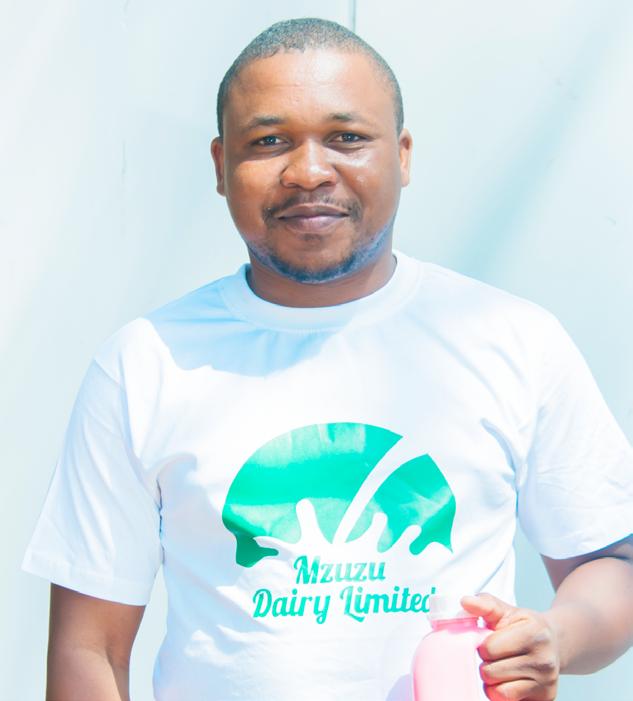

Dairy AFRICA MANUFACTURING SUMMIT & EXPO AN FW AFRICA EVENT September 20-22, 2023 THE SUSTAINABILITY & INNOVATIONS TRADE SHOW & SUMMIT FOR AFRICA’S DAIRY INDUSTRY CONFIRMED SPEAKERS JOACHIM WESTERVELD Executive Chairman, Bio Food Products, Kenya HYBRID SUMMIT: LIVE FROM NAIROBI, KENYA & VIRTUALLY FROM AFRICA & THE WORLD DAVID CHITOWE Founder & CEO, Mzuzu Dairy, Malawi NKOSANA MTIMKULU Founder, South Western Dairy, South Africa info@fwafrica.net +254 725 343 932 www.dairybevafrica.com Sign up to Sponsor, Attend & Speak
Without food safety, Africa’s food security dream will continue to be just that: a dream
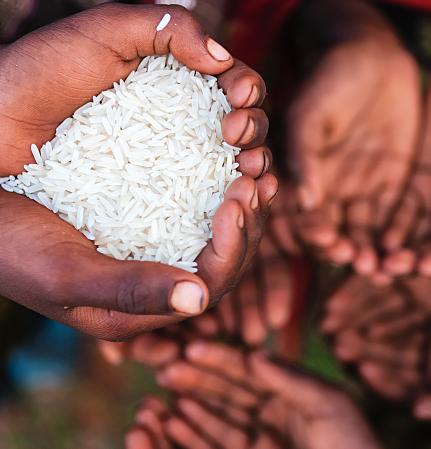
We cannot confidently say that Africa can achieve the Sustainable Development
Goal 2 which aims to achieve zero hunger by 2030 without ensuring that all food for its inhabitants, which at the time is expected to have ballooned to 1.69 billion people, is safe.
As a continent, we have a long way to go, as we already can’t feed the approximately 1.2 billion people that already reside in the continent. According to recent reports by the Food and Agriculture Organization (FAO) and the African Union (AU), an estimated 346 million people in Africa are affected by the current food crisis. The paradox is that food estimated to be worth US$4 billion goes to waste in Sub-Saharan Africa while millions of people go hungry.
While many are making concerted efforts to address the food waste problem as a way of achieving food security, efforts need to also be directed towards food safety initiatives to wholistically address the food security problem. Africa currently has the world’s highest per-capita rate of foodborne illnesses. Foodborne hazards are responsible for 137,000 deaths and 91 million acute illnesses in Africa every year, mostly affecting children under age 5, according to World Health Organization data cited in a February 21, 2019, WBUR article. Without food safety being part and parcel of food security initiatives, we will continue losing millions of our people to food safety incidents and thus fall short of SDG 3 which is aimed at good health and wellbeing.
The just concluded Africa Food Safety Summit brought together key stakeholders in the food industry to discuss way in which to improve
safety of our foods. A mixture of highlevel keynote speeches and expert panel discussions delivered a wealth of information on food safety to participants attending both physically and virtually. At the end of the 3-day summit, we all came to one agreement: “If its not safe, its not food”.
Incase you missed this important event around food safety, this edition of the food safety magazine gives a detailed review of the events that took place. In these pages, you will find keynote speeches from Damian Ihedioha, PhD., Agribusiness Development Division Manager at AfDB on the bank’s role in driving food safety across the continent as well as the speech of Margaret
Kibogy,
Discussions with key players in the food industry from Steven Carlyon, President of Simplifine Foods to Jim Tozer, the Managing Director of East Africa’s largest poultry processing company Kenchic as well as a review of some of the panel discussions are also included in this edition.
We wish you a good read.
Paul Ongeto, Lead Editor, FW Africa.
FOODSAFETYAFRICA.NET OCTOBER 2022 | FOOD SAFETY AFRICA MAGAZINE 1
the Managing Director of Kenya Dairy Board on steps Kenya is taking to ensure milk within its borders is safe.
EDITORIAL




www.afmass.com EASTERN AFRICA'S MOST INFLUENTIAL FOOD PRODUCTS & NEW TECHNOLOGIES TRADE SHOW Sarit Expo Centre, Nairobi, Kenya FOOD Afmass EXPO The Future of Food in Af rica MARCH 30 - APRIL 1, 2023







FOUR PAVILLIONS THAT COVER THE FOOD INDUSTRY FROM A-Z FOOD EXPO INGREDIENTS AFRICA DISCOVER NETWORK BE INSPIRED MARKET FOOD AFMASS DRINKS PACK AFRICA EXPO Process & EXPO BOOKINGS OPEN!!
ON THE COVER
Damian Ihedioha: PhD - Division Manager, Agribusiness Division, African Development Bank Group
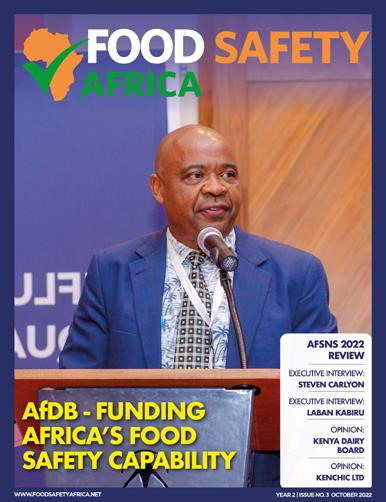
In this
issue
1 Editorial 10 News Updates:
• Zimbabwe boosts antimicrobial resistance surveillance capacity
• FoodLogiQ ties up with ESHA Research creating a formidable force in traceability
• South Africa launches National Biosecurity Hub to combat diseases
• Naturo improves Haelen milk processing technique allowing dairy-sensitive people to indulge

• FAO, SADC debut Regional Agricultural Information Management System
• BSI to help Ghana Standards Authority improve its technical capacity
• Edible oil manufacturers dispute KEBS suspension of products
• Kenya, Zambia in bid to resolve more than decade-long non-tariff trade barriers
• Study reveals high Brucella contamination in Tunisia’s raw dairy products

• Kenya lifts 10-year GMO cultivation and importation ban
• Consumers in Kenya to gain access to variety of fortified foods
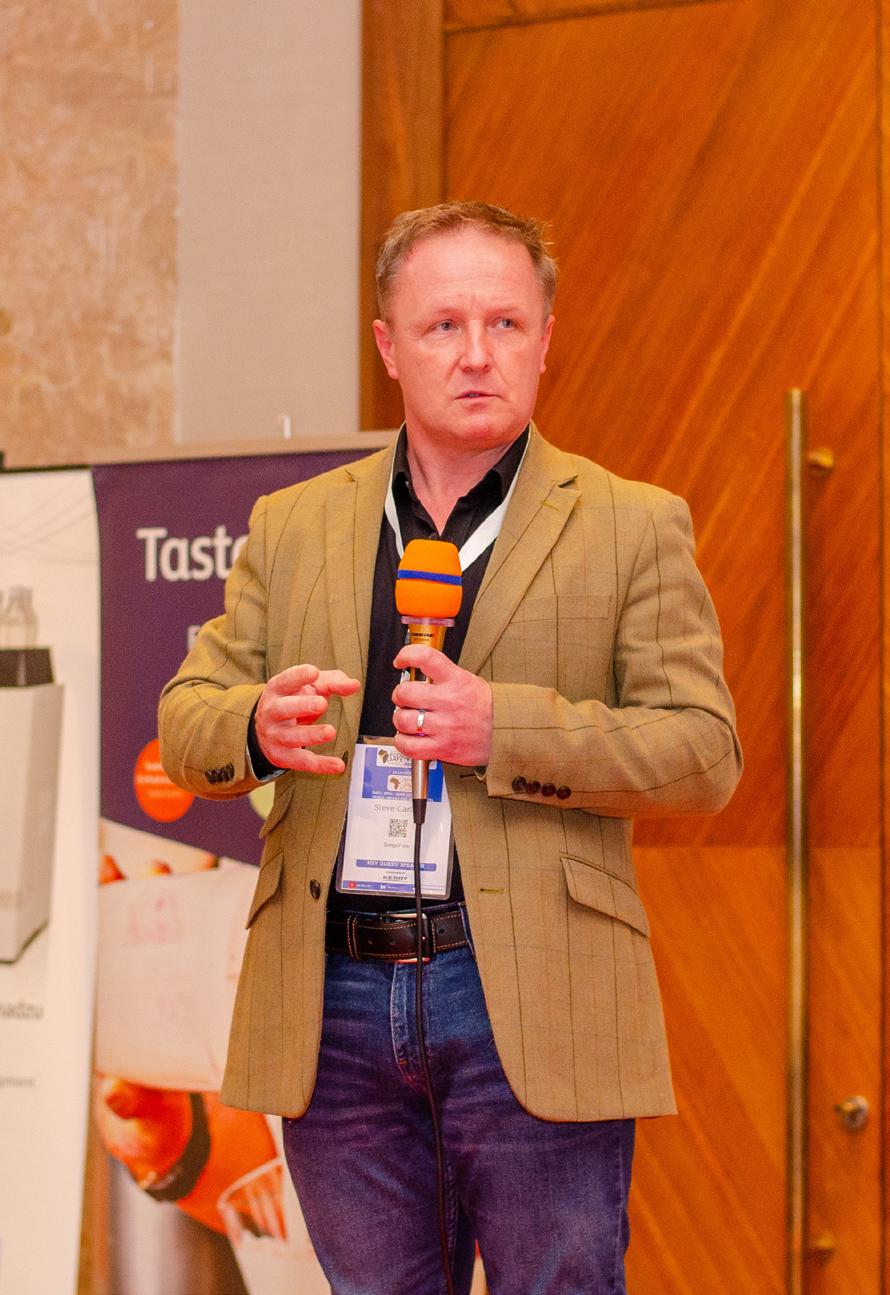
• Egerton University researchers reveal contamination in most Nakuru meat
• Lack of oversight impedes food fraud regulation in Africa - report
• Study reveals high Brucella contamination in Tunisia’s raw dairy products
19 Supplier News & Innovations:
• Syngenta releases digital tool to detect harmful nematodes through satellite images
• Neogen debuts quantitative Cashew ELISA test with great sensitivity, finalizes 3M merger
• PathogenDx presents new virus detection technology to curb plant-borne pathogens
• Agilent partners with Mettler Toledo to provide seamless weighing results
• ABB makes break-through, develops first-ever antimicrobial detectable cable ties
OCTOBER 2022 | FOOD SAFETY AFRICA MAGAZINE FOODSAFETYAFRICA.NET 4
48 54

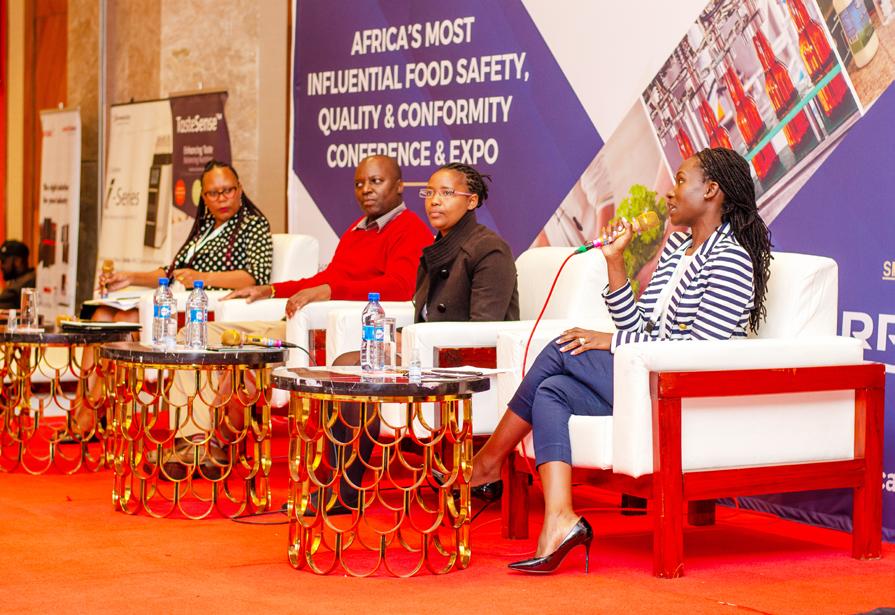
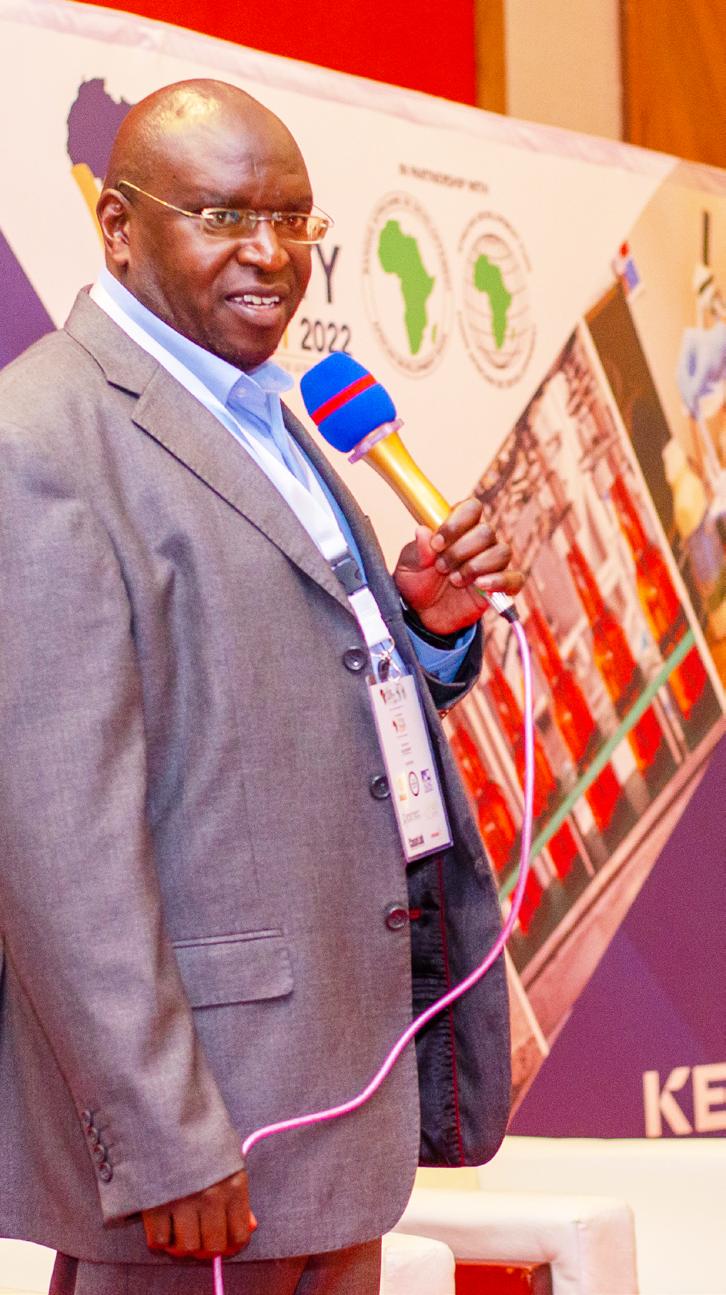
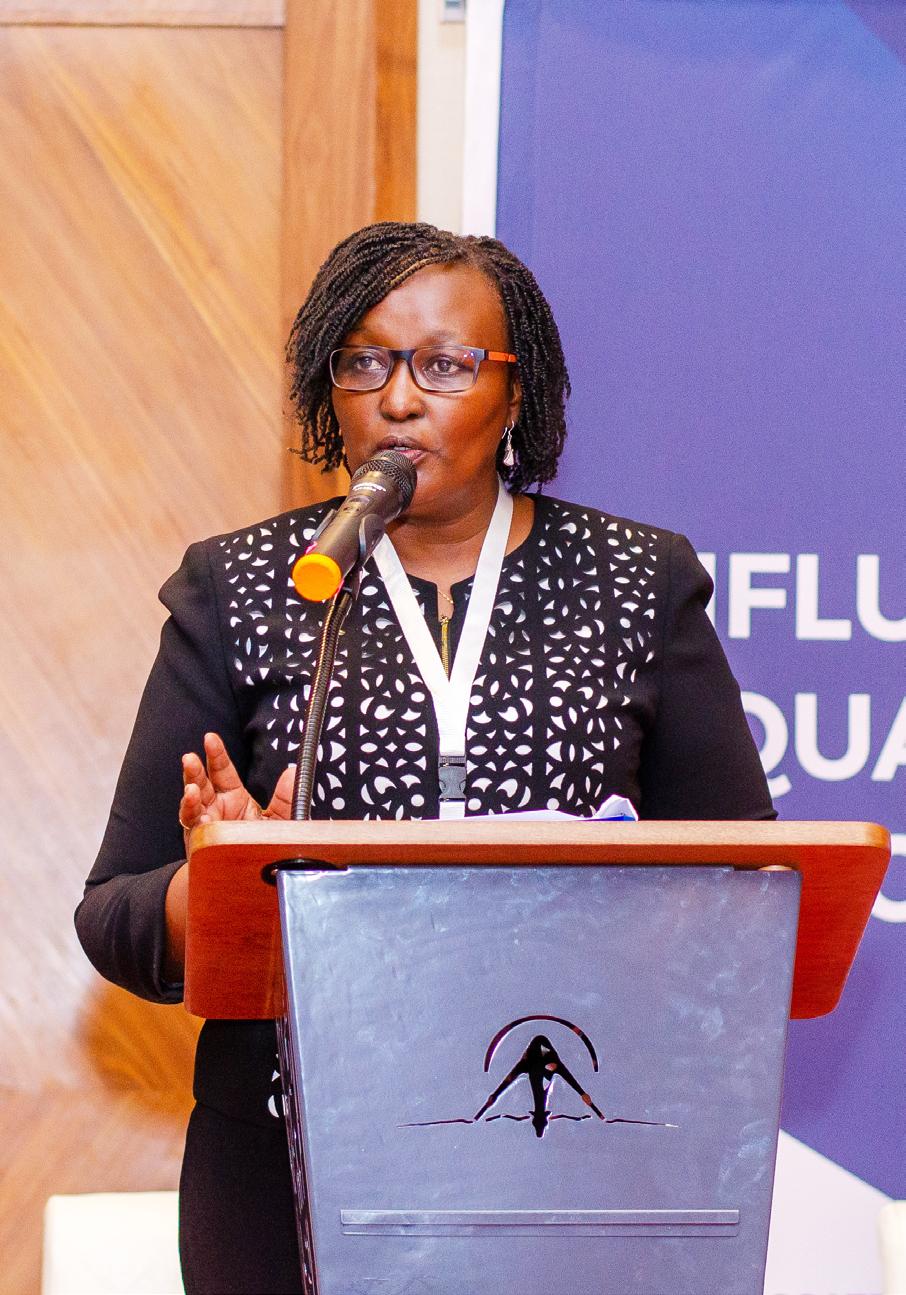
FOODSAFETYAFRICA.NET OCTOBER 2022 | FOOD SAFETY AFRICA MAGAZINE 5 OCTOBER 2022 | Year 2 Issue 3. No. 5 54 48 58 62 66 70 70 66
Kenya Dairy Board keen on ensuring the safety of milk across the country’s supply chain
Venturing into the food industry: Tips from leading industry professionals in Kenya
Simplifine Foods President Steven
build
safe, reliable and efficient food supply chain
Getting
58 62 AFRICA FOOD SAFETY & NUTRITION SUMMIT REVIEW
25
OPINION
OPINION
EXECUTIVE INTERVIEW: Steven Carlyon
Carlyon on how to
a
DAMIAN IHEDIOHA: PhD - Division Manager, Agribusiness Division, AfDB Damian Ihedioha, speaks on the AfDB’s role in driving the food safety agenda in Africa EXECUTIVE INTERVIEW: Laban Kabiru
Quality from the word go: An interview with Laban Kabiru, Manufacturing and Logistics Director at Bio Food Products Ltd OPINION Kenchic’s Managing Director speaking on Emerging food safety & quality concerns in the food & animal feed industry in Africa at the Africa Food Safety Summit 2022
2022


FOOD SUSTAINABILITY SUMMIT FRICA BETTER PLANET. BETTER COMMUNITIES. MORE PROSPERITY March 28, 2023 Emara Ole Sereni Hotel, Nairobi, Kenya DEFINING THE FUTURE OF SUSTAINABLE AGRICULTURAL PRODUCTION, FOOD MANUFACTURING AND RETAIL IN AFRICA. info@fwafrica.net +254 725 343 932 www.foodbusinessafrica.com/future Sign up to Sponsor, Attend & Speak Sign up to Attend the first pan-African high-level summit on mainstreaming sustainability in Africa's food and agriculture value chains. Join private sector food industry leaders, Government ministries and agencies, non-profit and academic/research institutes as they share their goals, strategies and policies to create a better planet, enable vibrant local communities and improve prosperity in the communities they operate in. Confirmed Sponsor:
CONFIRMED SPEAKERS


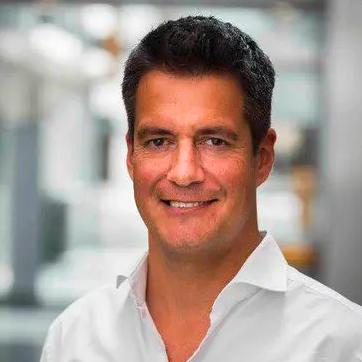



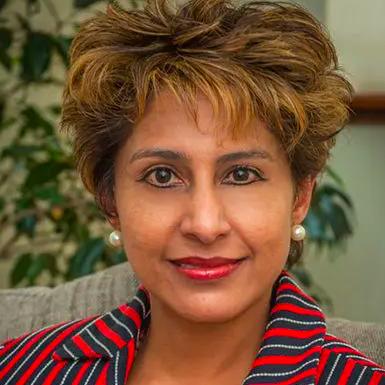

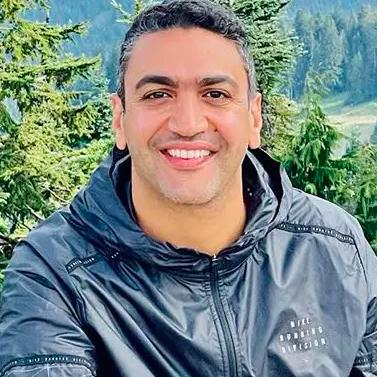



 ASHISH PANDE Country Head, Olam Agri, Nigeria
ESSAM EL-MADDAH HR & General Secretary Director, Danone Egypt & North East Africa
JUSTIN ARCHER COO East Africa & Group Head of Sustainability, Sucafina SA
CLAUDIA CASTELLANOS Managing Director, Black Mamba
JOACHIM WESTERWELD Executive Chairman, Bio Food Products
MILLICENT A. ADOBOE Co-Founder, Achiever Foods Ghana
CAESAR ASIYO Chief Development Officer, Victory Farms
SAINT-FRANCIS TOHLANG Corporate Affairs Director, Nestle East & Southern Africa
NICO ROOZEN Honorary President, Solidaridad Network
ROZY RANA Managing Director, Dormans Coffee
GAURAV VJ CEO, 260 Brands
BRETT THOMPSON Co-Founder & CEO, Mzansi Meat
ASHISH PANDE Country Head, Olam Agri, Nigeria
ESSAM EL-MADDAH HR & General Secretary Director, Danone Egypt & North East Africa
JUSTIN ARCHER COO East Africa & Group Head of Sustainability, Sucafina SA
CLAUDIA CASTELLANOS Managing Director, Black Mamba
JOACHIM WESTERWELD Executive Chairman, Bio Food Products
MILLICENT A. ADOBOE Co-Founder, Achiever Foods Ghana
CAESAR ASIYO Chief Development Officer, Victory Farms
SAINT-FRANCIS TOHLANG Corporate Affairs Director, Nestle East & Southern Africa
NICO ROOZEN Honorary President, Solidaridad Network
ROZY RANA Managing Director, Dormans Coffee
GAURAV VJ CEO, 260 Brands
BRETT THOMPSON Co-Founder & CEO, Mzansi Meat
FOUNDER & PUBLISHER Francis Juma
EDITORIAL Catherine Odhiambo ADVERTISING & SUBSCRIPTION
Jonah Sambai | Virginia Nyoro
DESIGN & LAYOUT
Clare Ngode
PUBLISHED BY: FW Africa
P.O. Box 1874-00621, Nairobi Kenya Tel: +254 20 8155022, +254725 343932
Email: info@fwafrica.net Company Website: www.fwafrica.net
Food Safety Africa is published
4 times a year by FW Africa. Reproduction of the whole or any part of the contents without written permission from the editor is prohibited.
All information is published in good faith. While care is taken to prevent inaccuracies, the publishers accept no liability for any errors or omissions or for the consequences of any action taken on the basis of information published.
OCTOBER 2022 | FOOD SAFETY AFRICA MAGAZINE FOODSAFETYAFRICA.NET 8
Year 2 | Issue 3 | No.5 EDITORIAL FOOD SAFETY
WWW.FOODSAFETYAFRICA.NET WWW.FOODSAFETYAFRICA.NET CEO BUSINESS AFRICA WWW.CEOBUSINESSAFRICA.COM FOOD SAFETY AFRICA WWW.HEALTHCAREAFRICA.INFO WWW.FOODBUSINESSAFRICA.COM OUR PUBLICATIONS WE PUBLISH AFRICA'S LEADING MAGAZINES, INCLUDING: WWW.FOODBUSINESSAFRICA.COM/MBA WWW.PACKAGINGAFRICAMAG.COM Packag ng AFRICA SUSTAINABLE Food Business HealthCare AFRICA
AFRICA
2022 2022 2022
International Food Safety Congress (IFSC)
03 - 04 Nov 2022
Istanbul, Turkey www.foodsafetycongress.org
Smarter Food Safety - Busan 10 - 11 Nov 2022 South Korea www.am.foodhygiene.or.kr
6th International Conference On Food Chemistry, Nutrition and Safety 10-11 Nov 2022 Vancouver, Canada www.foochemistry. conferenceseries.com

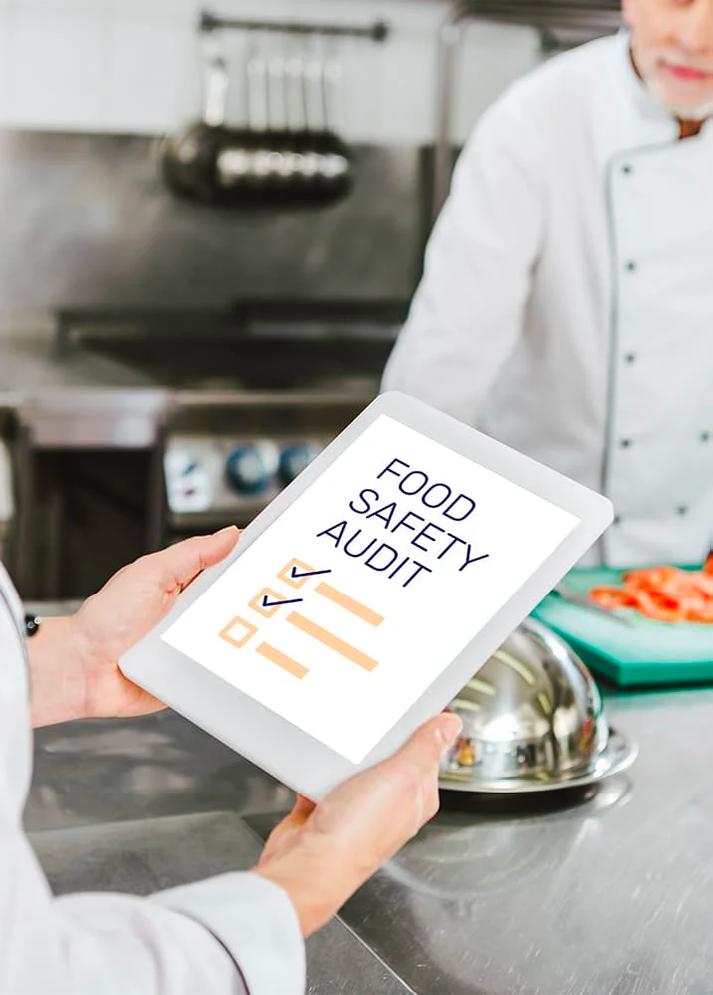
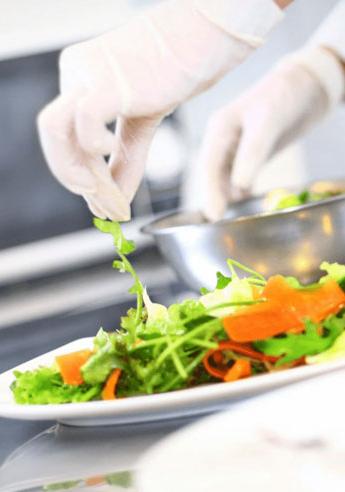
International Conference on Food Microbiology and Food Safety (ICFMFS)
12 - 13 Nov 2022
Jakarta, Indonesia www.theires.org/Conference2022/ Indonesia/5/ICFMFS
OFPA Annual Fall Food Safety Symposium & Annual General Meeting
15 - 16 Nov 2022
Mississauga, Canada www.ofpa.on.ca/upcoming-events
Food Safety Conference 16 Nov 2022 London, UK www.foodsafetytrendsconference. com
The Proactive Food Safety Conference
16 Nov 2022 Amsterdam, Netherlands www.foodsafetytrendsconference. com
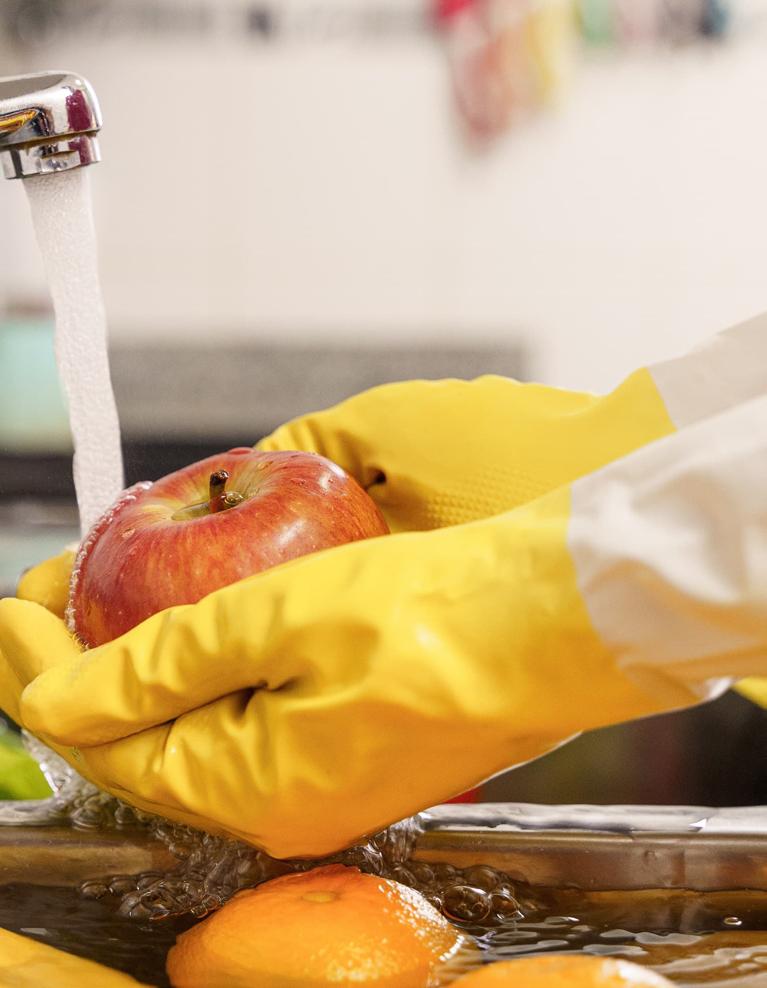
World Congress on Food Safety and Nutrition Science
21 - 22 Nov 2022 Rome, Italy www.conferenceseries.com
Arab Food Safety Summit 22 - 24 Nov 2022 Tunis, Tunisia www.arabfoodsafetysummit.com
Food Safety Conference 24 Nov 2022
Salford, UK www.salford.ac.uk/spd/conferences/ food-safety-conference
SC Food Safety Task Force Annual Conference
05 - 06 Dec 2022
West Columbia, USA www.eventbrite.com/e/southcarolina-food-safety-conferencetickets-432076130337
Annual India Food Safety Summit & Awards
15 - 16 Dec 2022 New Delhi, India www.indiafoodsafetysummit.com
FOODSAFETYAFRICA.NET OCTOBER 2022 | FOOD SAFETY AFRICA MAGAZINE 9 EVENTS CALENDAR
Zimbabwe boosts antimicrobial resistance surveillance capacity
of Zimbabwe increase awareness and comprehension of the features of antimicrobial use in the agriculture sector and their impact on the environment and humans using the One Health concept.
WHO also recently educated 60 training of trainers (ToTs) from various ministries on the WHONET software, a crucial data tool created for the management and analysis of microbiology laboratory data.
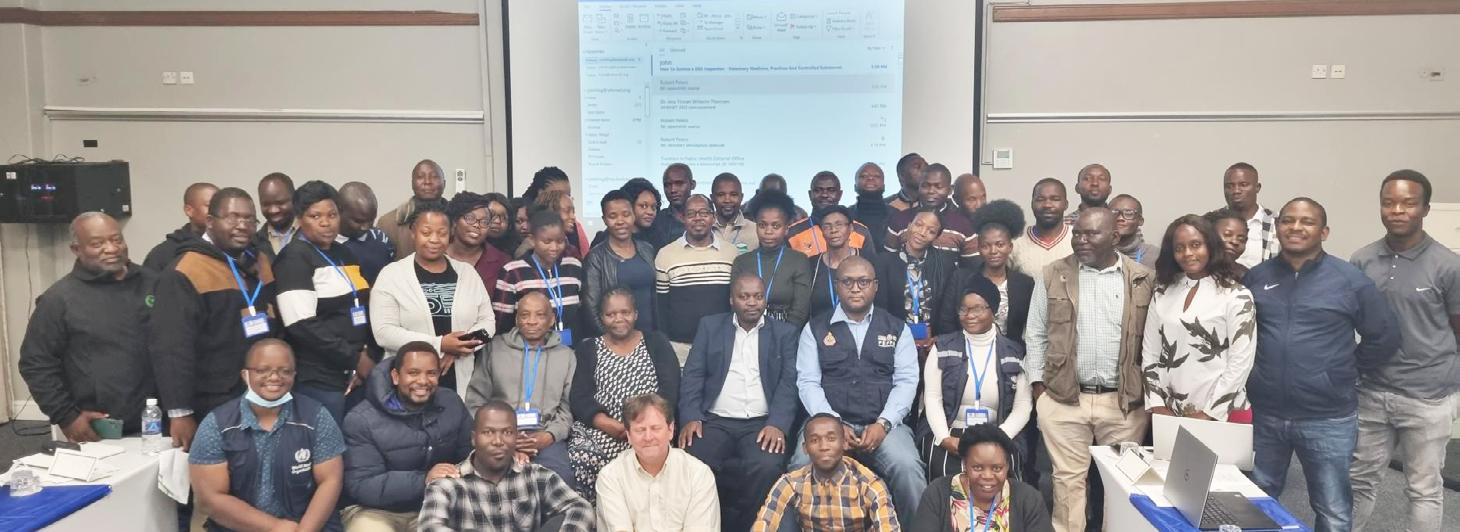
ZIMBABWE – At least 14 laboratories in Zimbabwe have been equipped to provide antimicrobial resistance (AMR) surveillance data thanks to financing from the Fleming Fund, a UK aid programme that helps countries fight AMR.
Five of these are devoted to veterinary research, seven to human health, one to food, and one to the environment.
The Foodand Agriculture Organization (FAO) and World Health Organization (WHO) have helped the Government
The technology is essential for increasing collaborations and data sharing at the national (District Health Information System 2), regional, and international levels as well as for improving the utilization of surveillance data for local requirements.
Morocco earns organic standard “Bio-Maroc” certification
MOROCCO – Morocco has earned the certificate of admission for the Moroccan organic standard “Bio-Maroc”, as evidence of its compliance with the IFOAM –Organics International (OI) criteria.
The accreditation was granted following a “comprehensive” evaluation of Morocco’s “Bio-Maroc” national organic standards in conformity to the
MERGERS
Common Objectives and Requirements of Organic Standards (COROS), claims the Moroccan Ministry of Agriculture.
The COROS contains requirements that have been found common across many private and government organic standards.
Standards can be compared to this reference in an equivalence exercise,
which will highlight their strengths and weaknesses as compared to the international reference.
According to the statement from the ministry, Morocco gains credibility abroad as a result of acquiring this certificate because it conforms with IFOAM-IO requirements.
FoodLogiQ ties up with ESHA Research creating a formidable force in traceability
U.S – FoodLogiQ, the top SaaS provider of solutions for supply chain transparency, food safety, and traceability, has announced a strategic merger with ESHA Research, a world leader in nutrition analysis and regulatory-compliant labeling software and services.
The combination of FoodLogiQ and ESHA will give the food industry an unmatched ability to extend product development and nutritional analysis into supplier compliance, improved traceability, and automated recall management.

This is due to the increased emphasis on digitizing the supply chain to improve food safety and transparency.
“FoodLogiQ broadens the ESHA
platform and expands the universe of potential product extensions and add-on acquisitions that will be attractive to the combined company.
“We will continue to invest meaningfully in product innovation, sales and marketing, and customer support,
while closely evaluating complementary add-ons to strengthen the company,” said Riverside Senior Partner Brian Sauer.
The Riverside Company, a global private investor with a concentration on the smaller end of the middle market, contributed funding for the purchase.
OCTOBER 2022 | FOOD SAFETY AFRICA MAGAZINE FOODSAFETYAFRICA.NET 10
LABORATORY, CALIBRATION & TESTING
NEWS UPDATE
LABORATORY, CALIBRATION & TESTING
UNBS commissions second food safety laboratory in Mbale City
second food safety laboratory in Mbale City to provide Conformity Assessment and Quality Assurance of products manufactured in Eastern Uganda.
This comes following the commissioning of the first laboratory in Gulu City in July 2022, to serve Northern Uganda, as part of the Bureau’s Strategic Plan to decentralize quality infrastructure and other standardization services to other parts of the Country.

Earlier in March, TMEA boosted UNBS’ regional offices in Mbarara, Gulu, and Mbale with equipment worth US$1,885,280.
UGANDA – The Uganda National Bureau of Standards (UNBS) has opened its
DISEASES, OUTBREAKS & RECALLS
Trade Mark East Africa (TMEA) and the Danish Government have thus far furnished the UNBS Regional Testing Laboratories with equipment worth US$4,455,283.
To improve the quality and safety of their products, Mr. David Livingstone Ebiru, the Executive Director of UNBS, asked all businesses engaged in production, processing, and value addition to make use of the decentralized quality infrastructure by obtaining certification services (Q-Mark) from UNBS before releasing them onto the market.
In the near future, the regulator plans to establish a laboratory in the Western Region.
South Africa launches National Biosecurity Hub to combat diseases
SOUTH AFRICA – To aid in the prevention and control of agricultural and animal diseases in South Africa, the Department of Science and Innovation (DSI) has established the National Biosecurity Hub at the University of Pretoria’s (UP’s) Future Africa campus.
Professor Sanil Maharaj, Dean of the Faculty of Engineering, Built Environment, and Information Technology stated at the hub’s opening that the hub would draw from top research from international institutions and contribute to improving market access, economic growth, and job creation in the nation.
This will be through improved national
sanitary and phytosanitary (SPS) capacity and increased awareness of current and emerging biosecurity threats.
He continued by saying that the hub will make sure that South Africa was better equipped to handle disease outbreaks because it would be able to make choices more quickly and effectively.
The National Biosecurity Hub’s mission is to greatly expand the capabilities now available to the South African SPS regulatory bodies and to be relevant across all agriculture and forestry industries.
To meet SPS requirements of international trade and improve biosecurity, it will offer research and information services to the public and private sectors.
AUSTRALIA – The Australian company Naturo has improved its Haelen milk process, which created a 60-day shelf life – to now have double the digestibility.

Since the Haelen process destroys more bacteria than conventional pasteurization, it is easier for people who have dairy sensitivity to ingest.
Naturo handles the whey proteins in milk differently since it doesn’t employ the high heat associated with conventional milk processing like pasteurization, ultrahigh-temperature (UHT), and Extended
shelf-life (ESL).
This method breaks down the proteins further than the standard, allowing for easier and faster digestion and enhanced nutrient absorption.
“This latest digestibility finding is a market breakthrough for our Haelen Technology partnerships and licensing agreements worldwide as well as opening the door to new products and market opportunities,” says Jeff Hastings, Founder and CEO of Haelen.
FOODSAFETYAFRICA.NET OCTOBER 2022 | FOOD SAFETY AFRICA MAGAZINE 11
Naturo improves Haelen milk processing technique allowing dairy-sensitive people to indulge
THE NATIONAL BIOSECURITY HUB’S MISSION IS TO GREATLY EXPAND THE CAPABILITIES NOW AVAILABLE TO THE SOUTH AFRICAN SPS REGULATORY BODIES.
WHO launches Global Strategy for Food Safety 2022–2030
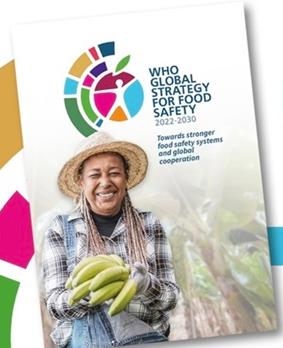
GLOBAL – The World Health Organization (WHO) has released the WHO Global Strategy for Food Safety 2022–2030, which was approved by Member States during the 75th World Health Assembly Session through Resolution WHA75 (22).
The launch represents a significant accomplishment in WHO’s efforts to advance health, ensure global security, and protect the vulnerable.
The goal of the Global Food Safety Strategy is to support Member States in their efforts to prioritize, plan, implement, monitor, and regularly evaluate actions aimed at reducing the burden of foodborne diseases (FBD) by fostering international cooperation and continuously improving food safety systems.
It addresses new and developing issues, takes advantage of modern technology, and proposes creative methods for enhancing food safety systems.
The policy also establishes specific
FAO, SADC debut Regional Agricultural Information Management System
goals and intends to reduce the incidence of foodborne diarrheal illnesses, which mostly affects children under the age of five and other vulnerable populations, by 40%. It further aims to have 100% operational coordination systems to handle foodborne incidents and improved laboratory capacity for foodborne illness surveillance.

AFRICA – The Southern African Development Community (SADC) and the Food and Agriculture Organization of the United Nations (FAO) have together unveiled the first SADC Agricultural Information Management System (AIMS), a platform to generate agricultural data for the region’s evidence-based decisionmaking.
For policy makers, the lack of trustworthy and consistent data in the agricultural sector in Southern Africa has always been a hindrance.
This has led to significant delays in the planning and execution of regional responses that are well-coordinated and designed to address threats like transboundary pests and diseases like the Fall Armyworm and Foot and Mouth Disease, which have a negative impact on productivity and trade in the region.
To address this, the European Unionfunded STOSAR project, “Support Towards Operationalization of the SADC Regional Agricultural Policy”, developed the AIMS platform (EU).
“The SADC AIMS is an integrated and multilingual system providing policy makers with access to reliable and timely data on which to base policies, resource allocations, and emergency interventions.
“This web-based application will provide SADC Member States with standardized instruments necessary to produce and disseminate comparable
The SADC AIMS platform is a webbased application with 12 modules for collecting, storing, and analyzing agricultural information.
OCTOBER 2022 | FOOD SAFETY AFRICA MAGAZINE FOODSAFETYAFRICA.NET 12
NEW TECHNOLOGIES
statistical information to inform SADC policies,” said Patrice Talla, FAO Subregional Coordinator for Southern Africa.
THIS APPLICATION WILL PROVIDE SADC MEMBER STATES WITH STANDARDIZED INSTRUMENTS NECESSARY TO PRODUCE AND DISSEMINATE COMPARABLE STATISTICAL INFORMATION TO INFORM SADC POLICIES.
Talla, FAO Subregional Coordinator for
Africa NEWS UPDATE
Patrice
Southern

FOODSAFETYAFRICA.NET OCTOBER 2022 | FOOD SAFETY AFRICA MAGAZINE 13 SAFETY FOOD SUMMIT & NUTRITION Eastern Africa Edition AFRICA SAFETY FOOD SUMMIT & NUTRITION Western Africa Edition AFRICA SAFETY FOOD SUMMIT & NUTRITION Southern Africa Edition Nairobi, Kenya May 10-12, 2023 Lagos, Nigeria July 5-7, 2023 Date and Location to be determined DISCOVER THE FUTURE OF FOOD SAFETY, NUTRITION & FOOD SECURITY IN AFRICA REASONS TO ATTEND THE SUMMIT Be inspired by an unprecedented lineup of food safety and nutrition experts and opinion shapers from across Africa and the World. Meet and network with some of the most influential key decision makers from the private and public sectors, NGOs and more across various disciplines and countries from Africa and beyond of career-changing exchanges and innovative ideas. Get answers to the most-pressing food safety, nutrition and food security challenges at the regional high-impact conferences and exhibitions info@fwafrica.net +254 725 343 932 www.summit.foodsafetyafrica.net Sign up to Sponsor, Attend & Speak AFRICA SAFETY FOOD SUMMIT & NUTRITION
Study reveals high Brucella contamination in Tunisia’s raw dairy products
Brucellosis is a significant public health threat for urban and rural populations of endemic countries, particularly the Middle East and North Africa region, as the trade of unpasteurized milk and raw dairy products is widespread, says the study.
Samples were purchased from 75 retail marketing points for dairy products from March to November 2019.
B. melitensis highlights that zoonotic high-pathogen agent control remains a challenge for food safety and consumer
TUNISIA – A study has revealed a high rate of Brucella contamination in dairy products in Tunisia, shortly after another study conducted in Kenya discovered a cocktail of micro-organisms in milk.
The study investigated the occurrence of Brucella in 200 raw milk, ricotta, and artisan fresh cheese samples, collected from four districts in Tunisia.

According to the study published in the journal Foods, forty samples of cow’s raw milk, 102 of artisanal fresh cheese, and 58 of ricotta were collected.
Out of the 200 samples, Brucella was spotted in 150 (75%) with Brucella abortus being found in 47 (31.3%) samples, and Brucella melitensis in eight (5.3%). Almost half of the tested products had both species, while 21 (14%) were neither Brucella abortus nor melitensis.
The detection of both B. abortus and
OUT OF THE 200 SAMPLES, BRUCELLA WAS SPOTTED IN 150 (75%) WITH BRUCELLA ABORTUS BEING FOUND IN 47 (31.3%) SAMPLES, AND BRUCELLA MELITENSIS IN EIGHT (5.3%).
health protection, and could represent a serious emerging foodborne disease in Tunisia.
U.S – The U.S Food and Drug Administration (FDA) has recommended an amendment to the requirements for using ‘healthy’ labels on food packaging, to be consistent with present nutrition science, the Nutrition Facts label, and the Dietary Guidelines for Americans.
The proposed rule intends to more accurately take into account how nutrients
& RESEARCH
from different food groups interact and contribute to the formation of healthy dietary patterns and improvements in health.
Under the prospective new rule, food products advertised as ’healthy‘ would need to contain a ‘meaningful‘ amount of food from one of the food groups or subgroups suggested by Dietary Guidelines. Among these food groups
and subgroups are fruits, vegetables, and dairy.
Furthermore, items would have to adhere to strict guidelines for certain nutrients like sodium, saturated fat, and added sugars.
The new proposal is a component of the FDA’s ongoing efforts to enhance dietary habits and nutrition in the U.S.
Study demonstrates potential of x-ray technology in agricultural sector
INDIA – A study led by a team of researchers from the International Crops Research Institute for the Semi-Arid Tropics (ICRISAT) and the Fraunhofer Development Center for X-ray Technology (EZRT), has demonstrated the potential of X-ray radiography for a rapid and non-destructive determination of key market-related traits from X-ray scans of peanuts while still inside the hull.
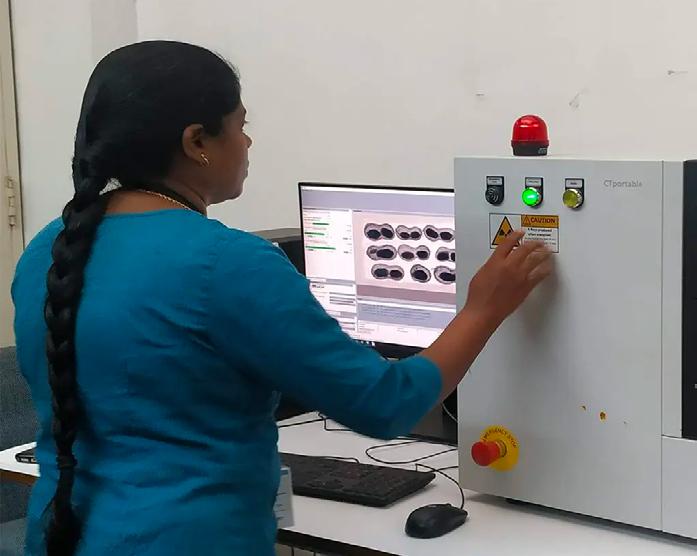
Consequently, the evaluation process for peanut pods is now quicker and easier to complete. A single specialist can now complete the task, which took three to five expert professionals 30 minutes, in just two minutes.
Thus, it is possible to accurately and quickly assess peanut pods for crucial market-related traits like kernel weight or shelling percentage using an X-ray scan of intact, unshelled peanut pods, say the researchers.
“ICRISAT crop researchers pointed to the important gaps frequently restraining the Indian farmers from reaping the benefits of their hard labor, and researchers from rapid breeding of improved crops. The collaboration helped us to adapt our technology so that the gaps can be closed,” Dr. Stefan Gerth, Head of Department, EZRT said.
OCTOBER 2022 | FOOD SAFETY AFRICA MAGAZINE FOODSAFETYAFRICA.NET 14
SCIENCE
SCIENCE & RESEARCH
NEWS UPDATE
FDA proposes amendment to requirements for using ‘healthy’ labels on food packaging
Kenya,
non-tariff trade barriers
harmonizing the standards to include other nations will ensure that Kenya’s dairy products are available in other markets through the African Continental Free Trade Area (AfCFTA).
Zambia, one of the top markets for Kenyan milk, banned the export of Kenyan milk over safety concerns after processors in the Southern African country claimed that milk imports exceeded the country’s total bacteria count.
AFRICA – A study titled “Food fraud amid COVID-19 in Sub-Saharan Africa: A challenge of the present” has intimated that lack of oversight and a wide range of informal markets have made it challenging to regulate food fraud in Sub-Saharan Africa (SSA).

KENYA – Kenya and Zambia are at the brink of signing a memorandum of understanding to end the long-simmering trade dispute that saw Zambia ban the export of Kenyan milk more than a decade ago.
Although Kenya has enough standards for a variety of industries, according to KEBS Director General Bernard Njiraini,

REGULATORY & POLICY
Zambia’s standard allows a total bacteria count (TBC) of 200,000 while Kenya’s follows the international benchmark of one million TBC per millilitre.
“Now we are moving to another level of having harmonized standards across Africa so that people from Zambia can access our milk because sometimes we have disparities in terms of their thresholds in the counts and what we have,” said Njiraini.
UK to revise 20-year-long Bread and Flour Regulations
UK – The Department for Environment, Food and Rural Affairs (Defra) has launched a 12-week public consultation on revising the 1998 Bread and Flour Regulations and called on consumers, millers and bakers, retailers, and regulators from all four nations of the UK to contribute.
Defra launched the consultation on September 1 together with the Department for Health and Social Care (DHSC), Food Standards Scotland (FSS), and the Food Standards Agency (FSA) in Wales and Northern Ireland (NI).
The purpose of the consultation is to gather feedback on suggestions for modifying the nutrients currently added to non-wholemeal wheat flour and the addition of folic acid to improve public health outcomes for the people of Scotland and the rest of the UK.
“This consultation marks an important stage in the process of ensuring that the regulations covering bread and flour in Scotland, and the rest of the UK, are fit for purpose and, critically, support public
health,” said Geoff Ogle, Chief Executive Officer at FSS.
The FSA has announced that the public consultation will end on November 23, 2022, and that a summary of the replies will be published in the months that follow.
The study led by Dr. Helen Onyeaka, Lecturer at the University of Birmingham, states that the disruption caused by the COVID-19 pandemic will continue to impact the possibility of many food fraud risks.
“In a COVID-19 pandemic era where the issue of food security has taken center stage, toxic rice and grains, gamalinpoisoned fish (as a result of killing fish by poisoning water with gamalin), formaldehyde-treated fish, formalintreated meat, and fake Coca-Cola have been on the menu for millions of victims of food fraud in SSA,” the study reads.
The article continues by stating that the emergence of COVID-19 caused the focus given to food fraud in SSA to lessen as the priority became improving health systems.
As stated by the study, so many policies and standards exist across countries in SSA, however, implementation has been failing.
“With the pandemic still largely at hand, it is imperative to mandate and tighten checks at entry points, borders, hotels, formal and informal food vendors, shops, and abattoirs. Also, healthseeking habits should be embedded in the consumers through adequate sensitization, in both rural and urban areas,” reads the article.
FOODSAFETYAFRICA.NET OCTOBER 2022 | FOOD SAFETY AFRICA MAGAZINE 15
TRADE, EXPORTS & IMPORTS
Zambia in bid to resolve more than decadelong
Lack of oversight impedes food fraud regulation in Africa - report
THIS CONSULTATION MARKS AN IMPORTANT STAGE IN THE PROCESS OF ENSURING THAT THE REGULATIONS COVERING BREAD AND FLOUR IN SCOTLAND, AND THE REST OF THE UK, ARE FIT FOR PURPOSE.
Geoff Ogle, Chief Executive Officer at FSS
KENYA – Barely a year after the United Kingdom-based World Animal Protection revealed the contamination of meat stocked in outlets across the country, Egerton University researchers have also unearthed a similar finding in Nakuru county.

The study which evaluated the microbiological safety of meat and readyto-eat (RTE) meat products in urban and peri-urban parts of the county, indicates that the presence of Staphylococcus aureus, Escherichia coli (E. coli), Salmonella spp and Shigella bacteria is worrying and efforts have to be put in place to cut on their levels.
FORTIFICATION

Consumers in Kenya to gain access to variety of fortified foods
In 87 samples of beef, goat, and other meat products, Staphylococcus aureus was the most prevalent negative bacterium with a prevalence of 100%, followed by Shigella spp. in 81 samples (93 percent).
All 15 samples of water that were randomly obtained from the butcheries and eateries tested positive for E. coli, salmonella spp., and Shigella bacteria, according to the report written by principal investigators Dr. Hillary Odeckh Indago, Prof. Joseph Wafula Matofari, and Dr. John Masani Nduko.
“These results indicate a public health risk for consumers of RTE meat products in Nakuru County,” the report stated.
“The presence of these bacteria points a direct finger to bad handling and poor hygiene practices because they indicate that the products have been in contact with faecal matter.”
KENYA – Non-profit international development organization TechnoServe has launched a program known as the Technical Assistance Accelerator Programme (TAAP), aimed at increasing the diversity of fortified foods available to consumers.

During the launch of the programme which was also graced by the private sector and Government agencies, Dominic Schofield, the Director of the TechnoServe Global Program, explained how the program will further guarantee that Kenyan consumers will continue to have access to wholesome food.
According to him, the TAAP is vital to ensure that consumers have access to
nutrition at a time when supply chain disruptions and high food prices are affecting consumption patterns.
“For example, the Russia-Ukraine conflict has disrupted supply chains and upended the global trade of agricultural goods, mounting increases in the price of food staples has also forced households to alter their diets, likely impacting their consumption of essential nutrients,” said Schofield.
He noted that food fortification has been widely identified as a cost-effective strategy for addressing micronutrient malnutrition at scale.
“The prospect of lower calorie intakes increases the importance of fortifying staple foods such as maize flour, rice, and edible oil,” he added.
TAAP follows the Strengthening African Processors on Fortified Foods (SAPFF) program, which was established in 2017 and aimed to raise compliance levels with food fortification among two staples of Kenya: wheat and maize flour.
OCTOBER 2022 | FOOD SAFETY AFRICA MAGAZINE FOODSAFETYAFRICA.NET 16
Egerton University researchers reveal contamination in most Nakuru meat
THE PROSPECT OF LOWER CALORIE INTAKES INCREASES THE IMPORTANCE OF FORTIFYING STAPLE FOODS SUCH AS MAIZE FLOUR, RICE, AND EDIBLE OIL.
NEWS UPDATE
Dominic Schofield, the Director of the TechnoServe Global Program
Kenya lifts 10-year GMO cultivation and importation ban
and disease…” read the statement in part. Across Africa, GM crops are commercially grown in South Africa, Nigeria, and Sudan.
More than a dozen other nations are currently undertaking trials on about eight GM crops, including banana, cassava, and maize, in preparation for their introduction into the food supply.
KENYA — The Kenyan government has lifted its ban on Genetically Modified Crops in the country after 10 years of suspension, permitting farmers to cultivate and import food crops and animal feeds that have been genetically enhanced through biotechnology.
In a meeting Chaired by President William Ruto in State House Nairobi, the cabinet decided per the recommendation of the Task Force to Review Matters Relating to Genetically Modified Foods and Food Safety, and in fidelity with the guidelines of the National Biosafety Authority on all applicable international
treaties including the Cartagena Protocol on Biosafety (CPB).
Kenya has been reluctant to approve the import or planting of genetically modified food crops since November 2012, amid an ongoing debate about the safety of GM crops, which have been lauded for their advantages including resistance to drought, pests, and higher yields.

“As part of the medium to long term responses to the ongoing drought, and as a progressive step towards significantly redefining agriculture in Kenya by adopting crops that are resistant to pests
KENYA – East African counterparts and other activists have raised an eyebrow in response to Kenya’s recent move to repeal the 10-year prohibition on genetically modified (GM) foods, remaining skeptical of the goods’ safety.
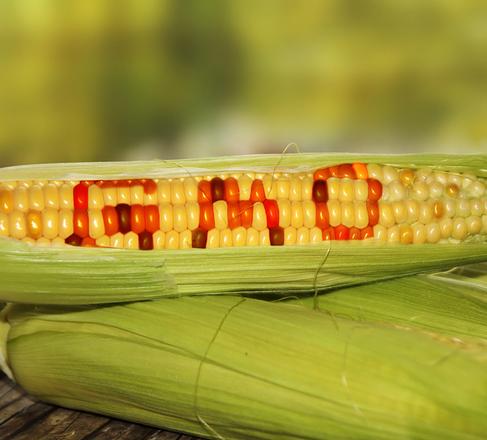
The lobbies claim that the decision was made without consulting the public and
that it “basically restricts Kenyans’ ability to pick what they want to consume.”
They urged the prohibition to be promptly lifted and the establishment of an inclusive participatory process to consider long-term and viable solutions to problems affecting food security.
“Food security is not just about the amount of food but the quality and safety of food. Our cultural and indigenous foods have proved to be safer, with diverse nutrients and with less harmful chemical inputs,” said a joint statement signed by a dozen groups, including Greenpeace Africa.
Given Kenya’s porous borders and the lack of a formal regional policy on GM technology, its neighbors are racing to tighten regulations.
Hussein Bashe, Tanzania’s Minister of Agriculture, stated that Dodoma was adamantly opposed to the use of biotechnology in food production and
would enact stricter regulations to stop GM foods or cash crops produced in “neighboring nations” from entering the nation.
African Organic Network (AfroNET), a Dar es Salaam-based organization, claimed Kenya proceeded without adequately assessing the long-term effects of GM technology on the general health of its populace.
“They have taken a wrong approach to such a contentious issue. It is not simply about ensuring food security in times of drought, as they seem to think,” said Constantine Akitanda, AfroNET Spokesperson.
Kenya is the second country after South Africa to back out of an African Union resolution to adopt organic agriculture instead of genetically modified organisms (GMOs) methods to minimize the effects of climate change.
FOODSAFETYAFRICA.NET OCTOBER 2022 | FOOD SAFETY AFRICA MAGAZINE 17 BIOTECHNOLOGY
Amidst mixed reactions from activists, East African counterparts
THE KENYAN GOVERNMENT HAS LIFTED ITS BAN ON GENETICALLY MODIFIED CROPS IN THE COUNTRY AFTER 10 YEARS OF SUSPENSION, PERMITTING FARMERS TO CULTIVATE AND IMPORT GMO FOOD & ANIMAL FEED
ISRAEL – To lower the exorbitant cost of living in the nation, the Israeli government has authorized a plan to follow European food safety standards, abolishing the great majority of Israeli requirements.
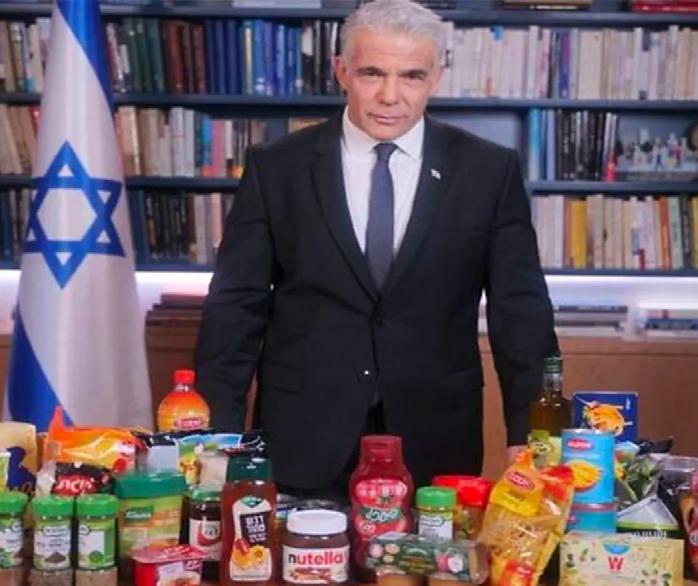
The changes will affect the production and import of items such as canned vegetables, pasta, rice, candies, spices, soup powder, condiments, and milk products, among others.
DISEASES, OUTBREAKS & RECALLS
Edible oil manufacturers dispute KEBS suspension of products
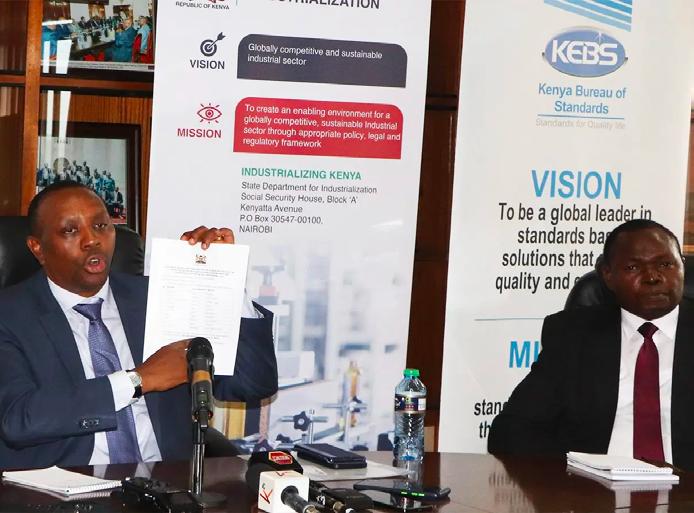
specification in iron levels.
The standard sets out the requirement for iron as 2.5 mg/Kg at the maximum. However, the findings of the KEBS test on the particular batches revealed that a particular batch of cooking oil and fats that the companies placed on the market ranged between 4.6mg/kg and 198.99mg/ kg.
KENYA – Following the suspension of several brands of edible oil in the Kenyan market, sector players are now calling for joint testing of the claimed non-compliant batches.
The Kenya Bureau of Standards (KEBS) recently suspended the sale of 10 brands after subjecting the oil and fats to tests at their laboratory against the requirements of the Standards Act, and the respective product standard KS EAS 769: KS 2019 fortified edible oils & fats –
PARTNERSHIP
Israel’s cost of living is among the highest among Organisation for Economic Co-operation and Development (OECD) member nations. However, this has often been attributed to import restrictions that prevent foreign companies from operating there, as well as a lack of competition among local importers and manufacturers, which allows them to hike prices.
An Interministerial Committee headed by Yoel Bris, a former Legal Adviser to the Finance Ministry, decided to adopt the European criteria.
The adoption of European food standards in place of Israeli ones will go into effect on January 1. On that date, 97 of the present 127 food requirements will be instantly repealed for imports into Israel.
However, for domestic manufacturers, the 97 safety criteria will be phased out over the course of four years, with 60 being abolished on January 1, 21 being withdrawn a year later, one being eliminated the next year, and 15 being eliminated in August.
GHANA – The Ghana Standards Authority (GSA) has partnered with the British Standards Institute (BSI) to ease the adoption of international standards and participation in the development of global standards.
BSI is the national standards body of the United Kingdom. It produces technical standards on a wide range of products and services and also supplies certification and standards-related services to businesses.
Mr. Graham Holloway, a BSI Consultant met with senior officials as part of a series of engagements to go through the specifics of an upcoming “Standards Partnership Pilot Programme” anticipated to run for 8 months.
The programme, among other things, is expected to improve the technical capacity of the GSA, promote awareness and use of international standards across the continent and enhance trade facilitation to reduce time and costs.
Of the banned products, Bidco was ordered to recall Bahari Fry batch number 107921 and Olive Gold batch number 105948, with Pwani Oil removing its four oil brands –Fresh Fri batch number FF1L17487D, Fresh Fri with Garlic batch number FF500175260, fry mate batch number 8941D, and Salit batch number SS1L17472D.
Menengai withdrew its Top Fri oil of batch number OL4A3 MF9.25.05.22, while Kapa Oil Refineries was told to recall Postman of batch number 0210322B, Rina oils of batch number 0340522B, and Tilly cooking fat of batch number 152222A.
The Standards Partnership programme is an initiative started in Ghana and Rwanda by Vicky Ford, UK Foreign, Commonwealth & Development Office Minister.
The programme, unveiled during the Africa Debate 2022 in July, will strengthen supply chains, and reduce barriers to trade by helping both countries meet global standards and regulations.
OCTOBER 2022 | FOOD SAFETY AFRICA MAGAZINE FOODSAFETYAFRICA.NET 18
BSI to help Ghana Standards Authority improve its technical capacity
Israeli government adopts European food safety standards to lower cost of living
NEWS UPDATE
THE PROGRAMME IS EXPECTED TO IMPROVE THE TECHNICAL CAPACITY OF THE GSA AND PROMOTE USE OF INTERNATIONAL STANDARDS ACROSS THE CONTINENT.
U.S – Neogen Corporation has introduced a new quantitative assay for detecting cashew allergens in products, just a few months after it debuted one for peanut allergens.

The second assay in Neogen’s new Veratox VIP line of enhanced quantitative ELISA products, Veratox VIP for Cashew allergen test demonstrates robust performance across sample types while maintaining the simple testing methodology of the Veratox product line.
“As plant-based foods and alternative proteins become more in demand in the marketplace, it is important that we offer highly sensitive tests that are able to detect even the lowest levels of food allergens in order to protect consumers around the world.
“Cashew is being used more frequently and in more unique ways than before, and it is important that Neogen offers an easyto-use and highly sensitive solution for its detection,” said John Adent, President and CEO, Neogen.
This novel quantitative assay exhibits great sensitivity to cashew protein concentrations as low as 0.2 ppm.
In addition to heat-processed and UHT matrices, the product is suitable for evaluating samples from a wide range of product types and processing settings.
The testing process used by Veratox VIP for Cashew is the same as that used by Neogen’s other Veratox products, which includes a 30-minute time-to-result and ready-to-use, non-hazardous reagents.
In May this year, the company launched Veratox VIP for peanut assay which rapidly quantifies low levels of peanut protein residues in food products, ingredients, and clean-in-place rinses.
Meanwhile the company recently wound up the earlier announced merger with 3M’s Food Safety business to create an innovative leader in the food safety sector.
The transaction which was first announced on December 14, 2021, will provide the companies with a comprehensive product range and a strategic focus on the category’s longterm growth opportunities.
The combination of Neogen and 3M’s Food Safety business creates a leading innovator with an enhanced geographic footprint, innovative product offerings, digitization capabilities, and financial flexibility to capitalize on robust growth trends in sustainability, food safety, and supply chain integrity.
3M’s former Food Safety business is a leading provider of food safety testing solutions. It offers a broad range of food safety testing solutions that support multiple industries within food and
releases
images
SWITZERLAND – International leader in agricultural innovation, Syngenta Crop Protection has made a milestone in the management of nematodes in soybean crops, thanks to its latest digital solution that examines satellite images to detect plant-parasitic nematode infestations.
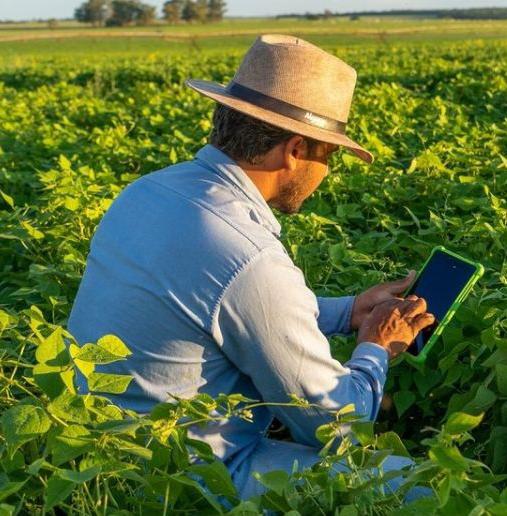
“Harmful nematodes that devastate crops are a major threat to farmers and food security, and Syngenta is using cutting-edge digital solutions to help combat these pests,” said Jeff Rowe, President of Global Crop Protection.
The new digital tool analyzes satellitecaptured photos of fields using a special, proprietary algorithm that enables it to spot places where plant-parasitic nematodes are heavily populated in crops and calculate the potential damages these tiny parasites could cause.
With the use of the technology, farmers can quickly modify their field management techniques, preventing production losses while also maximizing input utilization and enhancing the sustainability of their farms.
beverage, helping producers to prevent and protect consumers from foodborne illnesses.
The launch comes just as Syngenta is also debuting its new technology known as VICTRATO which utilizes TYMIRIUM technology to provide long-lasting protection against all plant-parasitic nematodes and key fungal diseases across major crops, including soybeans, corn, cereals, cotton, and rice.
FOODSAFETYAFRICA.NET OCTOBER 2022 | FOOD SAFETY AFRICA MAGAZINE 19 SUPPLIER NEWS & INNOVATIONS
Neogen debuts quantitative Cashew ELISA test with great sensitivity, finalizes 3M merger
Syngenta
digital tool to detect harmful nematodes through satellite
CASHEW IS BEING USED MORE FREQUENTLY AND IN MORE UNIQUE WAYS THAN BEFORE, AND IT IS IMPORTANT THAT NEOGEN OFFERS AN EASY-TO-USE AND HIGHLY SENSITIVE SOLUTION FOR ITS DETECTION.
John Adent, President and CEO, Neogen
waste
UK/U.S – Oli-Tec has developed a smart label technology it claims will help industry and consumers manage waste better, a process which began in 2015.
“We designed Oli-Tec label technology with converters, retailers, and consumers in mind. We wanted to make technology that could be easily integrated into complex processes in the supply chain and in the store so that each label could play a role in reducing waste.
“We also aimed to develop a simple visual indicator to help consumers see when food is going off. They can then decide whether to use it, freeze it or cook it,” explained Nick Richardson, CEO of Oli-Tec.

Oli-Tec’s smart label technology is temperature and time-sensitive. The label is basically designed to “mirror the cycle of decay” of the labeled product. The 100% recyclable polypropylene label can be affixed to any product with a shelf life of five to 15 days.
Its time window changes from yellow to red when product quality deteriorates over time. Being time sensitive, the diffusion line accelerates when the product is at high temperatures and slows down at low temperatures.
The thermometer icon is displayed in blue, but only when the product is stored at the correct temperature.
For consumers, the benefits are clear: the label provides a lifecycle monitor for fresh, prepackaged, or frozen foods so they know when perishables are “at their best.”
Salvus develops
Interferometric-based
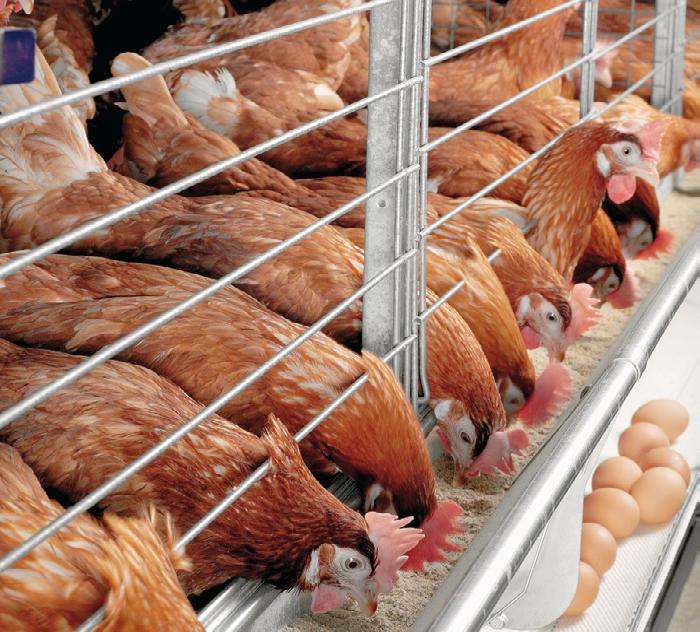
biosensor to improve food safety in poultry industry
U.S – Salvus LLC has come up with an Interferometry-based detection technology that could help the poultry industry rapidly identify the presence of diseases, viruses, and chemicals in both production and processing environments, improving food safety.
Interferometric-based biosensors use a laser light source, a waveguide, and an optical detector to detect the presence of key chemicals and pathogens pen-side or in a food production environment.
“We are excited about the possibilities this technology has in poultry production, animal health, food safety, and other applications. We are looking forward to the next steps and engaging with commercial partners to deliver the product to the market,” Andre Tatar, Product Manager, Salvus LLC, said.
Derived from the Latin word for safe, Salvus detection technology utilizes a lightweight, handheld, and easy-to-use device that offers many benefits. It can be used across multiple industries to detect many types of contaminants such as pathogens, chemicals, and proteins while processing and sharing findings within minutes.

The device is also extremely sensitive detecting chemicals down to parts per trillion (PPT) and proteins in picograms per milliliter, according to the company.
The underlying technology leading to the Salvus detection device came out of sponsored research conducted originally at the Georgia Tech Research Institute while exploring ways to improve detection throughout the food and agriculture industry.
The technology is currently going through its commercial validation phase and is expected to be ready for commercial use in 2023.
OCTOBER 2022 | FOOD SAFETY AFRICA MAGAZINE FOODSAFETYAFRICA.NET 20 SUPPLIER NEWS & INNOVATIONS
Oli-Tec develops smart label to reduce food
WE ARE EXCITED ABOUT THE POSSIBILITIES THIS TECHNOLOGY HAS IN POULTRY PRODUCTION, ANIMAL HEALTH, FOOD SAFETY, AND OTHER APPLICATIONS.
Andre Tatar, Product Manager, Salvus LLC
U.S – PathogenDx, manufacturer of DNA-based pathogen testing kits, has introduced a new patented virus detection technology — Phytox — to help curb the spread of new and existing plant-borne pathogens, which are currently on the rise.
The company claims that the new Asymmetric RT-PCR microarray technology for the cannabis, food and agriculture industries can detect nine viruses or more in a single test and offers simultaneous, accurate viral testing in around three hours.
Additionally, Phytox supposedly offers testing labs up to 100 times greater sensitivity when detecting specific viruses while saving them 70% in expenses when compared to other viral testing methods now available on the market.
Co-Founder and CEO of PathogenDx Milan Patel noted that in order to protect public health and prevent producers from losing yields to pathogens that can cause huge economic damages, Phytox should become the new industry standard.
“Our patented technology shatters nearly all of the testing technology standards today for accuracy and efficiency in plant virus and pathogen detection. It is easy to administer and extraordinarily cost-effective, presenting a win-win scenario for both businesses and public health alike,” he said.
U.S – Agilent Technologies has partnered with METTLER TOLEDO to come up with an integrated solution to address error-prone sample preparation, one of the biggest concerns in any laboratory.
The solution offers a fully automated and digitalized liquid chromatography (LC) or Gas Chromatography (GC) workflow designed to eliminate common errors in the weighing process.
It enables the automatic and seamless transfer of weighing results and the associated metadata from METTLER TOLEDO LabX Balance software to Agilent OpenLab software.
The sample preparation is a critical part of many laboratory workflows, says Agilent. It is a time-consuming bottleneck and a frequent source of errors and inaccuracies that often leads to costly quality investigations or rework.
The complete solution automatically transfers weighing results to the latest release of Sample Scheduler for Agilent OpenLab CDS.
SWITZERLAND – Pioneering technology leader ABB has developed a two-piece cable tie that is both antimicrobial and detectable for use in contaminationsensitive environments such as food and beverage processing.

In food processing, where reducing the growth of unhealthy microorganisms is critical, the presence of heat, moisture, and organic material common in these environments can encourage the growth of bacteria, fungi, and mold.

Cable ties generally provide a conducive environment for these microorganisms to thrive due to their design which is full of notches and grooves.
The company says the Ty-Rap TyGenic cable ties help guard against a wide range of microorganisms such as bacteria, viruses, protozoans, and fungi like mould and mildew.
Sample Scheduler retrieves the sample and weight data from the METTLER TOLEDO LabX software and allows users to seamlessly route sample and weighing information to any instrument in the laboratory.
The two companies hope that by addressing one of the biggest, most basic laboratory challenges—transferring weighing results accurately to other lab systems—their solution will accelerate the digital transformation of laboratories.
Ty-Rap TyGenic cable ties combine antimicrobial properties with detectable particles and a deep blue color for easy three-way identification via x-ray, metal, and visual detection systems, enhancing its efficacy.
“No one wants to worry about fragments in their product and risk costly contamination. Our Ty-Rap TyGenic cable ties combine antimicrobial technology with detectability and fastening performance to help customers create cleaner, safer environments,” said Matthias Heilmann, President, ABB Installation Products Division.
FOODSAFETYAFRICA.NET OCTOBER 2022 | FOOD SAFETY AFRICA MAGAZINE 21
PathogenDx presents new virus detection technology to curb plant-borne pathogens
Agilent partners with Mettler Toledo to provide seamless weighing results
ABB makes breakthrough, develops first-ever antimicrobial detectable cable ties
THE SOLUTION OFFERS A FULLY AUTOMATED AND DIGITALIZED LC OR GC WORKFLOW DESIGNED TO ELIMINATE COMMON ERRORS IN THE WEIGHING PROCESS.
Dr. Abigail Stevenson appointed Mars’ Chief Science Officer
Quality Service International names Thomas Janssen as new Managing Director
GERMANY – Quality Service

International GmbH (QSI), a leader in the field of quality control as a food, honey, and trade laboratory has brought on board Thomas Janssen as its new Managing Director.

Janssen, who has an academic background in economics, is notable for his extensive expertise in the laboratory and life science fields.
“I am pleased and motivated to be part of QSI and also part of the Tentamus Group. It will be our common goal to grow together more, to form a unit, and to create internal structures for successful cooperation – both for our team and our customers, who will benefit from it,” he said.
International Association for Food Protection announces new President
UK – Mars, Incorporated, the world’s leading manufacturer of confectionery, has appointed Dr. Abigail Stevenson as Chief Science Officer (CSO) who will champion Mars’ involvement in global, cutting-edge scientific discovery.
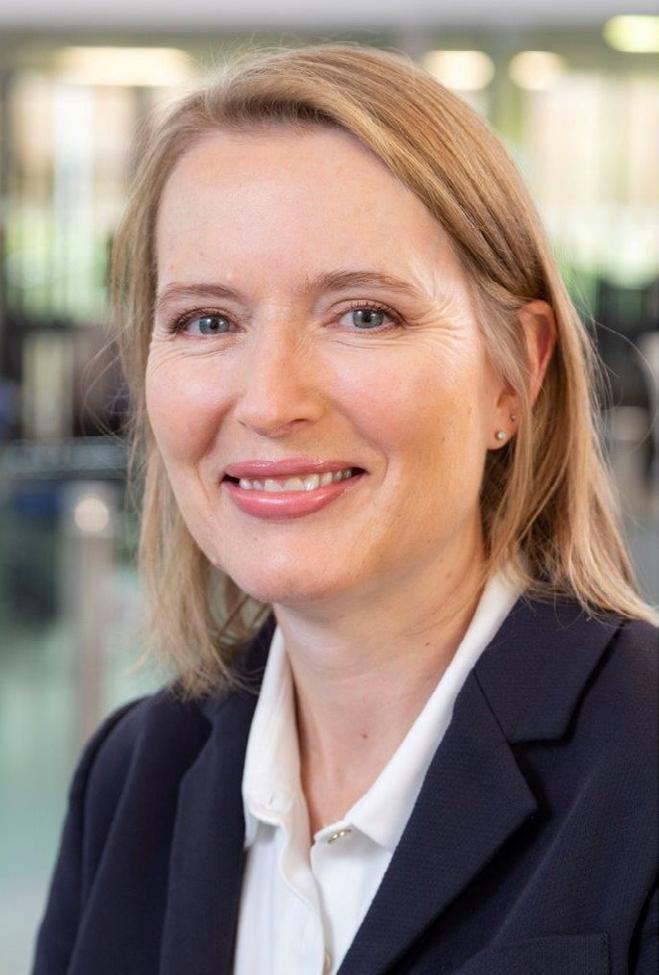
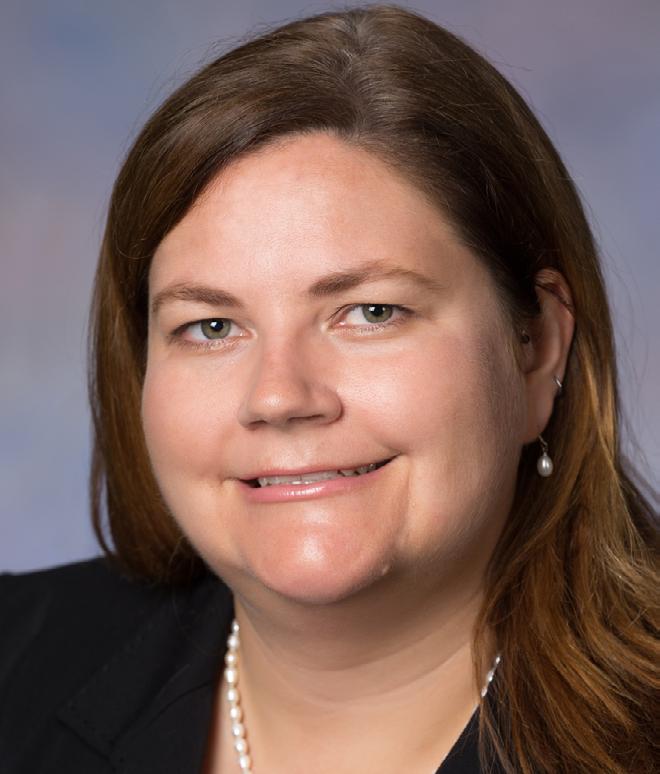
Dr. Stevenson will lead the Mars Science Leadership Team in her new position and drive partnerships with peers, academic institutions, and nongovernmental organizations while also contributing to the development of Mars’ pipeline of top science and technology talent.
“As the world around us continues to evolve, I am excited to be driving discoveries that have the potential to impact not only the future of our business but also to improve the lives of people and pets around the world,” said Dr. Stevenson.
She will also be in charge of the Mars Global Food Safety Center (GFSC), a trailblazing research and training center at the center of an international network of partners and collaborators addressing the most significant food safety challenges facing the planet today.
In the course of his professional experience, Mr. Janssen has had the opportunity to assist numerous laboratories in starting up and growing into globally competitive businesses.
His most recent position was as Managing Director of a major, globally recognized, publicly traded provider of technology-based solutions.
Part of the Tentamus Group of laboratories since 2013, QSI is an accredited laboratory that provides a comprehensive range of analyses for foodstuffs which is focused, among other products, on honey, coffee, and tea.
U.S – The International Association for Food Protection (IAFP) has once again handed its Presidential gavel to a new face as it culminated this year’s conference at the annual awards banquet.
The outgoing President Dr. Ruth Petran handed over the gavel to the incoming President, Michelle Danyluk of the University of Florida.
Dr. Danyluk is an Associate Professor and Extension Specialist of Food Safety and Microbiology in the Department of Food Science and Human Nutrition at the University of Florida (UF).
An IAFP Member since 2002, the Professor has organized, convened, and presented several IAFP symposia. She actively participates in Professional Development Groups (PDGs) and has served on several committees, including the Program Committee, the Nominating Committee, the Food Protection Trends Management Committee, and various Awards Selection Committees, records the Association.
The incoming IAFP President holds a B.S. in Biological Sciences with a specialization in Microbiology from the University of Alberta in Edmonton, Canada. She earned her master’s in Food Science and Technology from the University of Georgia in Athens, and her Ph.D. in Food Science from the University of California – Davis, where she also completed a postdoc for an additional ten months.
OCTOBER 2022 | FOOD SAFETY AFRICA MAGAZINE FOODSAFETYAFRICA.NET 22
APPOINTMENTS UPDATE
Amanda Bosse takes helm as CEO of Certified Group
U.S – Amanda Bosse has joined testing and regulatory consulting services provider Certified Group as its new CEO, succeeding John Bellinger, who will remain with the company as its Chairman.

Bosse brings over 20 years of global experience in pharmaceutical and science-led service businesses. She has experience in growing complex service businesses in regulated environments, building and enabling high-performing teams, and a proven track record in leadership roles across strategy, commercial operations, and business, Certified Group said.
“It is an honor to lead this exceptional company and advance its role as a premier laboratory testing platform in North America. I look forward to working closely with John
EFSA appoints new Chief Scientist
SADCAS inaugural CEO Maureen Mutasa retires
AFRICA – Maureen Mutasa has stepped down from her position as Chief Executive Officer (CEO) of the Southern African Development Community Accreditation Service (SADCAS), culminating her 14 years of service.
Present in 14 countries throughout Southern Africa, SADCAS guarantees the technical proficiency of service providers supplying calibration, testing, medical laboratory, and inspection and certification services.
In June 2008, Mrs. Mutasa was chosen to lead the organization as its first CEO. Since then, she has worked to elevate SADCAS to a position of prominence on a global scale.

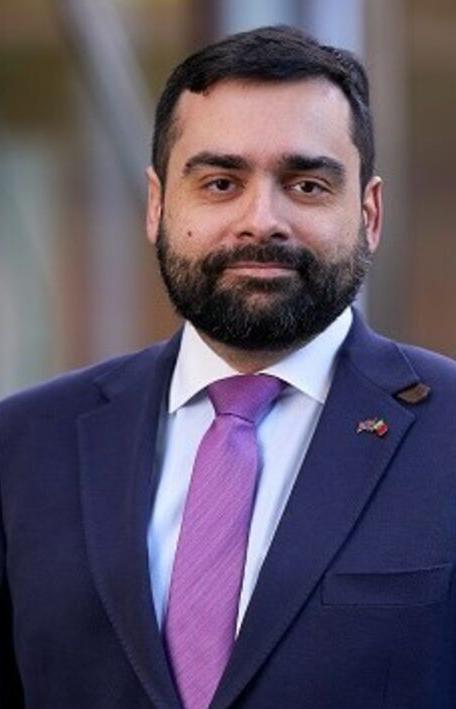
With a wide range of managerial, agricultural research, and food sector experience spanning over 40 years, she retires as one of the finest experts on accreditation, standards, and quality assurance on the Continent.
EUROPE – The European Food Safety Authority (EFSA) has appointed Carlos Gonçalo das Neves as its new Chief Scientist, effective 1 November 2022.
Das Neves, a Portuguese and Norwegian national, holds a Ph.D. in Veterinary Science, his areas of research and teaching being animal health, biodiversity, emerging threats, and One Health.
“I am incredibly thankful for the opportunity to join EFSA and its amazing network of scientists who make sure our food is safe, healthy, and sustainable.
She has also served as Chair of the
and this talented team as we further strengthen and expand our product offering, capabilities, and reach,” said Amanda Bosse, CEO, Certified Group.
Previously, Bosse was President of Drug Product Services at Thermo Fisher Scientific, a provider of life sciences and diagnostics.
“I look forward to focusing on Certified’s key customers, and supporting the company strategy as the company Chairman,” John said.
“As a strong One Health advocate, I hope that in my new role as EFSA’s Chief Scientist I can help to connect us all even better in this common mission for Europe and our planet,” he said.
He currently serves as the Director of Research and Internationalisation at the Norwegian Veterinary Institute (NVI) where he has worked for almost ten years. He is also a Professor at the Faculty of Health Sciences at The Arctic University of Norway (UiT).
Das Neves previously served as Head of Virology and Head of Food Safety & Emerging Threats at the NVI.
ISO Policy Committee of Developing Countries (ISO DEVCO), Vice Chair of the African Accreditation Cooperation (AFRAC) and Chair of the SADC Accreditation Cooperation (SADCA), and Chair of SADC Cooperation in Standardization.
She is currently the Chair of the AFRAC Mutual Recognition Arrangement a position which she will carry to the end of her term in September 2023.
FOODSAFETYAFRICA.NET OCTOBER 2022 | FOOD SAFETY AFRICA MAGAZINE 23
ON SHOW AT THE EVENT
Why the
Kenya
Nutrition, Health & Wellness Exhibitions



The Kenya Nutrition, Health & Wellness Exhibitions are a range of weekend consumer expos and seminars that are targeted at creating and improving the consumer awareness on healthy living and general well being. The expos are held over the weekend to ensure the attendance of the entire family.
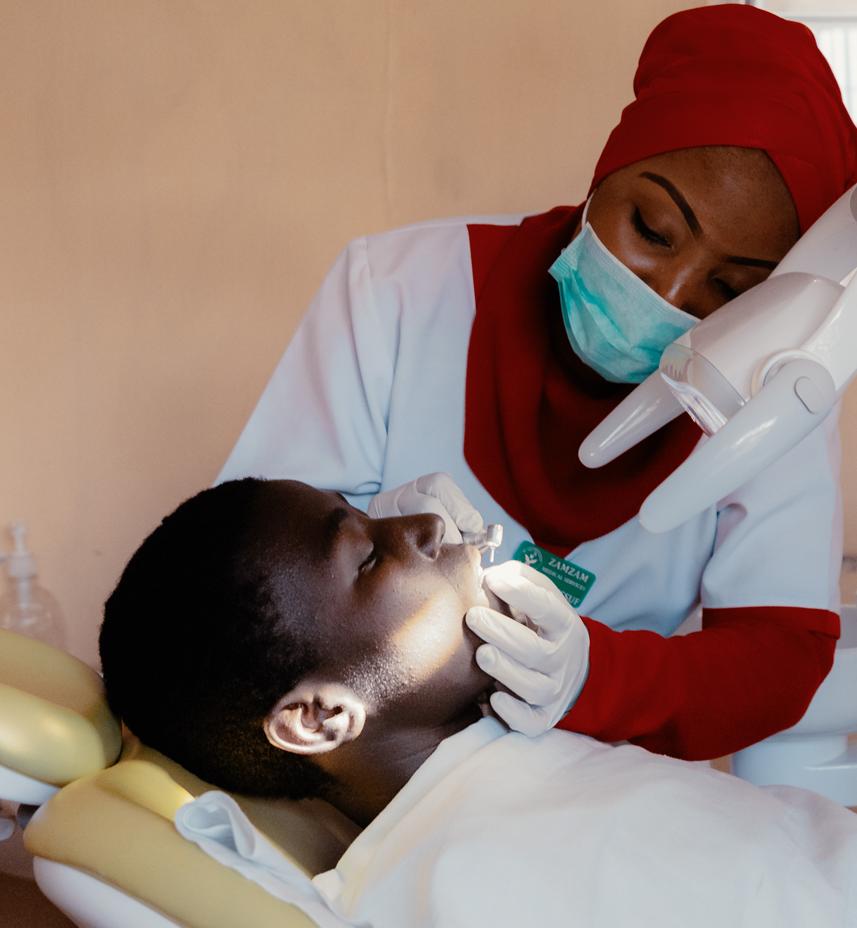
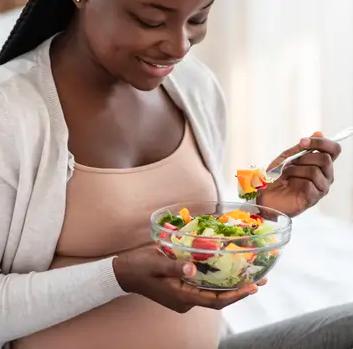
The goals of the Kenya Nutrition, Health & Wellness Exhibitions are:

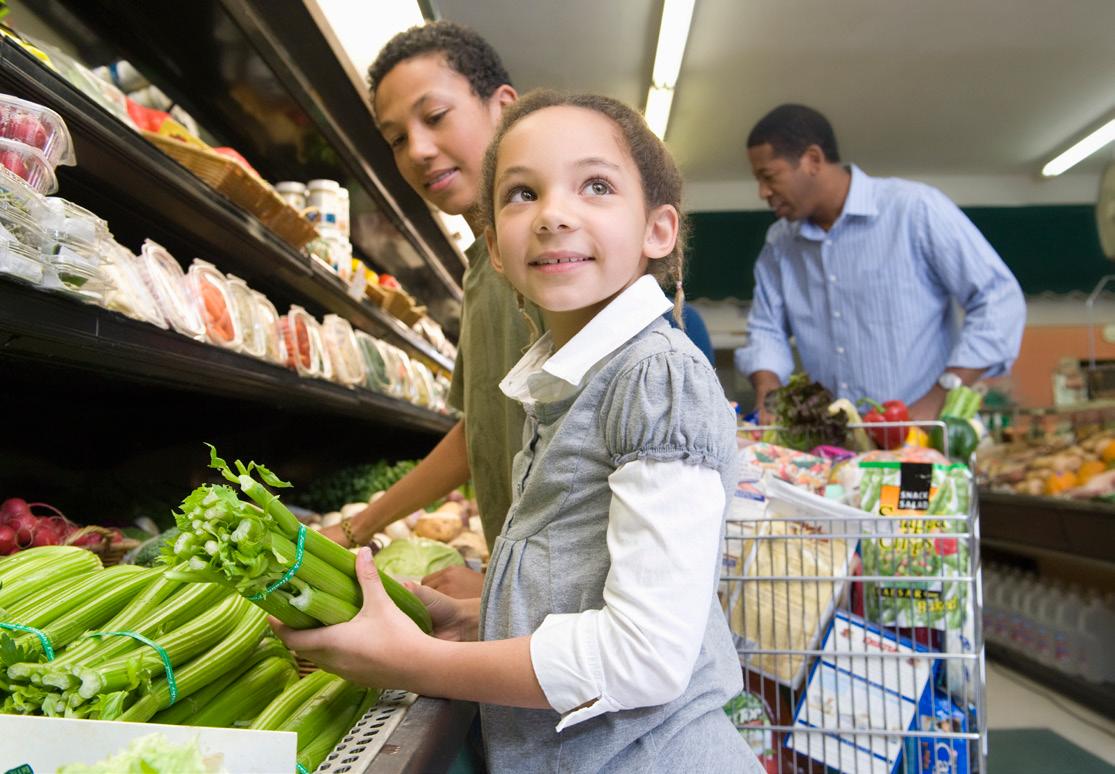
• Provide a forum for food and beverage processors, distributors and importers to interact directly with consumers, with a goal of informing the consumers of the unique features and benefits of their products in relation to healthy eating and living;
• Provide a forum for providers of health, personal and home hygiene products to interact directly with consumers
• Bring together medical, nutritional, healthcare and wellness experts and practitioners face to face with consumers to discuss disease management, lifestyle choices, diet management, wellness goals and practices with a view to imparting the right knowledge to the consumers;
• Provide a platform for a number of industry associations and corporates to interact with
& Expo Diagnostics Medilab Africa Expo Health & Care Animal Africa Expo Africa & Care Hospitals Expo Devices Medical Africa & Expo Logistics Supply Chain Africa Health Expo Africa & Health Nutrition Wellness Expo Pharma Africa Expo Africa Health Financing & Insurance Expo Africa HealthTech Sarit Expo Centre, Nairobi, Kenya THE BIGGEST HEALTHCARE & PHARMA EXPO IN EASTERN AFRICA www.expo.healthcareafrica.info +254 725 343932 info@fwafrica.net
consumers
community, with
view to
JUNE
and the
a
WHAT’S
15-17, 2023


FOODSAFETYAFRICA.NET OCTOBER 2022 | FOOD SAFETY AFRICA MAGAZINE 25 DISCOVER THE FUTURE OF FOOD SAFETY, NUTRITION & FOOD SECURITY IN AFRICA REPORT 2022 www.summit.foodsafetyafrica.net AFRICA SAFETY FOOD SUMMIT & NUTRITION y Afmass SUMMIT outh CO-LOCATED WITH
ABOUT THE SUMMIT 01
At the exquisite Emara Ole Sereni Hotel, situated in the country’s capital Nairobi, a plethora of guests both from within and outside Kenya gathered to grace the momentous premiering of the in-person edition of the Africa Food Safety Summit collocated with the AFMASS Youth Summit.
Launched in 2021, the Africa Food Safety Summit is Africa’s premier and largest international food safety, quality management, and conformity conference and exhibition. Held from the 20-22nd of July, this year’s Summit was hosted in partnership with the African Development Bank (AfDB), a multilateral development finance institution, and backed by Kerry, an Irish multinational specializing in taste and nutrition solutions.
The 300 attendees comprised investors, managers, and professionals in the private, public, academic, and NGO/ development organizations gained from a mix of high-level keynote speeches, presentations, panel discussions, one-on-one networking, and Expo Hall discovery sessions. They were also able to relish Ole Sereni’s diverse global cuisine while busking in the area’s panoramic landscape courtesy of the Nairobi National Park.
The Summit also tapped into the digital space, bringing onboard about 700 attendees from all over Africa and the world.

As he flagged off the event, Dr. Damian Ihedioha, Division Manager, Agribusiness Development Division, AfDB, in his keynote speech said, “Our desire to participate in this Summit was predicated on the key fact that we want you to know that we are what we eat. Feeding Africa is beyond the production of food. It involves making sure that the foods guarantee good health and boost the incomes of producers and processors.”
In her presentation, Margaret Rugut Kibogy, the Managing Director, of Kenya Dairy Board and also one of the Chief Guests, called upon all food and agriculture industry stakeholders to join hands to implement food safety strategies that will ensure the production of quality, nutritious, and most importantly safe food from farm to fork.
Held on the 2nd day of the Summit, the AFMASS Youth Summit brought together students in tertiary institutions, young professionals, and start-up entrepreneurs in the food and agriculture value chain. The AFMASS Youth Summit, a new addition to the AFMASS FOOD EXPO events, is Africa’s first event focused on improving capacity, building networks, and
mentoring young people in Africa’s food industry.
In the spirit of oneness, government institutions such as the Ministry of Health, Ministry of Agriculture, Livestock, Fisheries and Co-operatives, Kenya Bureau of Standards, and Kenya Dairy Board, also graced the occasion. The Summit would have been incomplete without the presence of professional bodies such as the Institute of Public Analysts in Nigeria (IPAN), Kenya Institute of Food Science & Technology (KIFST), Food Science & Technology Platform of Kenya (FoSTeP-K), and industry association body Consumer Goods Council of South Africa (CGCSA).
EXPERTS DISSECT A DIVERSE RANGE OF TOPICS
Topical issues deliberated upon over the 3 days by some of the industry heavyweights and delegates included food safety regulations, entrepreneurship, career growth, food safety, quality concerns, and technology.
The first day of the Summit kicked off with a panel that dissected the “Status Of Food Safety Regulation & Practice In Kenya”.
Steven Carlyon – Managing Director, Simplify Foods, and Campbell Mitchell – Regional Quality & Food Safety Director, Middle East, Indian sub-continent & Africa, Kerry lent their voices to the topic, “Transformational Leadership In Food Business Organisations To Mainstream Food Safety In Africa’s Food Industry.”
Dr. Augustine Okoruwa, FNIFST - Head of EatSafe Country Programs, GAIN Nigeria; Doreen Lugalia – Managing Consultant,

OCTOBER 2022 | FOOD SAFETY AFRICA MAGAZINE FOODSAFETYAFRICA.NET 26
Mantra Consulting and Careen Biwott – Quality Assurance Lead, KwikBasket provided insights into how their organizations have implemented food safety measures and how food industry stakeholders in Africa should adopt new strategies in the new normal under the topic, “Digitalisation & Supply Chain Transformation To Deliver On Food Safety, Quality & Conformity In Africa’s Food & Agro Industry”.
Day 2 of the Summit, specifically dedicated to the youth, took off with a Panel discussion on “Tapping into the Youth Potential in Africa’s Food & Agriculture Sector” where the panelists called for a change in perception to help Africa’s young population gain opportunities to grow and thrive.

Food industry professionals were also able to share their career journeys right from the start to inspire the youth on the value of hard work, tenacity, and how to get the best out of their potential. The panelists agreed that, regardless of the huge gap between graduates and available job opportunities, education is still a necessary tool to be armed with. As Walter Bruce Opiyo, Quality Assurance Manager, at Golden Africa put it, “It’s like the degree opens the door for us, but our personality widens the boundaries of what we can achieve inside.”
A chat with Khadija Mohamed, Founder & CEO of Kwanza Tukule, took us into the world of entrepreneurship. At the end of the day, the need for passion in whatever you undertake couldn’t have been driven home more clearly.
We also had a town hall discussion on some of the food safety incidences, new regulations, and technologies making headlines in the news - a topic that threw the house into a frenzy. Owen Paul Fraser, Ph.D. – President Africa & Board Member, AOAC International, climaxed the day with a mind-blowing presentation on “Advances In Laboratory Design & Infrastructure”, an area that is seldom given consideration.
The third day drove us into the technical aspects of things where our exhibitors took to the stage to enlighten the audience on some of their ground-breaking solutions in the analytical world on the topic, “Advances in Microbial & Physicochemical Testing of Food Products”. We were able to see how microbial testing has shifted from the laborious traditional plating techniques to more rapid ones such as ready-to-use plates and Polymerase Chain Reaction (PCR) techniques. Laboratories and manufacturers have also adopted the use of Artificial Intelligence and Machine Learning technology in psycho-chemical testing. The issue of Aflatoxins was another hot topic that roused a highly contentious
debate with people realizing that mycotoxins could very well be a part of our daily meals.
With the world constantly being faced with emerging food safety and quality issues such as antimicrobial resistance and animal welfare issues, the Summit would have been found wanting were these issues not addressed.
“Thinking about the future of food safety in our region takes me straight to a starting point that is absolutely certain. And that is, change will happen as we progress. Technologies are and will continue to change, circumstances will change, and ideas will change,” stated Jim Tozer, Managing Director, Kenchic.
The Summit came to a glorious end with a panel of academicians from Kenya and Nigeria on “Capacity Building & Training of Africa’s Next Food Safety Champions”. The panel highlighted the need for mentorship and bridging the skills gap from theory to practice. They also advised the youth to put themselves out there and demonstrate what they bring to the table.
You are probably reading and wondering why you missed such an important conference. Not to worry, as next year’s edition is around the corner and this time around, we also feature nutrition, an important part of food security. See you in 2023!
Jim Tozer, Managing Director, Kenchic
FOODSAFETYAFRICA.NET OCTOBER 2022 | FOOD SAFETY AFRICA MAGAZINE 27
THINKING ABOUT THE FUTURE OF FOOD SAFETY IN OUR REGION TAKES ME STRAIGHT TO A STARTING POINT THAT IS ABSOLUTELY CERTAIN. AND THAT IS, CHANGE WILL HAPPEN AS WE PROGRESS.
03 SPONSORS
African Development Bank is an international entity established in Africa during the 1960s with the objective of supporting the economic development and social progress of countries in Africa.

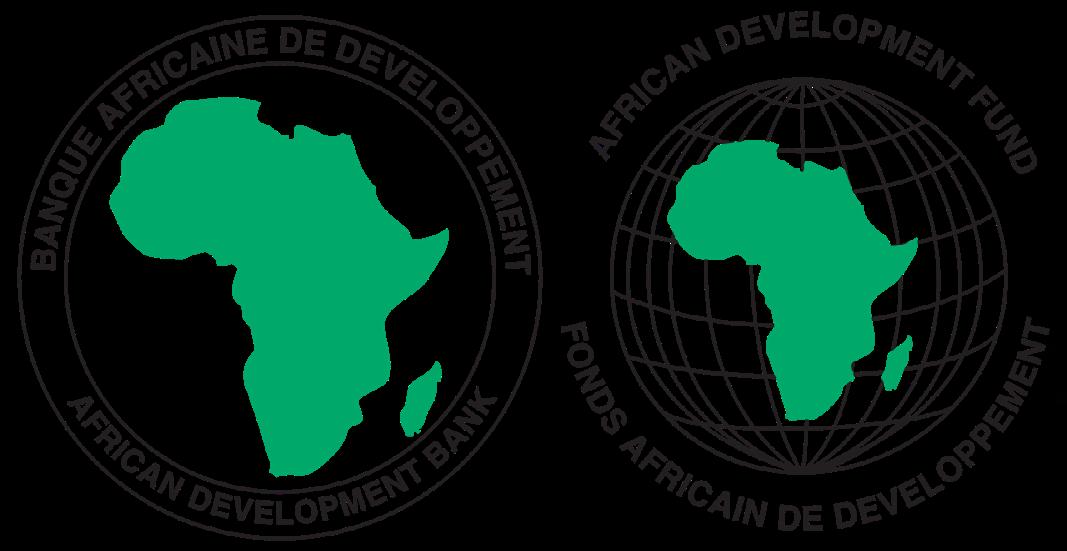
Address: 6, avenue Joseph Anoma, Abidjan, Côte d'Ivoire
Telephone: +225 20 26 10 20 Website: www.afdb.org
Kerry is the world’s leading taste and nutrition company, bringing technology leadership and sustainable growth to the food and beverage industries.
Address: Crater Auto building | Mombasa Rd | South C | Nairobi | Kenya
Telephone: +254 793326878
Email Address: regis.manyange@kerry.com Website: www.kerry.com
04 EXHIBITORS
Bureau Veritas is a recognized world leader in testing, inspection and certification services (TIC).

Address: Delta Corner, Tower A, 5th Floor, Along Waiyaki Way, Westlands
Telephone: +254 20 366 9000
Email Address: contact.ken@ bureauveritas.com Website: www.group.bureauveritas.com
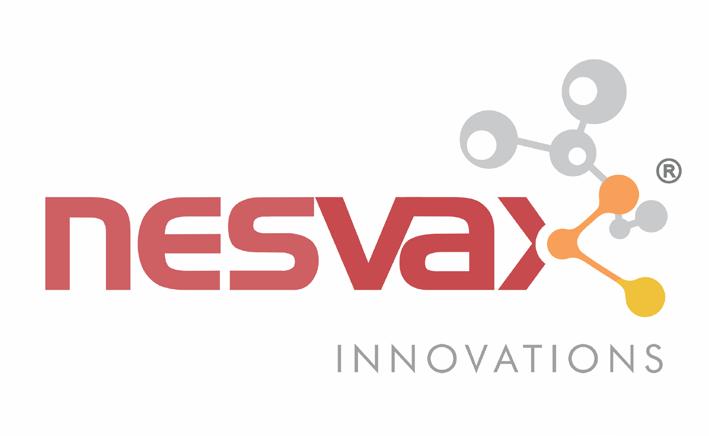
Nesvax Innovations Limited is an analytical laboratory equipment distribution company in East and Central Africa.
Address: Akshrap Properties Limited ,Gate C, Godown no 5,Mombasa Road,Opposite JKIA Junction, Nairobi, Kenya
Telephone: +254707965100
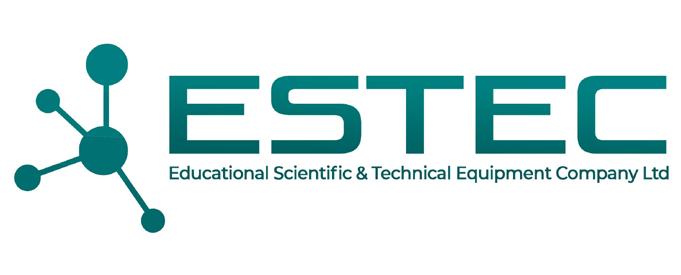
Email Address: info@nesvax.co.ke Website: www.nesvax.co.ke
ESTEC LTD is the market leader in East Africa for the supply and servicing of analytical equipment.
Address: West 1 Building 4th Floor, Corner of Wambugu Grove off Parklands Road
Telephone: 254-20-6537709
Email Address: info@esteckenya.com Website: www.esteckenya.com
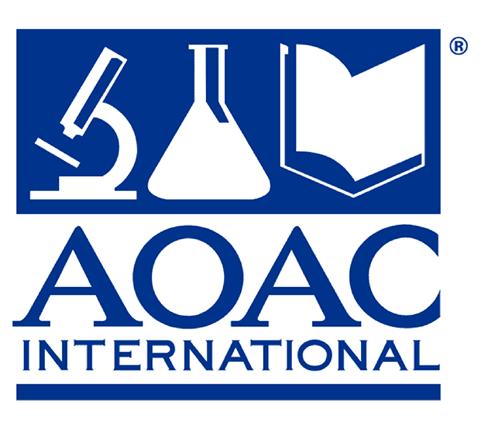
AOAC INTERNATIONAL brings together government, industry, and academia to establish standard methods of analysis that ensure the safety and integrity of foods and other products that impact public health around the world.
Address: Crater Auto building Telephone: +1 301-977-7626
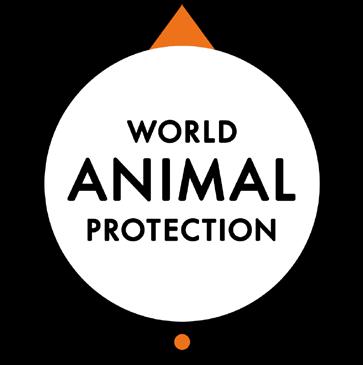
Email Address: customerservice@aoac. org Website: www.aoac.org
World Animal Protection is an international non-profit animal rights organization working to end the needless suffering of animals.
Address: Westside Tower, 9th Floor - No. 901, Lower Kabete Road, Westlands, off Brookside Roundabout.
Telephone: +254 20 3673 456
Email Address: worldanimalprotection. or.ke
Website: www.worldanimalprotection. or.ke
CASELAB offers holistic solutions to manufacturing and scientific sectors.
Address: Ruaraka Housing Estate, Unit No. 7, USIU Road, off Thika Superhighway Ruaraka, Nairobi, Kenya
Telephone: +254722776286
Email Address: caselab@caselabafrica.com Website: www.caselabafrica.com
Ingredients Laboratory Solutions Specialty Chemicals
05 SPEAKERS

IHEDIOHA

PhD - Division Manager, Agribusiness Division, African Development Bank Group
Regional Quality & Food Safety Director – Middle East, Indian Subcontinent & Africa, Kerry

Humane & Sustainable Agriculture Campaign Manager, World Animal Protection
Innovations Marketing Manager, Eastern & Southern Africa, Upfield
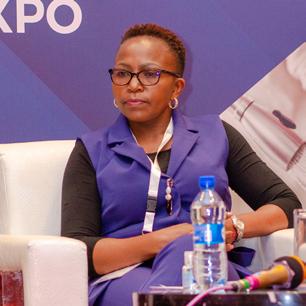

ISAAC MUGENYA
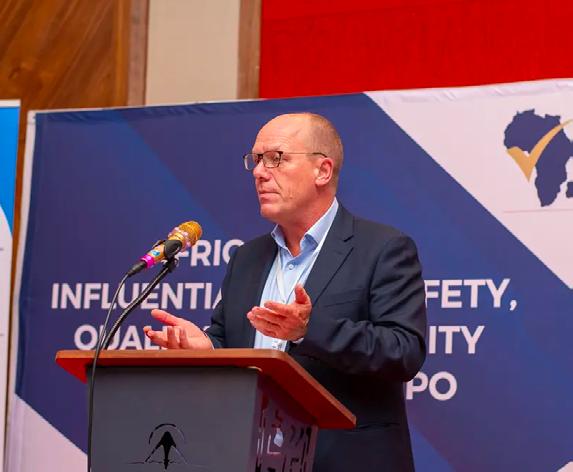











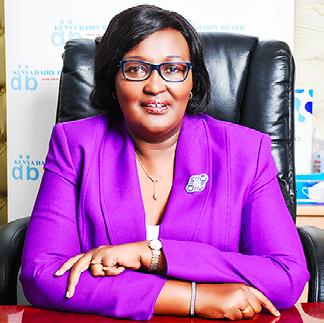
Manager, Testing Services, KEBS, Lake Region, Kenya
District Chief Executive, Eastern Africa, Bureau Veritas
Regional Food Safety & Quality Specialist, World Food Programme
OCTOBER 2022 | FOOD SAFETY AFRICA MAGAZINE FOODSAFETYAFRICA.NET 30
DAMIAN ONYEMA
DR. VICTOR YAMO
MARY MUREITHI
CAMPBELL MITCHELL
MARGARET KIBOGY Managing Director, Kenya Dairy Board
COLLINS MARANGU Director Plant Protection and Food Safety in the Ministry of Agriculture, Livestock, Fisheries and Cooperatives in Kenya
STEPHEN CARLYON MD, Simplifine Foods
MATLOU SETATI Executive: Food Safety, CGCSA
ALIYU ANGARA
Registrar/CEO, Institute of Public Analysts of Nigeria (IPAN)
TOM OUMA Business Development Manager, ESTEC
DR. HERMOGENE NSENGIMANA Secretary General, African Organisation for Standardisation, ARSO
JIM TOZER Managing Director, Kenchic Ltd
DR. BLAISE OUATTARA, DMV, Ph.D. Regional Food Safety and Quality Officer for Africa, FAO
DR. JOHN K. MUORIA Lecturer JKUAT & Chairman, KIFST
OWEN PAUL FRASER, Ph.D President Africa & Board Member Aoac International
LINDA CAPWELL
CYPRIAN KABBIS
SPEAKERS
WILLIS MITULA
Head, Governance & Technical, Kenya Breweries Ltd

R&D Manager, Capwell Industries
CAREEN BIWOTT

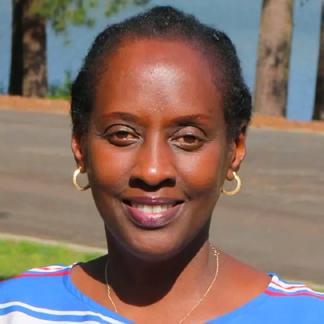
Quality Assurance Lead, KwikBasket
DOREEN LUGALIA Managing Consultant, Mantra Consulting



Milling Executive, CCB – National Milling Zimbabwe
Chief of Party, Land O’Lakes Venture 37
Quality Control Manager, Golden Africa



JOHNES










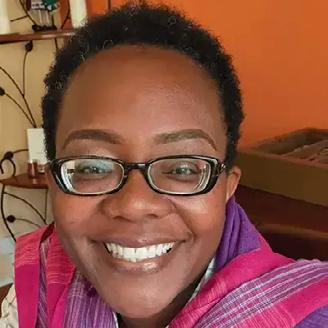
VIVIAN OCHIENG Production Manager, Simplifine Foods

FOODSAFETYAFRICA.NET OCTOBER 2022 | FOOD SAFETY AFRICA MAGAZINE 31
EVANSON MWANGI Laboratory Manager, Kenya Dairy Board
KEZIAH WACHUKA
Head of Research and Development, Bio Foods
LAWRENCE ALOO Chief BioChemist, National Public Health Laboratory, Kenya
CHARITY MAGWENZI
LABAN KABIRU Manufacturing and Logistics Director, Bio Food Products
WILLIAM KAPFUPI
06
DR. ANDREW EDEWA Director, Standards and SPS Measures, TradeMark East Africa
AUGUSTINE OKORUWA, PH.D, FNIFST Head of EatSafe Country Program, GAIN
DR. GEORGE OOKO ABONG’ Senior Lecturer, University of Nairobi
WALTER RONO Agri, Food & Trade Manager, Bureau Veritas
KHADIJA MOHAMED Founder & CEO, Kwanza Tukule
WALTER BRUCE OPIYO
JACQUE NJONJO
Africa Lead, Food Safety Advisory, IFC
NZIOKI Management Consultant, Business Edge Consulting
GERVASI NGATI
Supply Chain Strategic Sourcing Unit Planner, Unilever East Africa & Ethiopia
MARTHA BYANYIMA
SYLVESTER GULE Managing Director, Nesvax Innovations
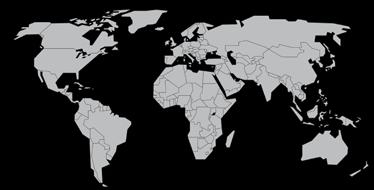
OCTOBER 2022 | FOOD SAFETY AFRICA MAGAZINE FOODSAFETYAFRICA.NET 32 07 KEY DATA TOP 5 COUNTRIES BY REGISTRATION Kenya - 35% Nigeria - 14% South Africa - 8% Ghana - 3% Zambia - 3% Other Countries - 37% 1000+ Attendees 40+ Speakers 25+ Countries
FOODSAFETYAFRICA.NET OCTOBER 2022 | FOOD SAFETY AFRICA MAGAZINE 33 & ANALYTICS PLATFORM IMPRESSIONS LINKED IN LIVE DATA 34694 10355 7307 1794 Salesperson JOB TITLES Quality Assurance Tester Executive Director DAY1 DAY2 DAY3 32% • Logistics Specialist • Safety Specialist • Business Strategist • Manufacturing Operations Manager • Journalist • Founder • HR Specialist 12% •Operation Specialist • Laboratory Technician • Marketing Strategist • University Professor • Consultant 10% 39% 6% Others 1% Impressions 4293 1630 2728 1019 701 2786.5 752 556 2089 1691 1196 3298.86 Views Viewers MinutesViewed
ATTENDEES 09
• “It is a timely Summit that brings everyone on board. This time is particularly special because we have the youth Summit and these are the leaders of tomorrow. So they are getting a brilliant opportunity to share and to learn how their career paths in food safety and food can grow. There is no better time like now to ensure that we create awareness as far as food safety is concerned.”
Doreen Lugalia, Managing Consultant, Mantra Consulting.
• “We at Bureau Veritas feel that AFSS is coming at a very critical time in Kenya. We’ve had the Food Safety Bill presented to parliament. As such the discussions going on at this conference are quite critical.”
Cyprian Kabbis – District Chief Executive - Eastern Africa, Bureau Veritas Group


• “It was a good opportunity for me to network with people who have been in the food industry for long, having them expound on what you can do with your course and the opportunities that are there. I’m looking forward to attending the next Summit, maybe I’ll be one of the panelists. I’ve seen people who started as attachees/ assistants and now they’re speaking to us as Managers, that’s what I’m looking forward to.”
Irene Chebet, Student, Dedan Kimathi University
• “I would like to urge the stakeholders to organize more such forums because we get to come together and see how to formulate policies that will guide and take food safety to the next level.”
Joseph Githago, Chief Steward, Villa Rosa Kempinski Nairobi


• “It is a timely Summit that brings everyone on board. This time is particularly special because we have the youth Summit and these are the leaders of tomorrow. So they are getting a brilliant opportunity to share and to learn how their career paths in food safety and food can grow. There is no better time like now to ensure that we create awareness as far as food safety is concerned.”

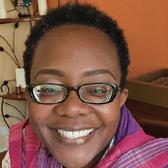
Onesmus Mwaniki, Chief Chemist, Laboratory Services, Kenya Plant Health Inspectorate Service.
• “This is a great forum and it should be done frequently, not only yearly. They should ensure that they look for speakers across the entire food value chain because everyone is involved when it comes to food.”
Nancy Kariuki, Head of Sales & Marketing, Interfield Food Testing Laboratories

COMMENTS
• “This forum is crucial for us because we need to get knowledgeable to spread our expertise and share our experiences worldwide about food safety. We are quite new in Africa and this is a great place to network and discuss with people about their needs/obstacles and see how we can support them.”
Soumeya Loucif, Area Business Manager, Biomerieux

• “The event was well planned, the set up was good, and the speakers were well versed in their areas of discussion. In the future, if another setup like this is made, I would wish that we have more interactive sessions where we are divided into groups so we get to know each other at a more personal level.”
Sarah Nura, MS Food Science, Egerton University/ Quality Analyst, Cargill
• “The Forum creates a platform for the exchange of ideas between startups and more established companies. It brings a lot of growth and also acts as a way of mapping the food industry players in the country.”
Stephen Kuria, Application Chemist, ESTEC Limited


• “Bringing the various players together creates synergy in how we should integrate food safety in all that we do, hence the Summit was a great idea.”
Mary Mureithi, Regional Food Safety & Quality Advisor, WFP

• “I was able to learn the importance of food safety. Personally, I’m just an entrepreneur behind the business so it’s been a learning lesson. It was also encouraging to meet many people from the food industry. I believe we have a lot to take home.”


Wanjiru Mambo, Founder & CEO, Wedgehut Foods Limited
• “We are looking forward to making the event great and better by inviting more stakeholders like farmers, Ministry of Transport, and Health because basically, they play an important role in the food value chain.”
Mokua Erickson, Head of Operations, Clever Harvest Inc
The Food Safety Summit is a good forum for the dissemination of information because we realize that some of the food safety incidents taking place in the food industry are due to lack of information. If you look at what KEPHIS and other government organizations are doing here, they are key in informing the producers and manufacturers of food on how they can be able to control the issues of food contamination. The networking helps to widen our way of thinking in terms of food safety.
Cyprian Kabbis – District Chief Executive - Eastern Africa, Bureau Veritas Group

11 PICTORIALS
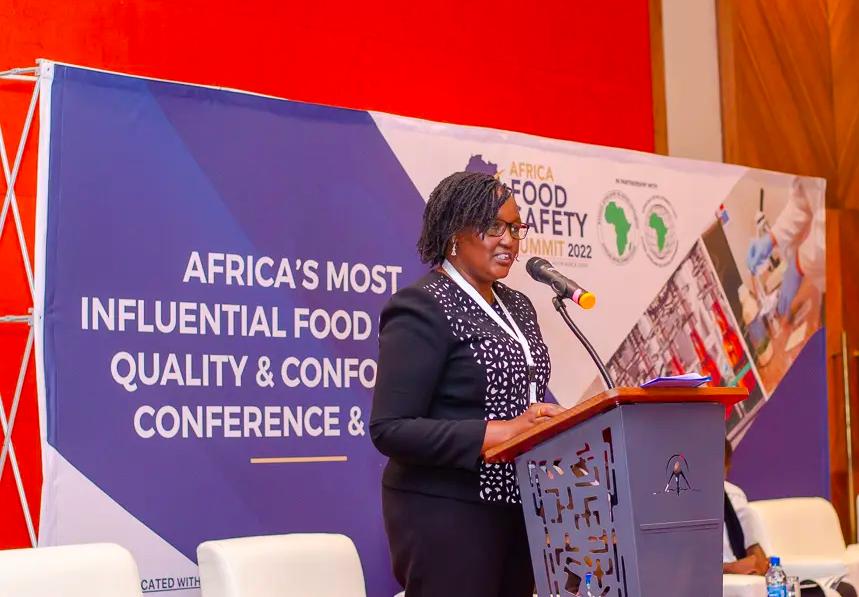

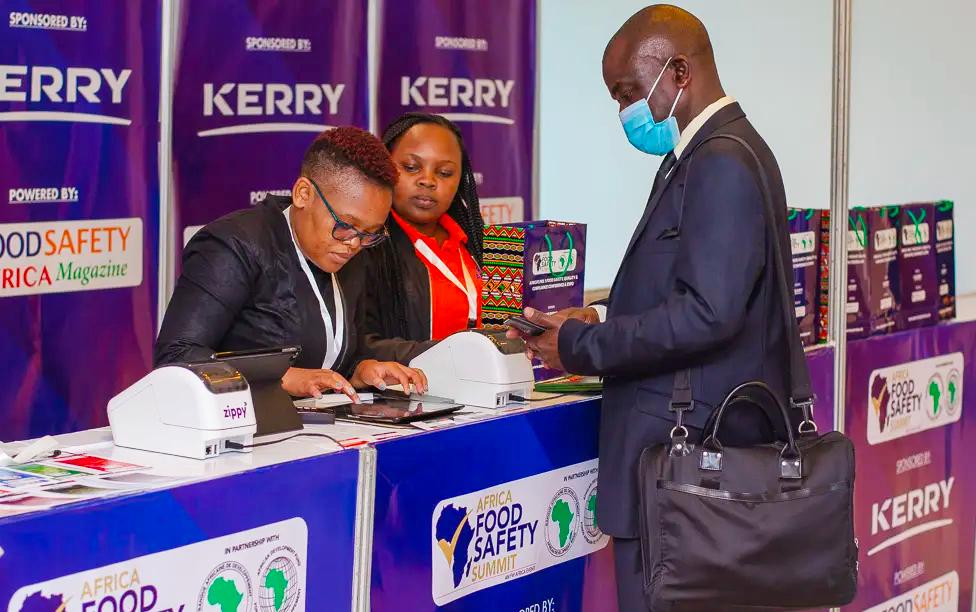
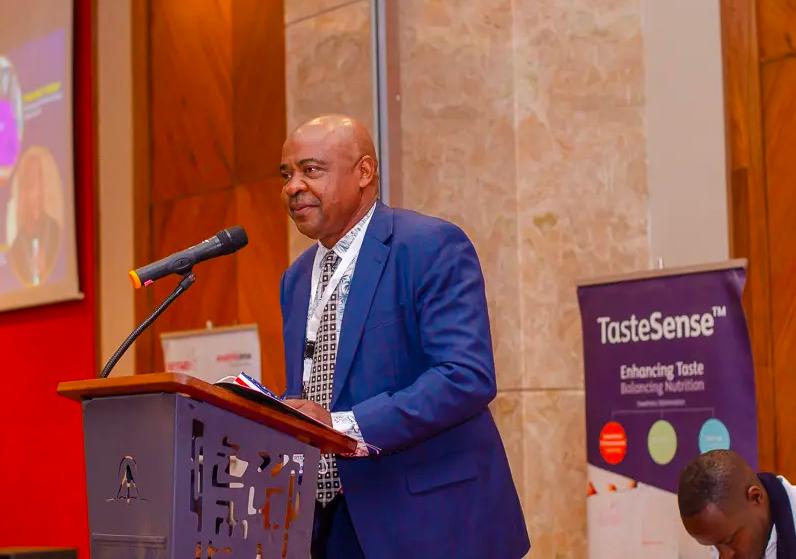
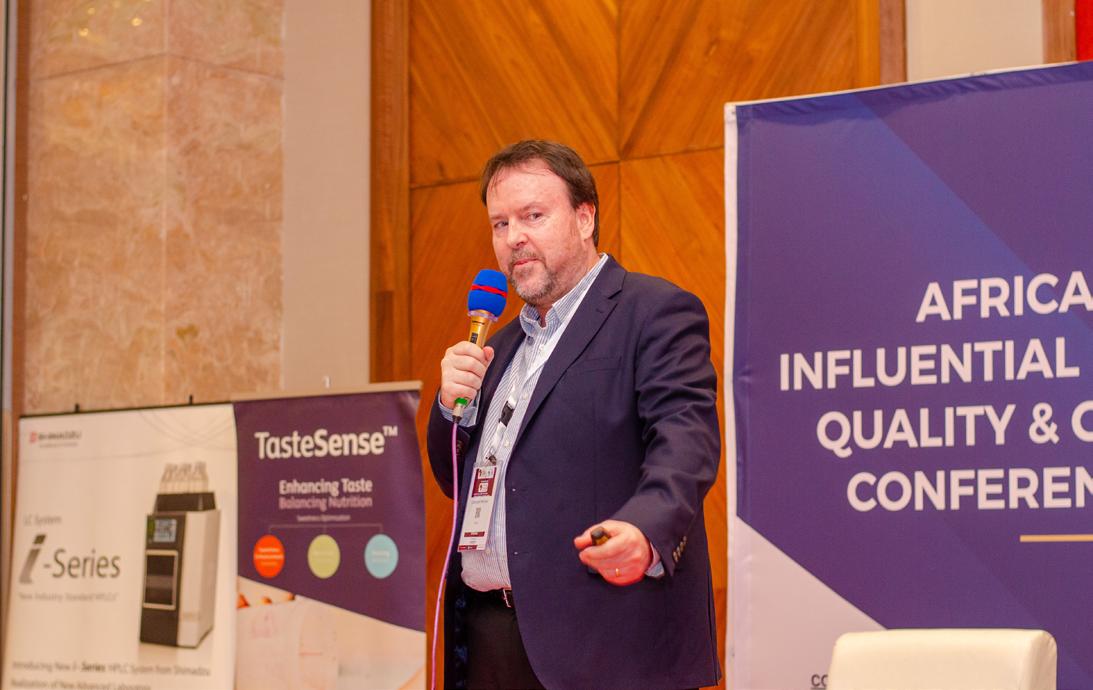
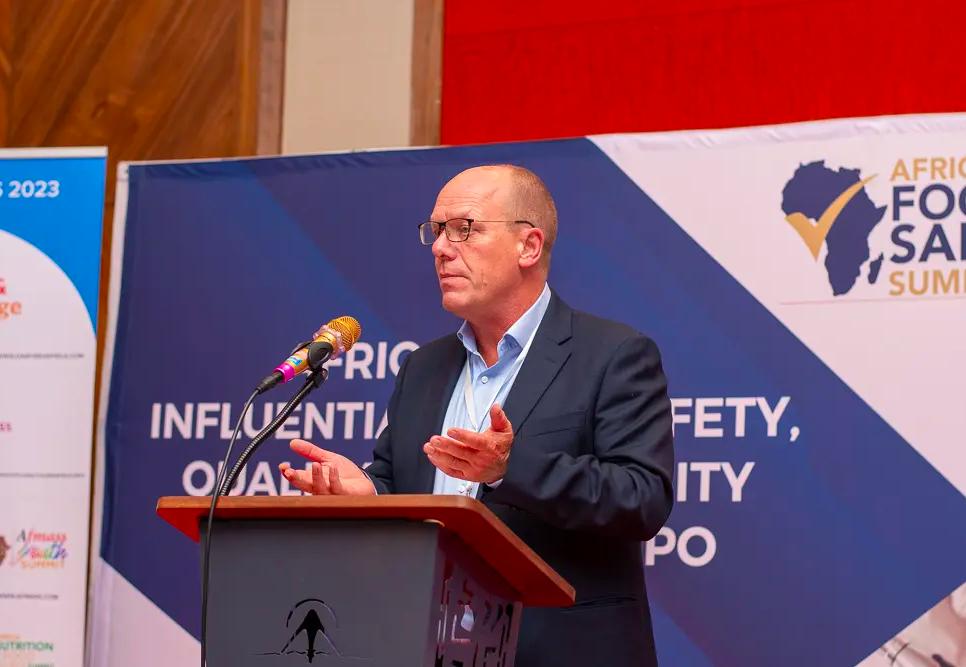
OCTOBER 2022 | FOOD SAFETY AFRICA MAGAZINE FOODSAFETYAFRICA.NET 36
Damian Onyema Ihedioha, PhD - Division Manager, Agribusiness Division, African Development Bank Group
Margaret Kibogy – Managing Director, Kenya Dairy Board, delivering her keynote speech at the opening ceremony
The registration desk clearing out the attendees
Jim Tozer – Managing Director, Kenchic, highlighting the company’s strides in upholding animal welfare
Owen Paul Fraser, PhD – President Africa & Board Member, AOAC International, enlightening the delegates on the modernday laboratory
Campbell Mitchell – Regional Quality & Food Safety Director, Middle East, Indian sub-continent & Africa, Kerry, expounding on what Kerry is all about
12 PICTORIALS
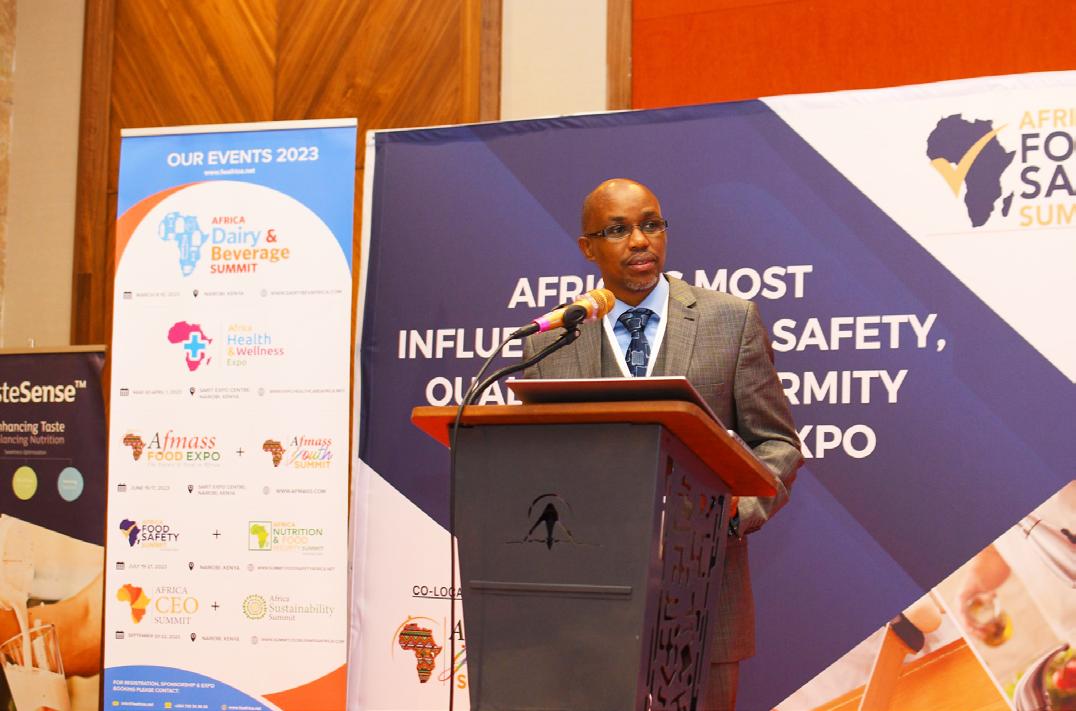
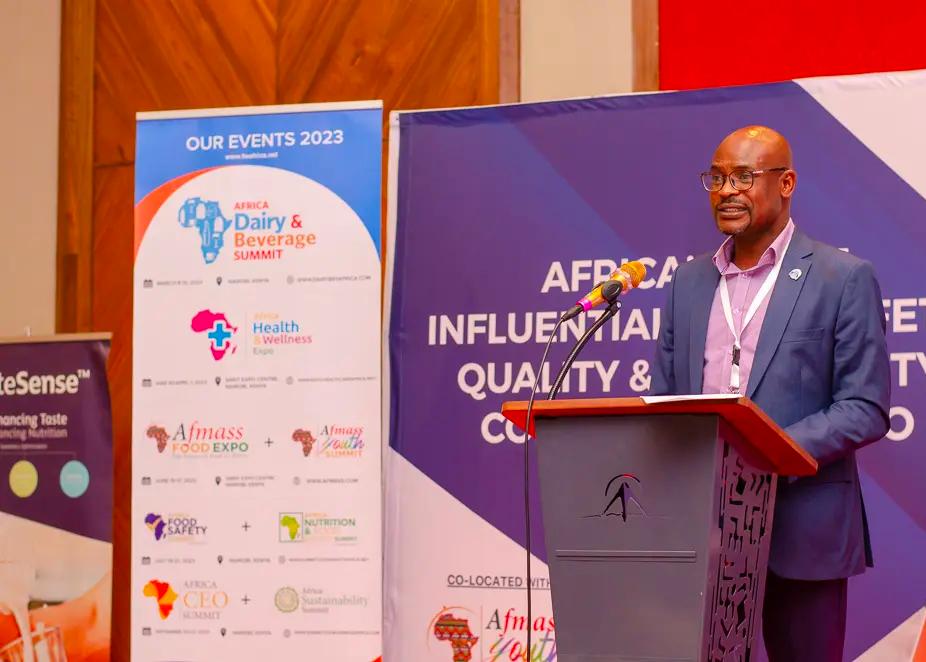

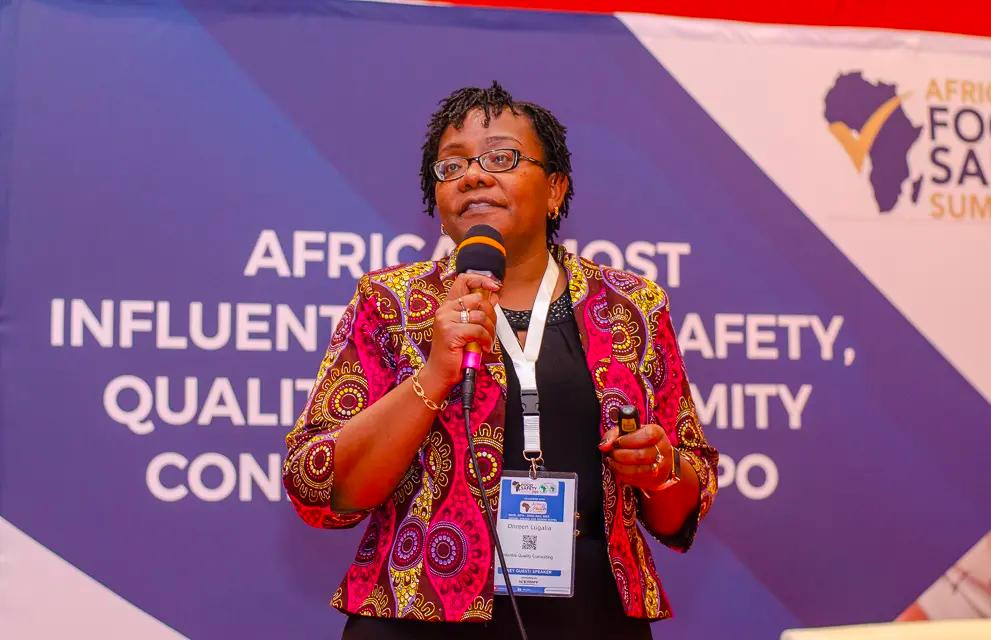

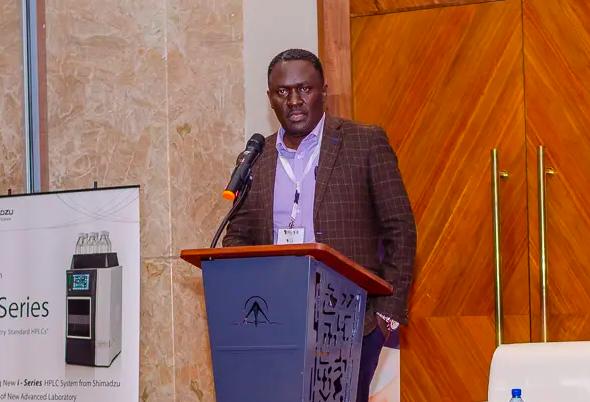
FOODSAFETYAFRICA.NET OCTOBER 2022 | FOOD SAFETY AFRICA MAGAZINE 37
Doreen Lugalia – Managing Consultant, Mantra Consulting, highlighting the impact of COVID-19 on food safety
Walter Rono – Agri, Food & Trade Manager, Bureau Veritas, explaining to the delegates what they do
Dr. Victor Yamo – Humane & Sustainable Agriculture Campaign Manager, World Animal Protection (WAP), giving an overview of WAP’s initiatives
Managing Director of Nesvax Innovations Sylvester Gule discussing the offerings of the business
Francis Juma – Founder & CEO, FW Africa, formally commencing the Summit
Tom Ouma – Business Development Manager, ESTEC, illuminating the company’s solutions
13 PICTORIALS
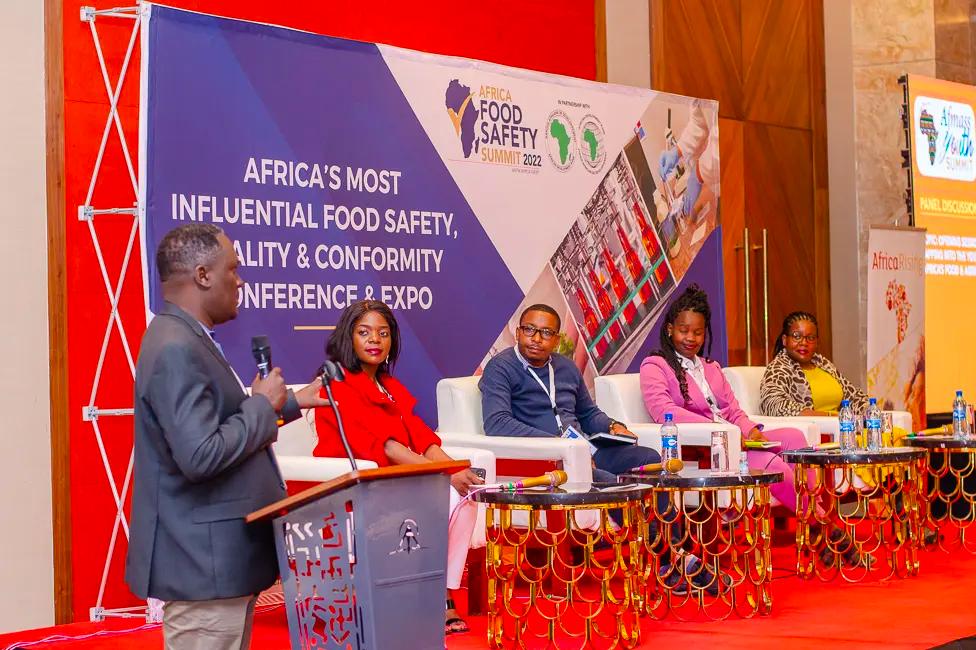


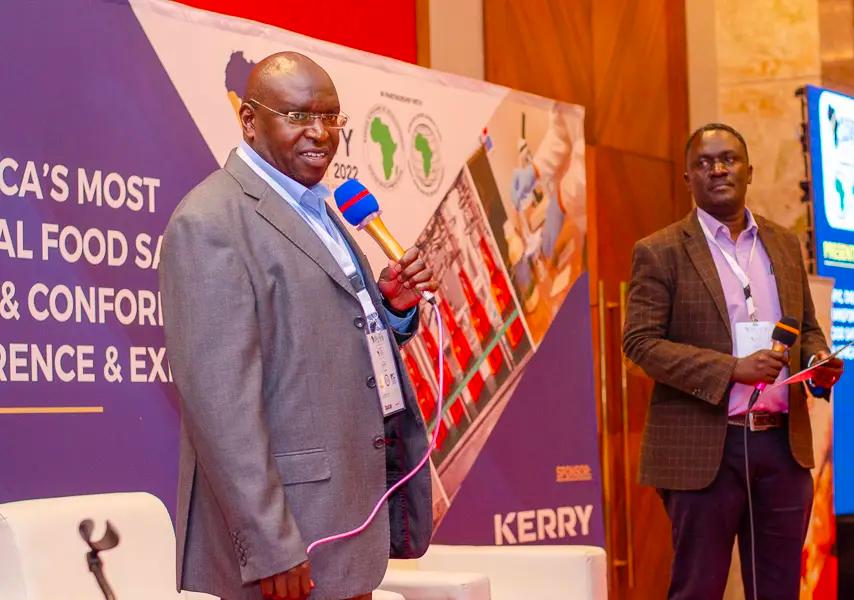

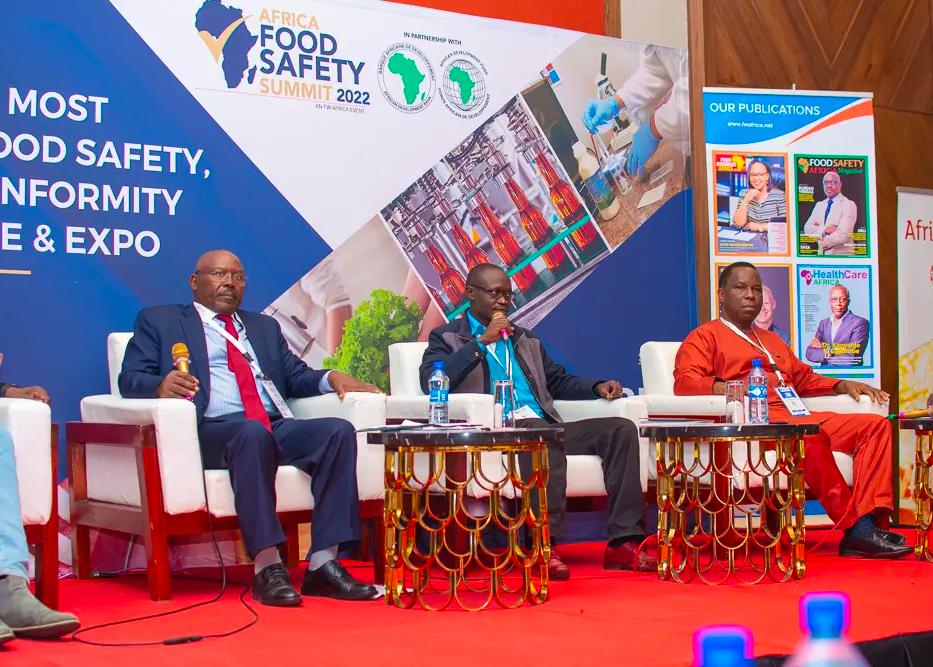
OCTOBER 2022 | FOOD SAFETY AFRICA MAGAZINE FOODSAFETYAFRICA.NET 38
Laban Kabiru – Manufacturing & Logistics Director, Bio Food Products, having a fireside chat with the host
Khadija Mohamed – Founder & CEO, Kwanza Tukule, taking us into the world of entrepreneurship
Academic gurus speaking on “Capacity building & training of Africa’s next food safety champions”
Panelists dissecting the food safety situation in the country
Panelist discuss food safety infrastructure and standards development
A panel of young professionals during the AFMASS Youth Summit sharing on how to tap into the youth potential
14 PICTORIALS

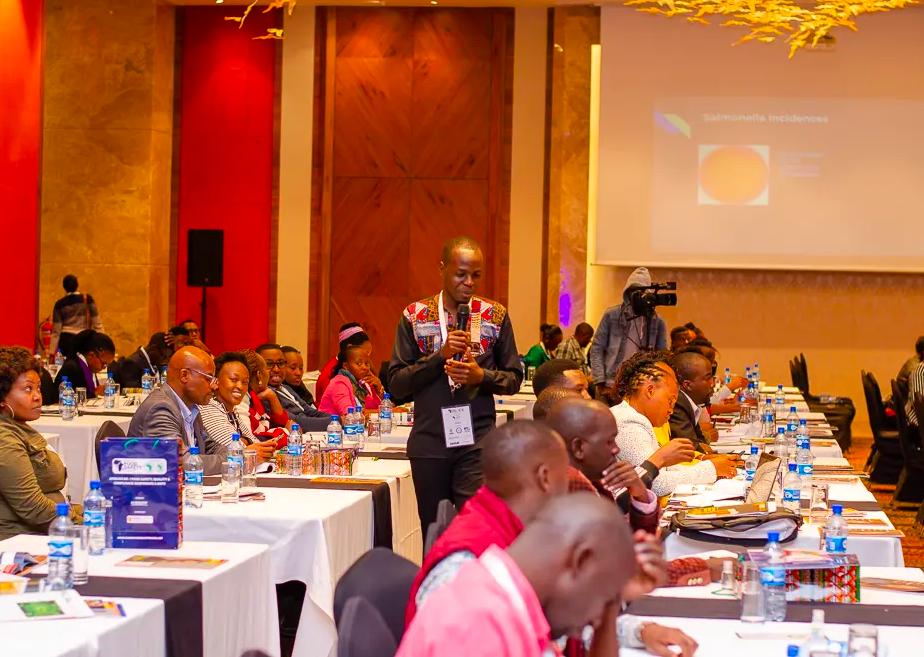
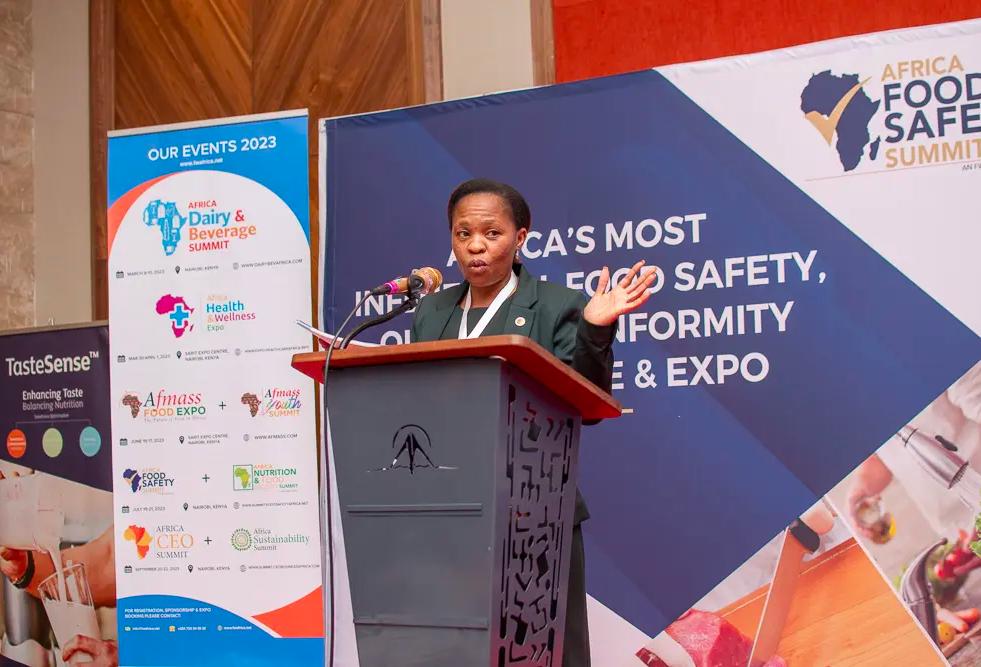


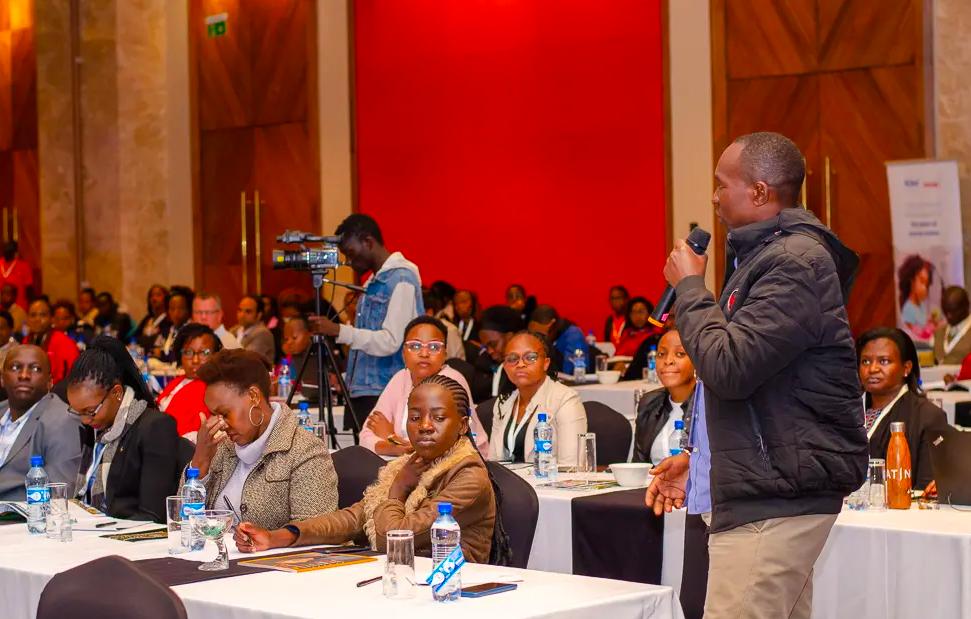
FOODSAFETYAFRICA.NET OCTOBER 2022 | FOOD SAFETY AFRICA MAGAZINE 39
Lawrence Aloo – Chief BioChemist, National Public Health Laboratory, Kenya, in the middle of a heated discussion on aflatoxins
KwikBasket’s Quality Assurance Lead Careen Biwott discusses how her organization handles its supply chain
Matlou Setati – Executive, Food Safety, Consumer Goods Council of South Africa (CGCSA), describing the organization’s mission
Dr. Augustine Okoruwa, FNIFST – Head of EatSafe Country Programs, GAIN Nigeria, detailing how GAIN is leading supply chain digitization
Delegate contributing to a discussion
Paul Ongeto – Chief Editor, FW Africa, engaging with the audience during a discussion on food safety incidences
15 PICTORIALS

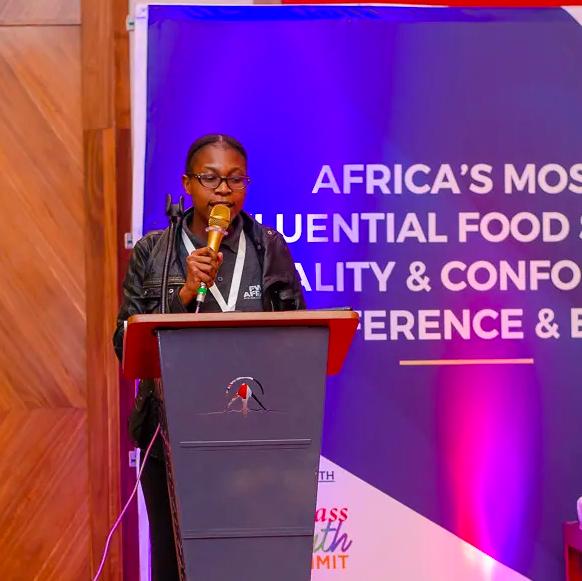
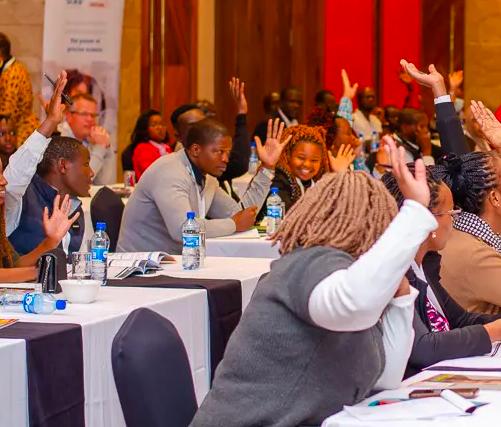

OCTOBER 2022 | FOOD SAFETY AFRICA MAGAZINE FOODSAFETYAFRICA.NET 40
Paul Ongeto, Chief Editor, FW Africa, moderating a series of discussions at the Summit
Walter Bruce Opiyo – Quality Control Manager, Golden Africa Kenya emceeing the AFSS 2022
Food Safety Africa Magazine’s Editor Catherine Odhiambo leading a townhall discussion on “Food Safety in the News.”
Participants adding to the conversation during the AFMASS Youth Summit
16 PICTORIALS
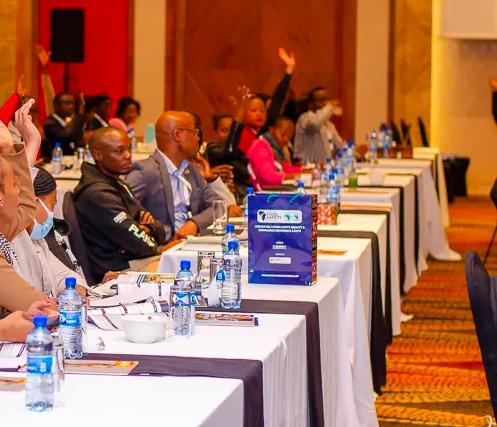
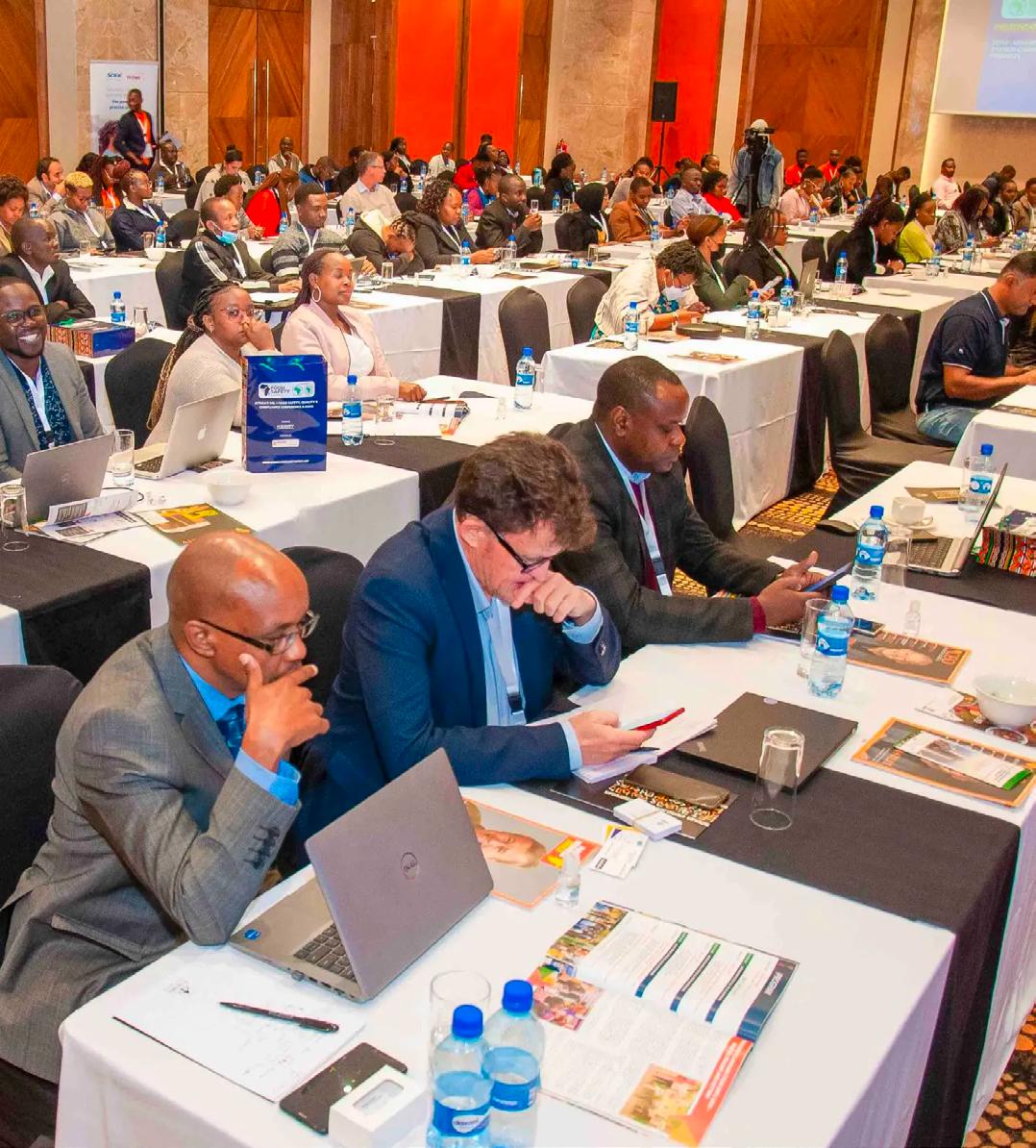
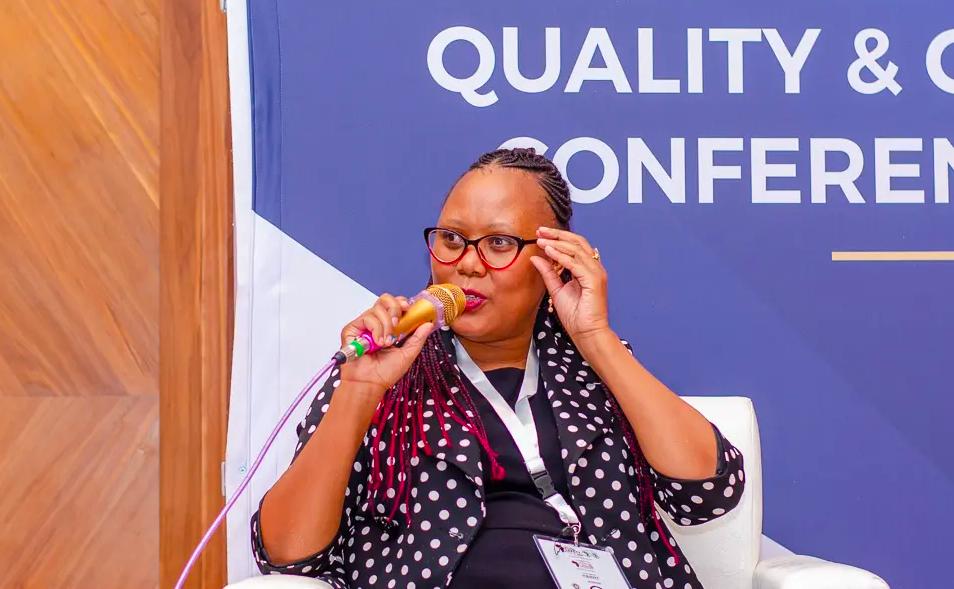
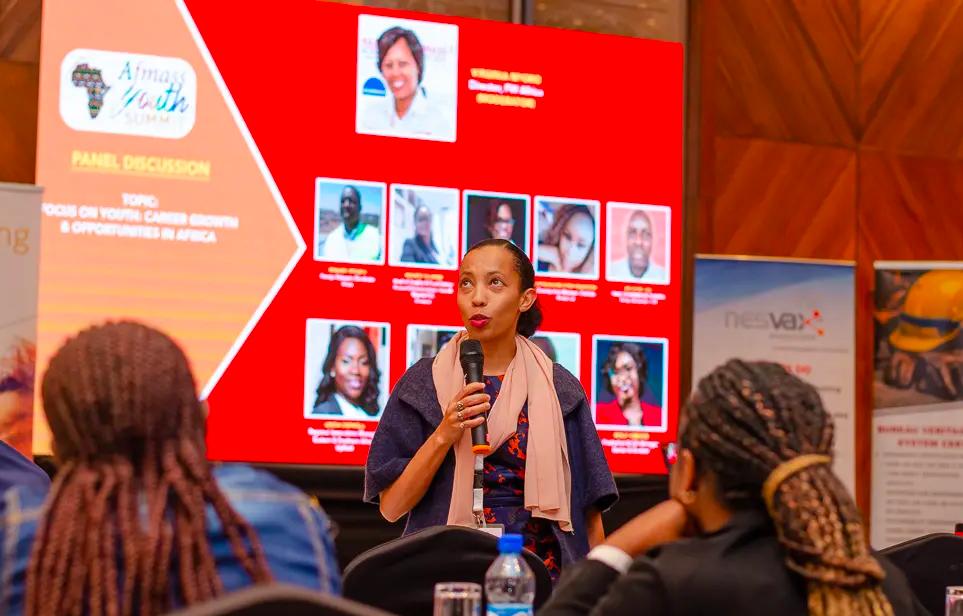
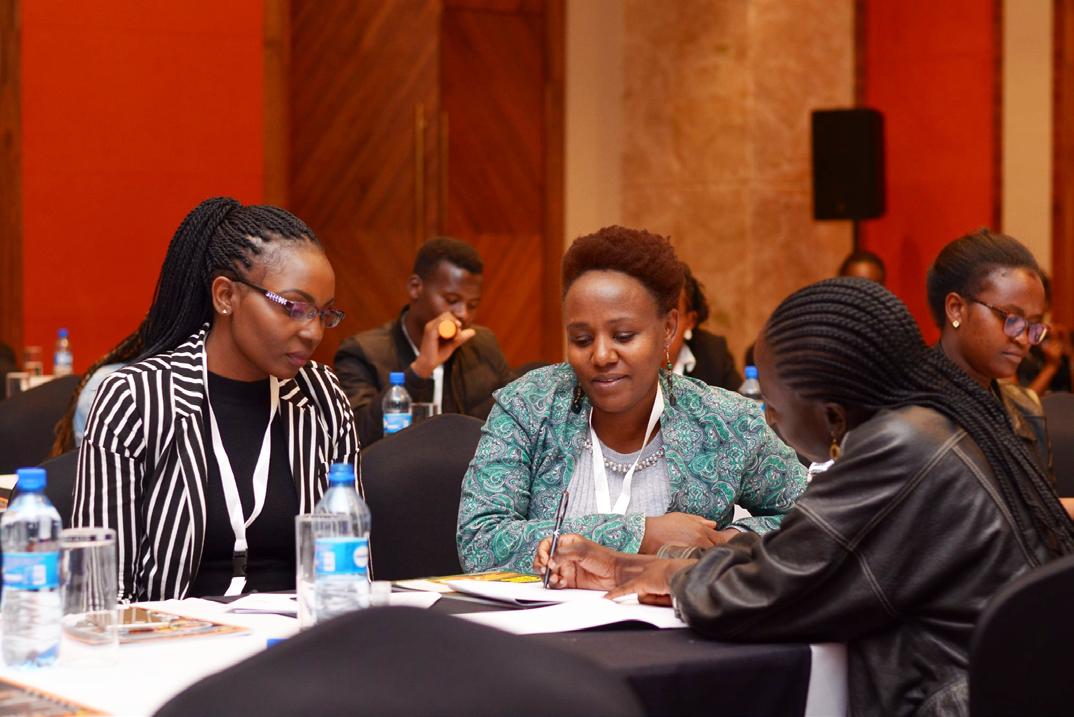
FOODSAFETYAFRICA.NET OCTOBER 2022 | FOOD SAFETY AFRICA MAGAZINE 41
Delegates keenly following the conference proceedings
Virginia Nyoro, Director, FW Africa, facilitating a session during the AFMASS Youth Summit
Joan Lombard, Manager Quality Assurance and Food Safety at Farmer’s Choice Limited, answering a query
Delegates collaborating on an assignment at the AFMASS Youth Summit
17 PICTORIALS



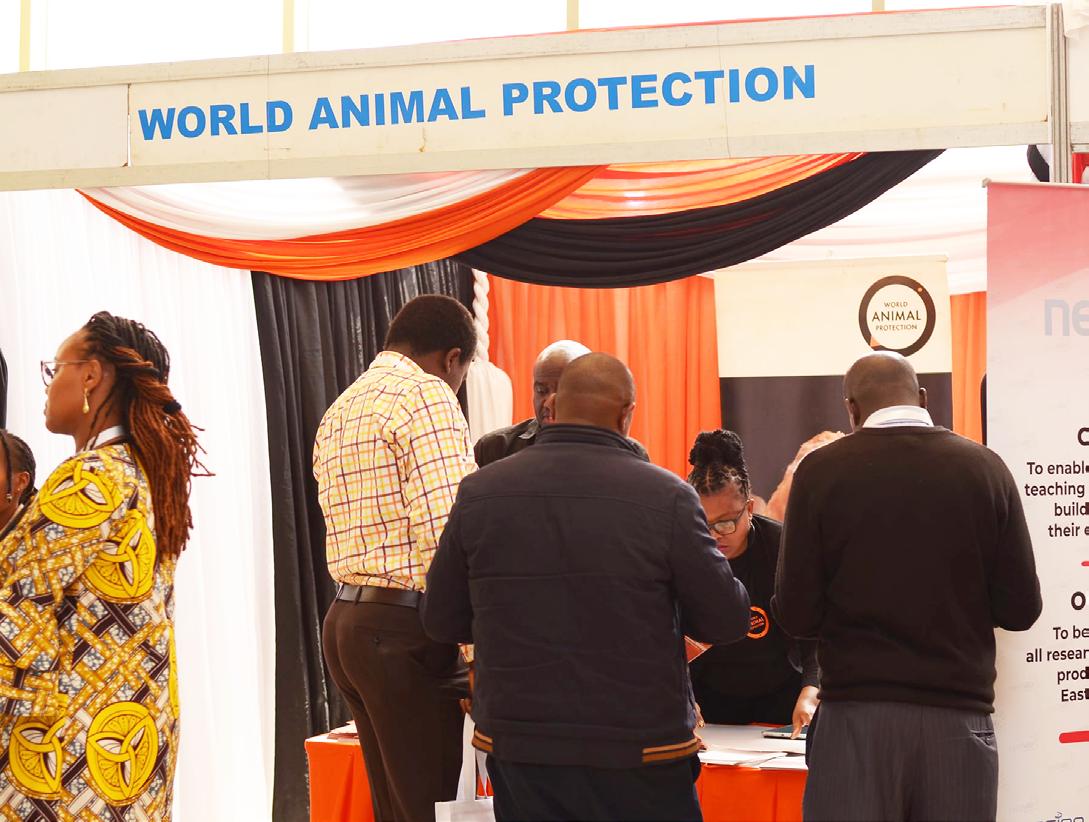
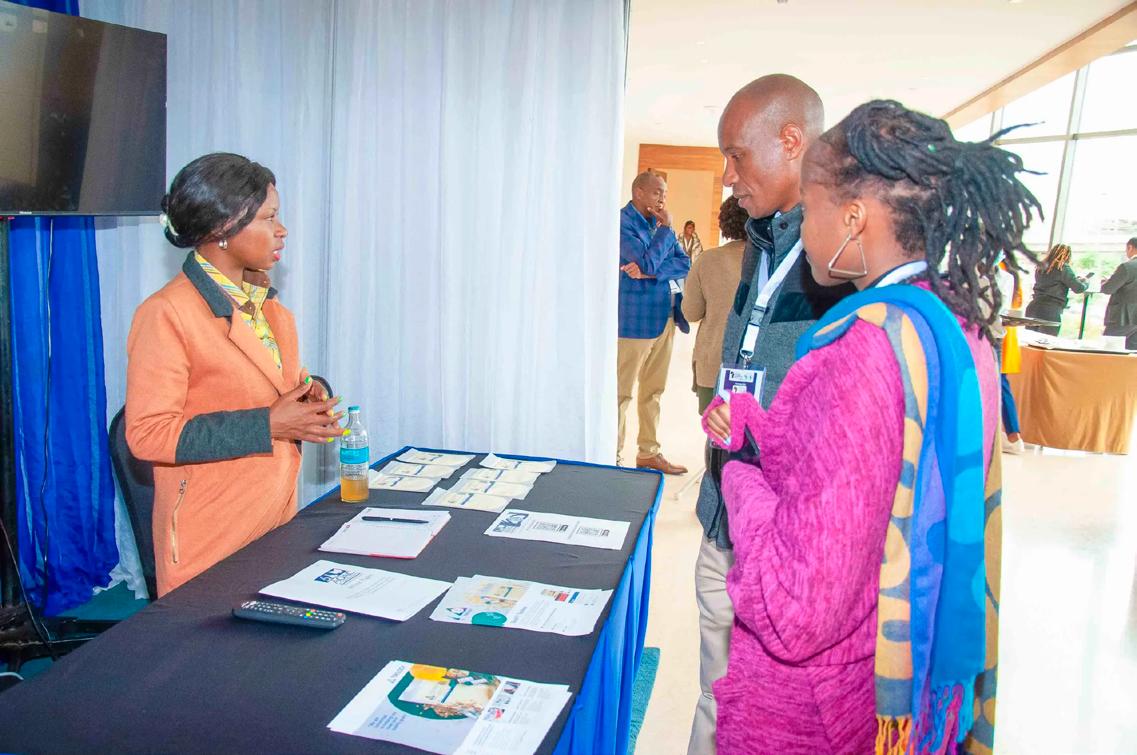
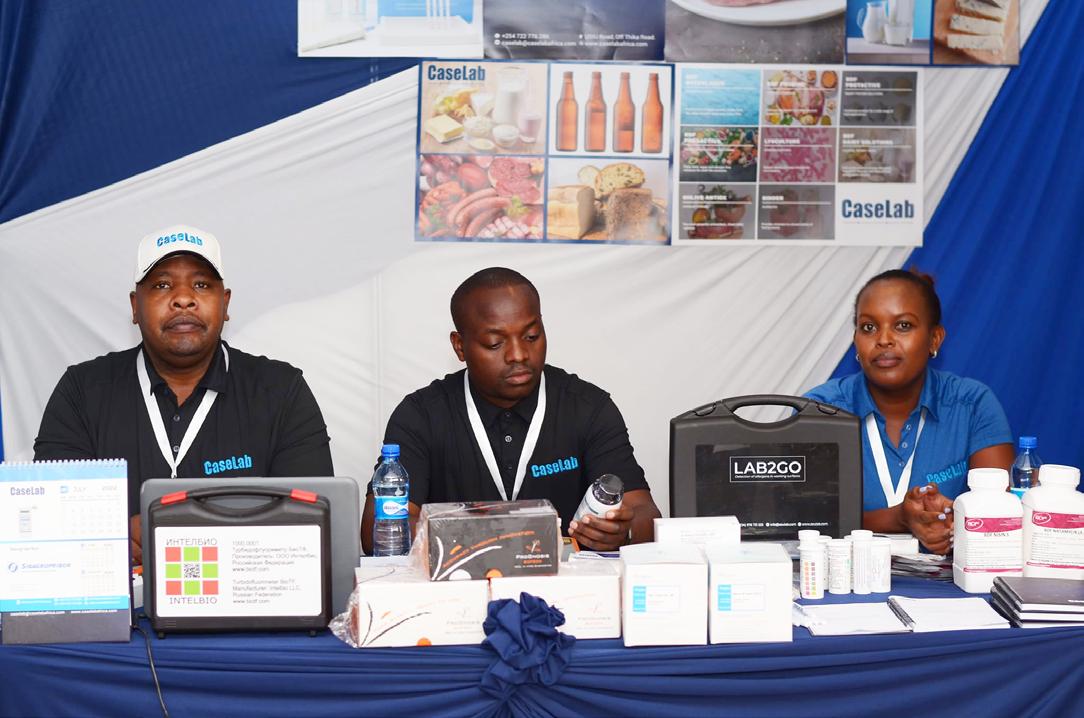
OCTOBER 2022 | FOOD SAFETY AFRICA MAGAZINE FOODSAFETYAFRICA.NET 42
Bureau Veritas interacting with delegates at their booth World Animal Protection engaging attendees at their stand
Nesvax Innovations Limited exhibiting at the AFSS 2022 Estec Limited exhibiting at the AFSS 2022
Caselab showcasing their solutions at the Summit
Delegates visiting the AOAC exhibition booth
18 PICTORIALS
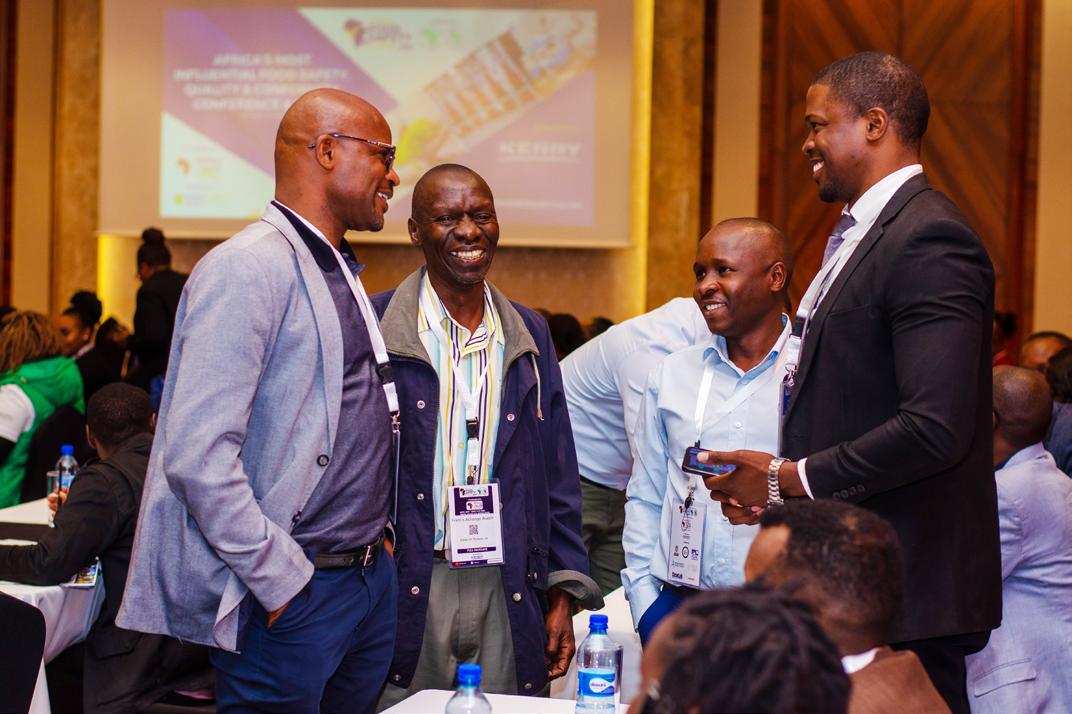
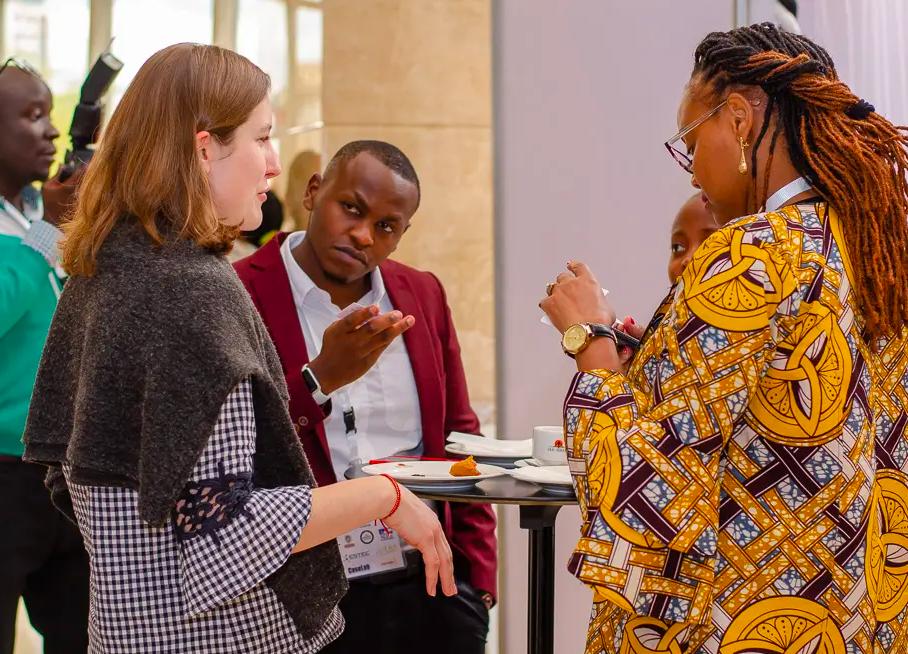


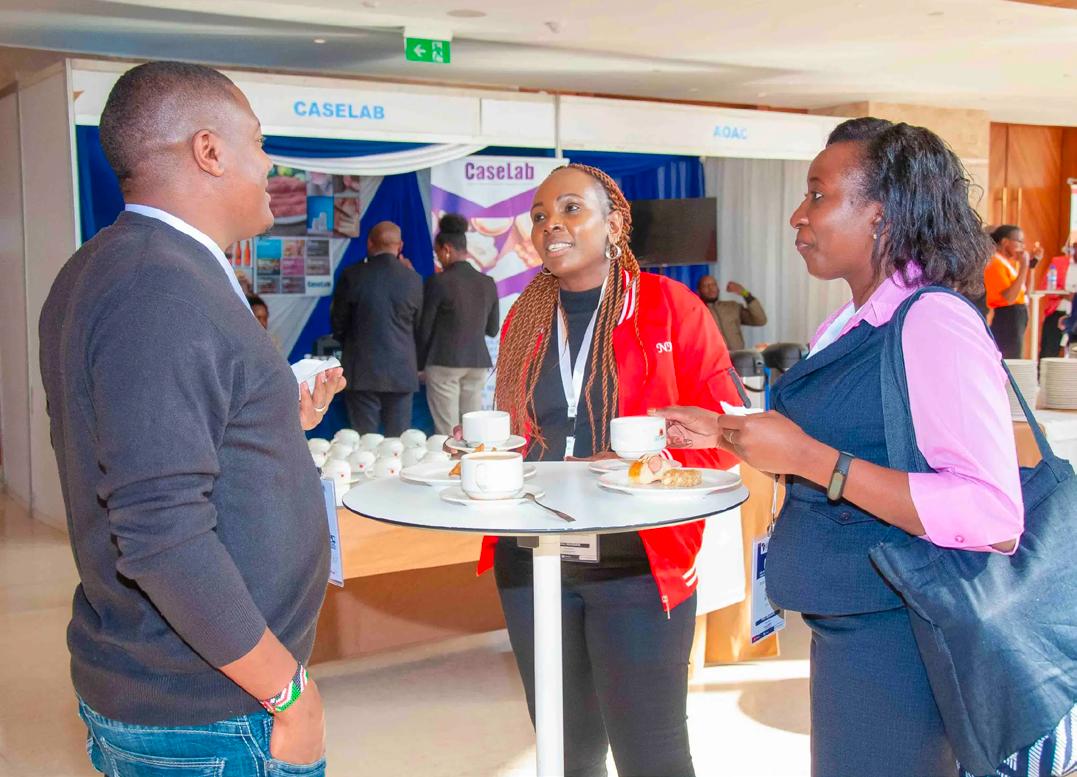

FOODSAFETYAFRICA.NET OCTOBER 2022 | FOOD SAFETY AFRICA MAGAZINE 43
Francis Juma, FW Africa’s Founder and Virginia Nyoro, FW Africa’s Director, conversing with GAIN’s Dr. Augustine Okoruwa
Delegates during a networking session
AFSS 2022 delegates mingling and chatting
Cyprian Kabbis – District Chief Executive - Eastern Africa, Bureau Veritas Group chatting with his colleague Pascal Hemar - Africa Market Leader - Agri/Food
Attendees catching up over some tea
Delegates sharing a light moment
19 PICTORIALS

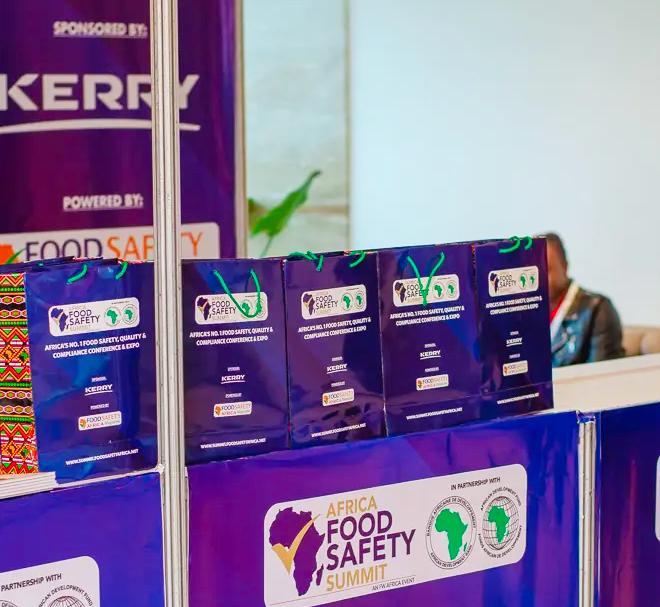

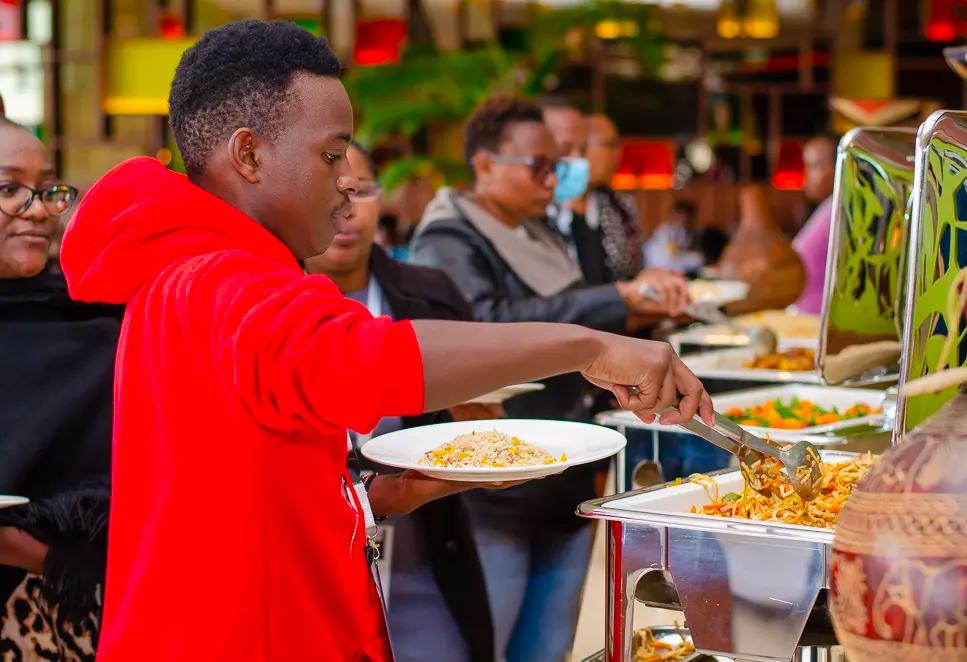

OCTOBER 2022 | FOOD SAFETY AFRICA MAGAZINE FOODSAFETYAFRICA.NET 44
The Summit availed the finest of global cuisines
Attendees treating themselves to the sumptuous meals
The delegates had a wide range of delicacies to choose from The registration desk packed with gift packs for the attendees
The hotel Emara Ole Sereni’s immaculately decorated conference room
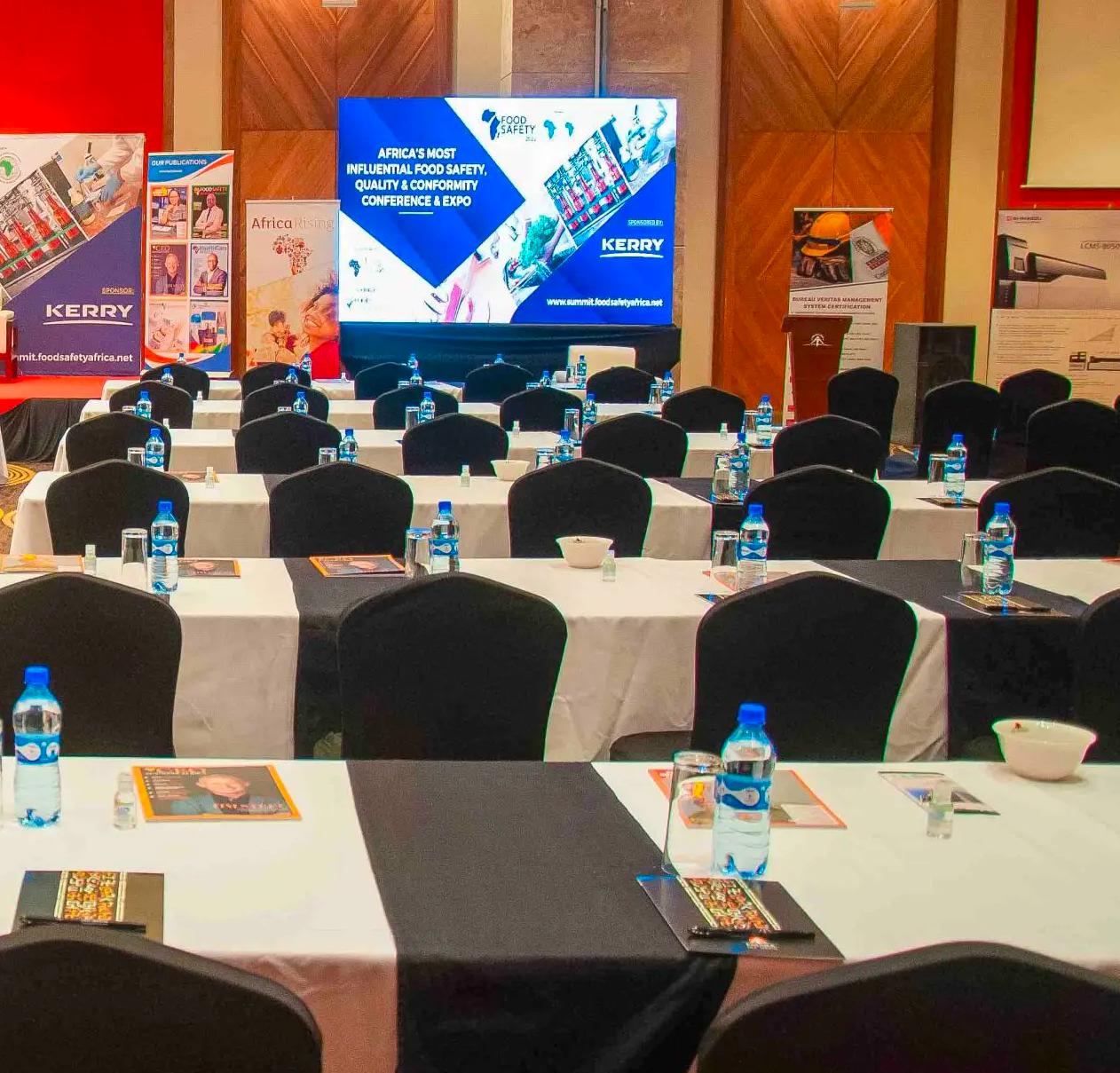
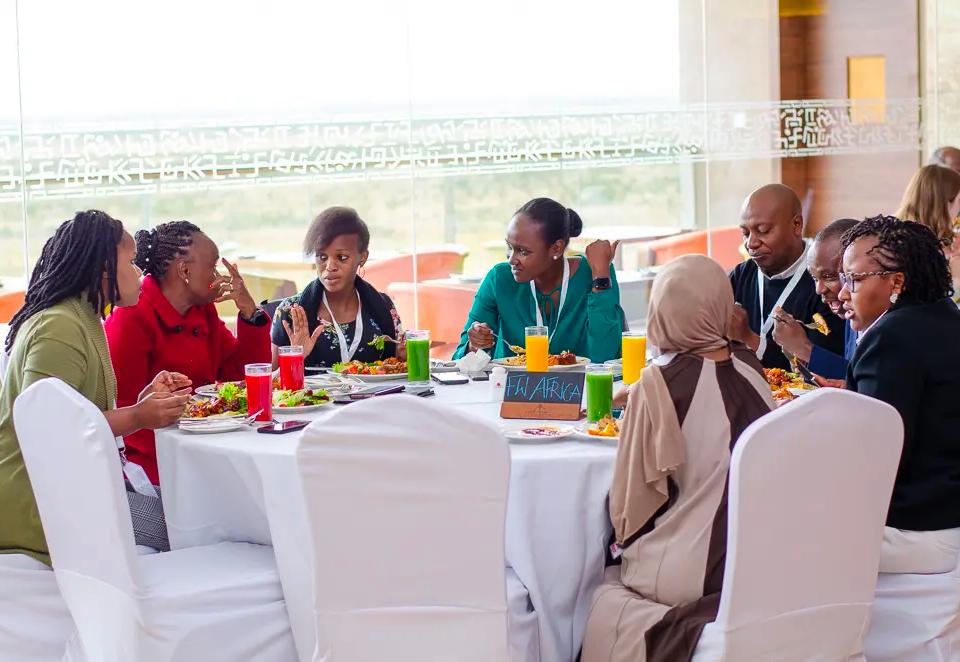

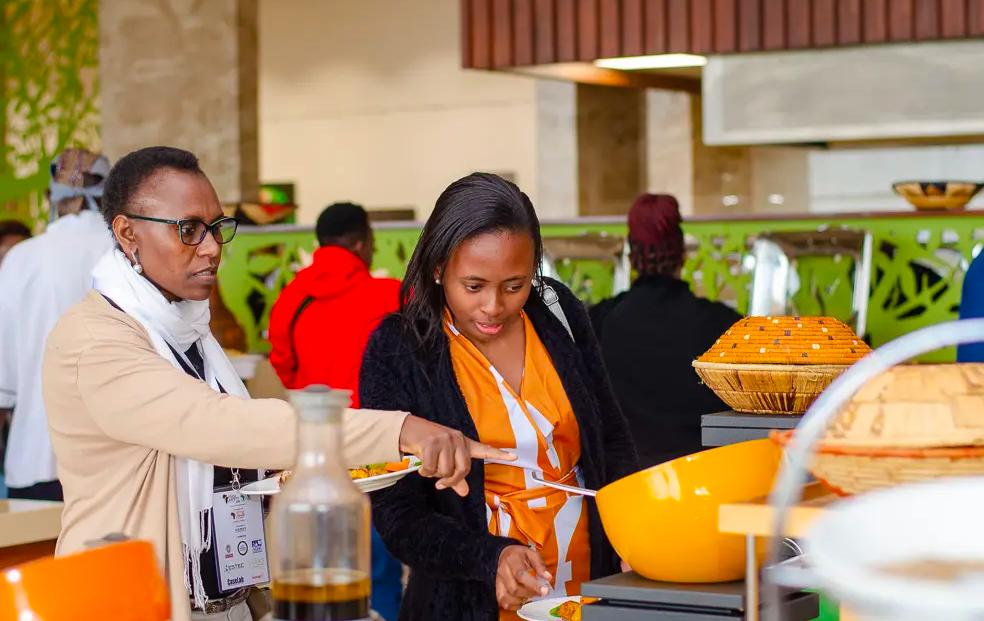
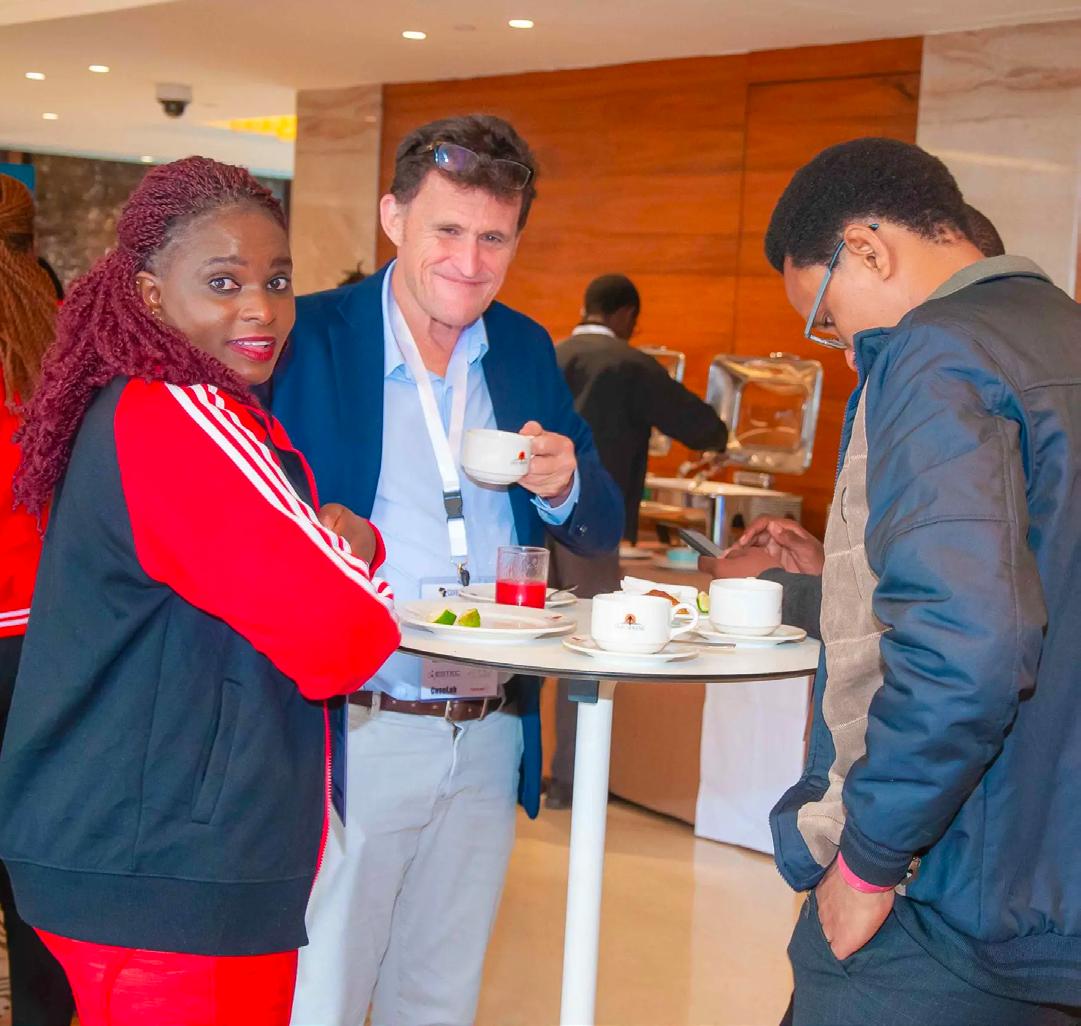
FOODSAFETYAFRICA.NET OCTOBER 2022 | FOOD SAFETY AFRICA MAGAZINE 45 20 PICTORIALS For the sweet-toothed ones, desserts were also availed Self service was the order of the day After the long conference sessions, some networking over a meal was a much-needed break Participants unwinding with some cocktails and tea/coffee
21 PICTORIALS






OCTOBER 2022 | FOOD SAFETY AFRICA MAGAZINE FOODSAFETYAFRICA.NET 46
The ESTEC team dining with the event hosts
After 3 days of learning, the delegates were in a festive mood
A shot of the FW Africa team
Some FW Africa staff sharing a meal
Participants having a good time chatting while enjoying some “nyama choma” and drinks
Guests at the AFSS after-party
22 PICTORIALS
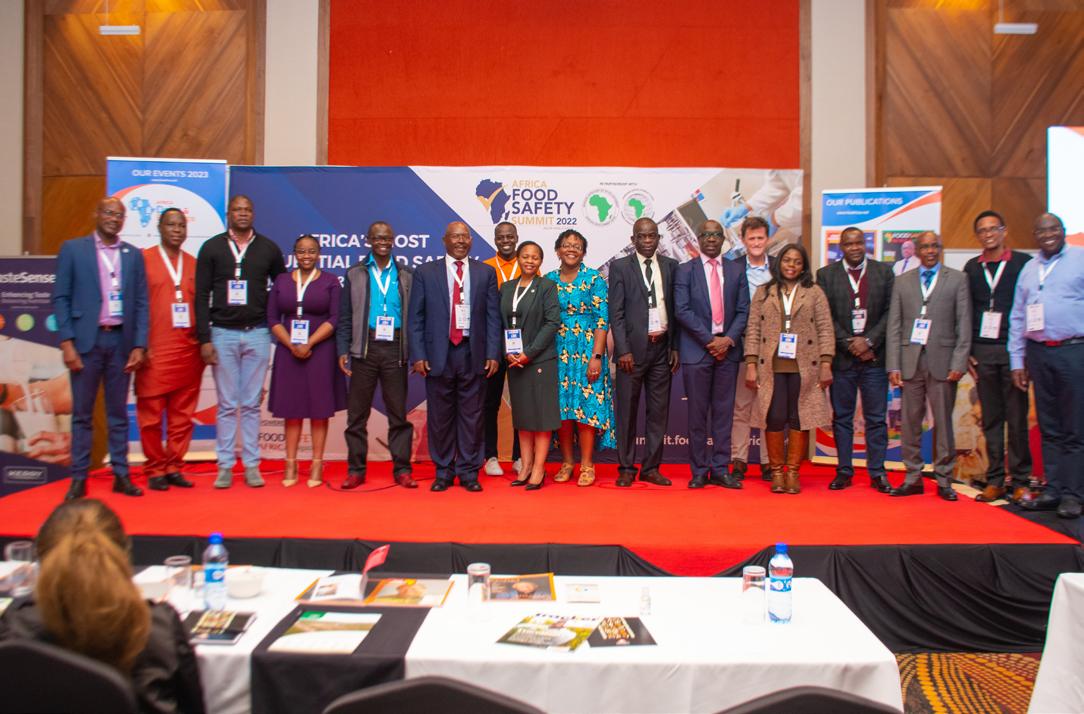

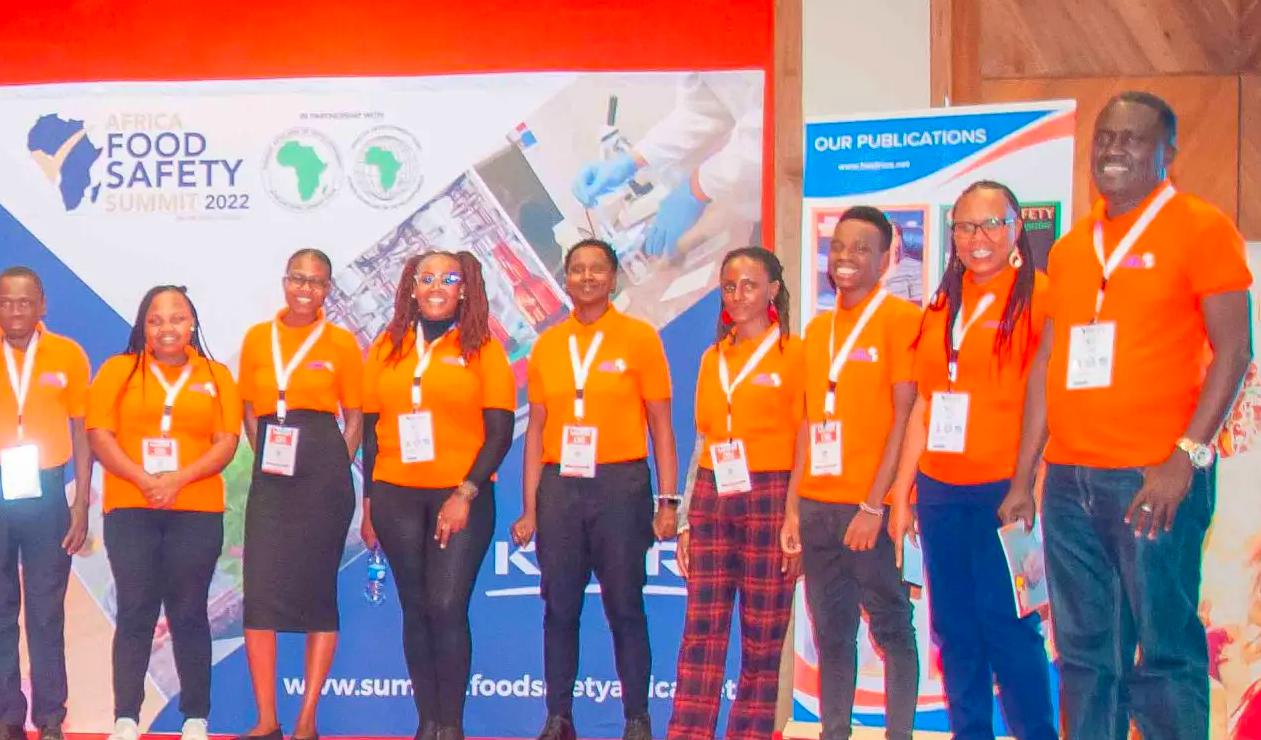
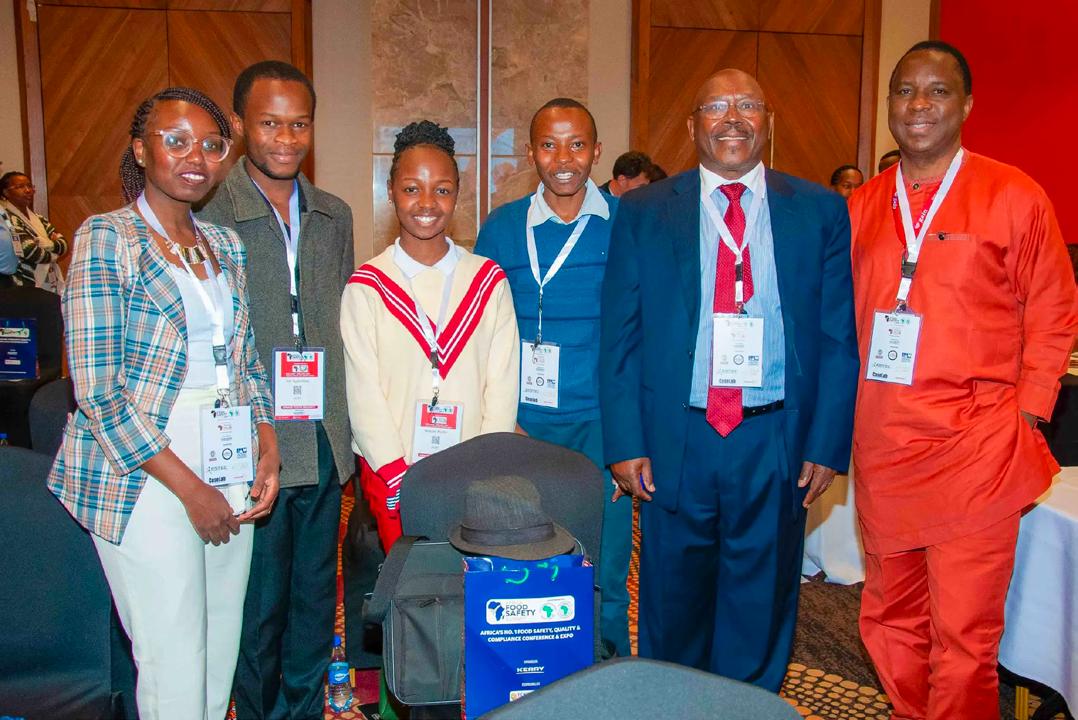
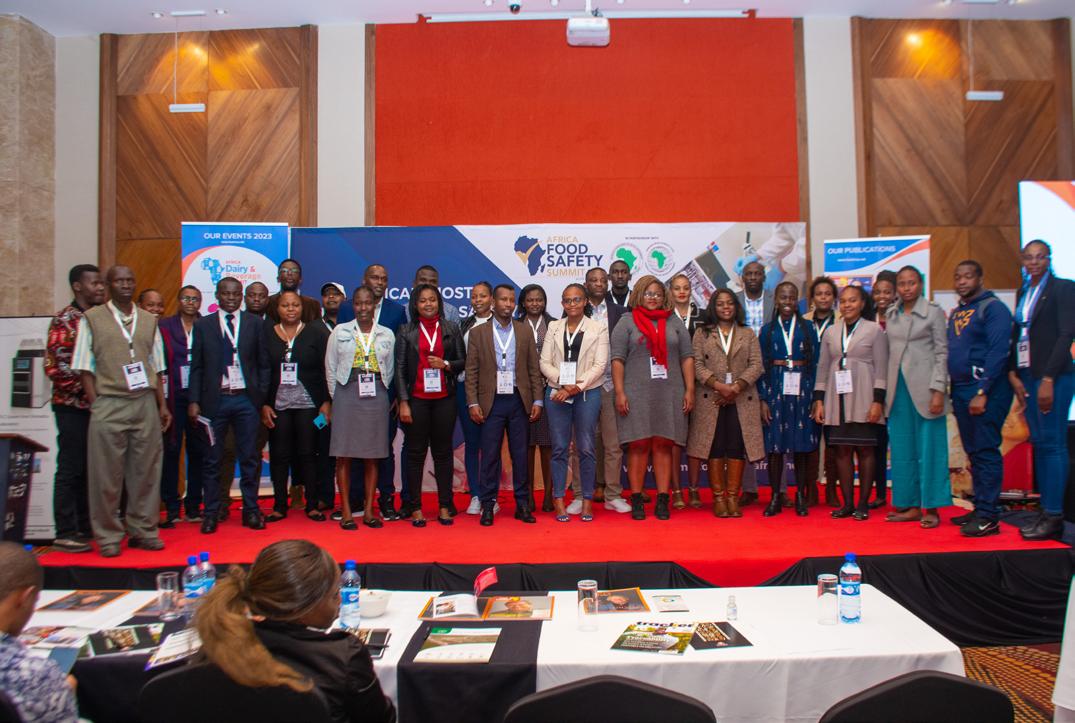
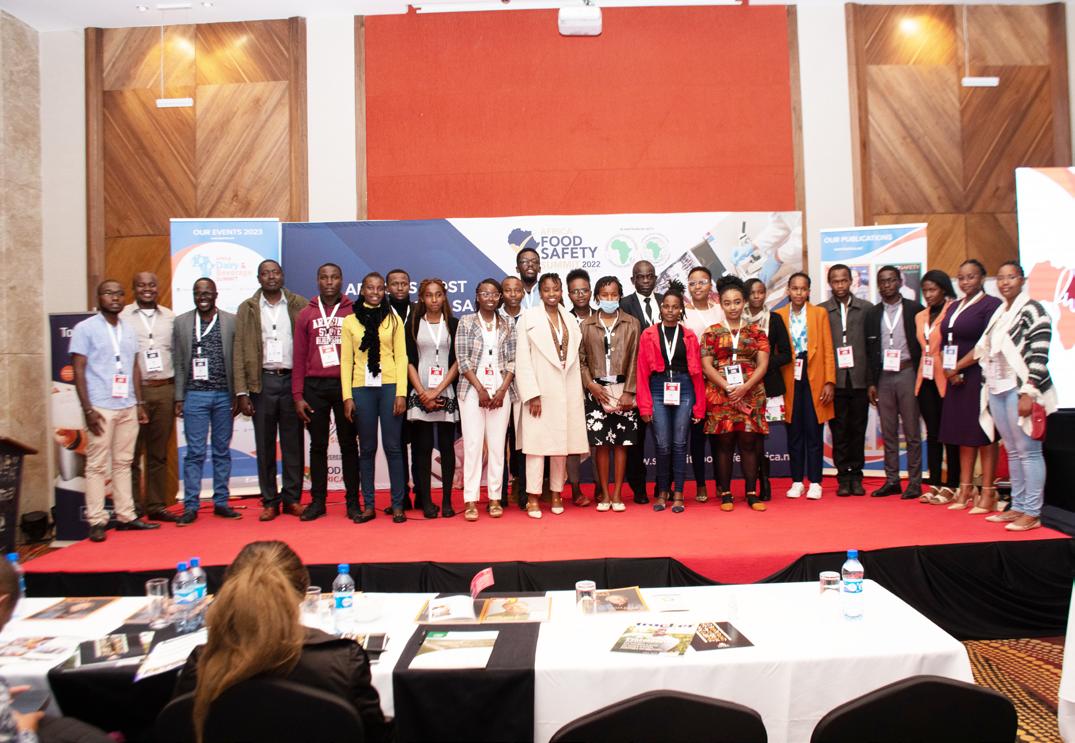
FOODSAFETYAFRICA.NET OCTOBER 2022 | FOOD SAFETY AFRICA MAGAZINE 47
Photo session during the final day of the Summit
Group photo at the AFSS 2022
Group photo at the AFSS 2022
The youths were all smiles as they captioned the moment with some industry veterans
What better way to ensure a return ticket to the moment otherwise gone than with a snapshot of all the delegates
DAMIAN ONYEMA IHEDIOHA PhD - Division Manager, Agribusiness Division, African Development Bank Group

DAMIAN IHEDIOHA, SPEAKS ON THE AFDB’S ROLE IN DRIVING THE FOOD SAFETY AGENDA IN AFRICA
The African Development Bank, the silent partner driving the
food safety agenda across Africa
 By Catherine Odhiambo
By Catherine Odhiambo
The Africa Food Safety Summit 2022 was held in partnership with the African Development Bank (AfDB). When you first hear of AfDB, you might wonder what’s the relation between a bank, especially one known for funding large infrastructure projects, and a Food Safety Summit. In his keynote speech, Damian Ihedioha, PhD - Division Manager and Agribusiness Division at African Development Bank Group, revealed in detail why the Bank chose to be part of the summit and its role in promoting food safety across the continent.
“Our desire to participate in this Summit was predicated on the key fact that we want you to know that we are what we eat. Feeding Africa is beyond production of food but making sure that the foods guarantee good health and boost the incomes of producers and processors. The way the eyes of most participants are shining is a testament that most of you are fed on nutritious, quality, and safe foods. It was for this reason that the Bank supported the organization of this Summit.
SAFE AND NUTRITIOUS FOOD IS THE FOUNDATION FOR GOOD HEALTH
Indeed, nothing is more important to the long-term well-being of the African people than the success of its food systems. Abundance of a variety of safe and nutritious food is the foundation for good health and cognitive development. At every stage of the food production life cycle; from preparation, to handling
and to storage; from farm to factory and to fork, consumers must pay great attention to compliance to food safety standards, in our collective mission to achieve food security and eliminate malnutrition in Africa. The World Health Organization (WHO) states that food safety, nutrition and food security are inextricably linked.
As you are aware the African continent is the most affected by hunger and malnutrition with about one fifth of its population undernourished and 283 million people go to bed hungry. The extent of the undernutrition gap makes the Bank’s Feed Africa goals daunting to achieve without significant investments by the Bank and its partners. By
focusing on domestic food safety more deliberately, countries can strengthen the competitiveness of their farmers and food industry and develop their human capital. After all, safe food is essential to fuel a heathy, educated and resilient workforce.
With the African Continental Free Trade Area (AfCFTA) agreement, intraAfrican food demand is projected to increase by 178% by 2050, therefore, it is crucial to create and implement effective food safety systems which guarantee that food producers and suppliers along the supply chain work responsibly and ensure the safety of food. There is also low level of investment and compliance with international standards, thus
FOODSAFETYAFRICA.NET OCTOBER 2022 | FOOD SAFETY AFRICA MAGAZINE 49
OPINION | Damian Ihedioha
weak monitoring and enforcement of these regulations by government or authorities.
The cost of compliance is high especially for small holder farmers, it is our duty as agriculture and food security stakeholders to look for innovative ways of supporting small holder farmers who are the major food producers in Africa to comply to food safety standards. While we acknowledge the need for African agriculture to undergo a systemic transformation to meet rising food demands, doing this without addressing the public health burden of foodborne illness will be counterproductive.
SUPPORTING FOOD SAFETY EFFORTS ACROSS THE CONTINENT

The Bank’s Feed Africa Strategy acknowledges “improving food safety to boost trade and public health as an enabler for achieving agricultural transformation in Africa.” As a result, the Bank has taken bold steps to support our regional member countries (RMCs) to prioritize, design and implement development projects that have implications for food safety and standards.
Similarly, the Bank has supported institutions of government that are charged with these responsibilities. Indicative mentions include support to Bureau of Standards across Africa. The Bank
a knowledge product entitled ‘‘Food Safety in Africa: Past Endeavors and Future Directions’ Report’ in partnership with the World Bank and other institutions
During the launch of The Global Food Safety Partnership (GFSP) hosted by the World bank in collaboration with the AfDB, the Bank engaged in a very fruitful discussion with partners willing to co-finance on capacity building initiatives to address the food safety concern in Africa. The proposal was developed in partnership with the Association of Official Agricultural Chemists (AOAC), the International Food Safety Training Laboratory (IFSTL) of Université Laval and the African Union Commission (AUC). This training is most needed now that food safety concerns are big issues; moreover, the capacity of national institutions to regulate their food systems and the mushrooming SMEs is limited in scope and experience. This training will bring the added value of helping the national systems and helping the SMEs to comply with these standards.
is prioritizing the support and instrumentation of the Bureaus of Standards across the RMCs. We also support them to equip these laboratories to meet international standards for exports. In collaboration with UNIDO, we support with the accreditation of these laboratories to meet local and international standards and regulation.
At the continental level, the Bank is partnering with the African Union (AU) to set-up continental and regional reference laboratories for export promotion and import substitution. [We have also supported] the publication of
Milk collection centers are veritable platforms to collect milk from itinerant herders that move around to pasture their livestock. It is critical to have milk collection centers in specified areas around the cattle routes, for the purpose of collecting milk. Collection centers have been equipped with scold storage facilities, sanitary measures/facilities, supported with generators, for areas, where the national grid cannot reach. Milk must be evacuated within 4 days of such cold storage (usually in facilities with 40C or lower temperature) to avoid the spoilage of milk. Cold van transportation system is also critical in evacuating and transporting milk to bulk processing
OCTOBER 2022 | FOOD SAFETY AFRICA MAGAZINE FOODSAFETYAFRICA.NET 50
DURING THE LAUNCH OF THE GLOBAL FOOD SAFETY PARTNERSHIP (GFSP), THE BANK ENGAGED IN A VERY FRUITFUL DISCUSSION WITH PARTNERS WILLING TO CO-FINANCE ON CAPACITY BUILDING INITIATIVES TO ADDRESS THE FOOD SAFETY CONCERN IN AFRICA.
OPINION | Damian Ihedioha
facilities. Such transportation systems must be meant to deliver on specified times and routes for the effective functioning of the collection centers. Testing facilities to detect and assess the quality of milk which has implication for health, marketing, and pricing. The milk collection centers, and the transport facilities have testing facilities to at least know the milk-to-water ratio, the relative density of milk and the free fatty acid (FFA) in the milk. These physico-chemical properties of milk have implication on the marketability of the milk and public health concerns of the consumers.
The Bank provided a funding allowing the African Regional Organization for Standardization (ARSO) to implement “Harmonization of African Standards for Agriculture and Food Products” project. The project was aimed at removing the Technical Barriers to Trade (TBT) and establishing a harmonized standard for all African countries to promote intraAfrican trade. The project harmonized 50 product standards and 10 Good Agricultural Practices available in English and French. The Bank through
its Trade Division continues its support to ARSO and recently financed the project: Harmonization and Certification of African Standards for Dairy, Horticulture, Fisheries and Aquaculture Products, in partnership with ARSO. The overall objective of the project is capacity building for standardization institutions to train Micro, Small and Medium Enterprises on harmonized standards and certification on the dairy, horticultural, fisheries and aquaculture products to support increased market access under the AfCFTA
The Bank is supporting the project “Strengthening Food Safety Standards for Improved Competitiveness of SMEs in the Sahel Project in Burkina Faso, Niger and Senegal”. The project is a multi-stakeholder partnership led by relevant stakeholders to catalyse additional resources and expertise from the Bank’s development partners. It will be implemented by the Food and Agriculture Organization of the United Nations (FAO) in collaboration with G5 Sahel and the Economic Community of West Africa States (ECOWAS). Under the Fund for African Private Sector Assistance (FAPA), the Bank is working on the project: Capacity Building for Food Safety, Quality and Standardization in East Africa Economic Communities (EAC) for Public Health Safety and Trade Promotion. This project aims
KEY NUMBERS
50
NUMBER OF PRODUCT STANDARDS HARMONIZED
BY ARSO
to implement a pilot that will serve as starting point for a long-term scalable and sustainable program of food safety capacity building over sub-Saharan Africa, to improve laboratory food safety testing capabilities and thereby food safety systems in participating countries.




The Bank is also an active member of the Sanitary and Phytosanitary (SPS) Coordination Forum set up under the leadership of the AUC which is a platform to strengthen the coordination and complementarity of the various intervention in supporting African Countries in the SPS area.
REINFORCING FOOD SAFETY CONTROL SYSTEMS TO SPUR GROWTH
With an expanding world economy, liberalization of food trade, growing consumer demand and developments
FOODSAFETYAFRICA.NET OCTOBER 2022 | FOOD SAFETY AFRICA MAGAZINE 51
in food science and technology, international trade in food is increasing rapidly. This calls for the deployment of appropriate production technologies and other value addition processes to ensure that agri-food products for domestic and international markets meet the required quality, environment, health, and safety standards.
As Africa is poised to become the World’s largest trading bloc following the launch of the AfCFTA on 1 January 2021, it presents an opportunity to ensure the removal of unnecessary barriers that impede regional and international agricultural trade and particularly cross border trade in food products. These barriers to trade often push traders (especially crossborder traders, most of whom are women and youth) to use informal channels, increasing the time and cost associated with trade, and affecting the rejection rates of goods at entry points in both domestic and export markets. Higher volumes of intraAfrican trade in agri-food products and the elimination of nontariff barriers have the potential to boost industrialization and enhance competitiveness, create sustainable jobs, incomes and livelihoods and improve long-term agricultural productivity and food security on the continent.
The availability of adequate cold storage capacity to enhance quality of products is therefore critical for the agribusiness development in Africa, especially for women and youth led enterprises. Efficient cold system will reduce food losses and facilitate access to lucrative regional and international markets.
PARTNERSHIP WITH PRIVATE SECTOR
The need to provide support and build capacity of agri-food SMEs that handle 80 percent of food consumption and 96 percent of domestic supply chains are imperative to provide technical support in the design of the cold storage capacity and training on the maintenance. These SMEs are fully and actively involved in the different phases of the project, including cofinancing some activities. Hence collaboration with private companies specialized in the development of affordable
and adapted cold storage capacity in developing countries is critical. The project will use innovative approaches and cold generation components such as solar energy to design green and environment sensitive cold storage system.
This means that investing in foundational knowledge, human resources and infrastructure, realizing synergies among investments in food safety, human health, and environmental protection; and using public investment to leverage private investment is crucial for food safety interventions. The shift in approaches from using interest in food safety to promote agricultural trade, but more to raise and promote public health concerns of the population.
Following the launch of ‘Food Safety in Africa: Past Endeavors and Future Directions’ published by the Global Food Safety Partnership of the World Bank and the African Development Bank on 11 February 2019, and the clarion call from participating countries from Africa on the need
for capacity building to their national systems, this proposal becomes most cogent. Similarly, enhancing the capacities of these countries to regulate food safety issues among small and medium scale enterprises (SMEs) for food safety and trade promotion becomes more compelling.
CONCLUSION
Finally, although the safety of food is a classic public good, governments cannot and do not have the primary responsibility for safe food, rather it needs to become a shared responsibility between the public, private sector, and citizens.
Food safety is never done, when you’ve built the system; you need to evaluate, monitor and look for opportunities for improvement and it is by improving that you build that trust across the market segments. The African Development Bank is committed to supporting key activities emanating as next steps from this summit to secure our food systems. Together, we can change the landscape of food safety and security in Africa. Let us make food safety a reality in Africa.”

OCTOBER 2022 | FOOD SAFETY AFRICA MAGAZINE FOODSAFETYAFRICA.NET 52
OPINION |
FSA
FOOD SAFETY IS NEVER DONE, WHEN YOU’VE BUILT THE SYSTEM; YOU NEED TO EVALUATE, MONITOR AND LOOK FOR OPPORTUNITIES FOR IMPROVEMENT AND IT IS BY IMPROVING THAT YOU BUILD THAT TRUST ACROSS THE MARKET SEGMENTS.
Damian Ihedioha

FOODSAFETYAFRICA.NET OCTOBER 2022 | FOOD SAFETY AFRICA MAGAZINE 53 Meet & Network with the leading manufacturers and distributors of ingredients technologies from across the World at the Food Ingredients Africa Expo. Discover the latest market trends for your next new products innovation project. WWW.AFMASS.COM A SPECIAL PAVILLION AT: WWW.AFMASS.COM Food Colours & Flavours • Enzymes and Flour Improvers • Sugar, Fat & Salt Replacers • Emulsifiers & Antioxidants • Vitamins, Minerals & Supplements • Thickeners, Stabilisers, Humectants & Gums • Specialty Starches, Proteins & Oils • Sweeteners & Acidulants • Herbs & Spices • Antioxidants & Preservatives • Flavour Enhancers • PLUS MANY MORE . . . . MARCH 30 - APRIL 1, 2023 SARIT EXPO CENTRE, NAIROBI, KENYA FOOD Afmass EXPO The Future of Food in Africa FOOD EXPO INGREDIENTS AFRICA

SIMPLIFINE FOODS PRESIDENT STEVEN CARLYON ON HOW TO BUILD A SAFE, RELIABLE AND EFFICIENT FOOD SUPPLY CHAIN
EXECUTIVE Interviews
Francis: Stephen is a leader in the industry and what we’d want to bring to the fore is the role of the leader of the business is as important as the person who is enumerating the bacteria in the plate. You can enumerate the bacteria and say we are above the limits, but Steven has the final say. So Steven you are here because we’d want to know more about you and your business and how someone like you is important to this food safety agenda. So please introduce yourself.
STEVEN: Thank you, Francis. My name is Steven Carlyon. I'm fortunate to have the job title ‘President of SimpliFine’, which is a 15-monthold business. We’re part of a bigger organization called Black Ivy Group – a Washington-based business that talks about sustainability and making a long-term difference in people's lives, the farming industry, and creating permanent change.
We acquired three businesses in the space of six months last year in the space of French fries processing, meat processing and the last one was a bakery called the Ennsvalley bakery. In the space of six months, we've now got 250 employees, we're growing in size every four months.
FRANCIS: You’ve talked about the Black Ivy Group, animal feed, bakery, and French fries. I would want us to focus on the French fries (potatoes). You’re coming to a sector that has been largely local. What are some of the challenges that you see in terms of streamlining the sourcing and quality of potatoes in this country? What is the bigger picture?
STEVEN: In terms of the challenges that we’ve faced, it’s finding partners. When we started this journey a year ago with the French fries business, we were pretty much alone. We were acquiring products off the market, it was the wrong type of potato as well, a shiny variety that is not ideal for processing. And ultimately the whole supply
chain needed to change. We started the journey, we started to run into like-minded partners. We wanted to make a change and it was only when we started to join these partners together, that we started to make a difference. The industry here is full of opportunity and I think the potato industry is allowed to go through a revolution. I think we’re very proud to be part of it this time, in this place where these partners are coming together. We’re looking at nutritionists, farmers themselves, and more importantly as well, the finance sector.
Thus to transform the supply chain around what we need, we need to develop a supply chain for the marquis potato which is not a popular potato here in Kenya. It’s harder to grow and more expensive. The input costs are more expensive than Shangi. It’s been a long journey of convincing farmers and suppliers to convert the fields into marquis which has a longer growing cycle of four months against Shangi’s three months. In terms of processing the French fries, we needed the marquis variety, so at any one time probably going into August-September we’ll have around 150 acres of marquis growing under contract for us. As you see this is a small beginning. Companies I started my career in a long time ago produced 800 tons of French fries per day. So you can imagine you’re into potatoes and you’re consuming 60 tons an hour (convert that to French fries). Here I’m looking at 15 tons a month.
We're on a journey back to that.
FRANCIS: What is the market requirement in terms of safety and quality and how are you trying to get that while doing business?
STEVEN: Walking back from the consumers' points of view, what’s in food needs to be safe and if not handled properly it can do us harm. I’m sure all of us must have suffered the consequences of something that went wrong somewhere in the supply chain. So from the consumer who can’t see what they’re expecting in terms of food safety,
By Catherine Odhiambo
FOODSAFETYAFRICA.NET OCTOBER 2022 | FOOD SAFETY AFRICA MAGAZINE 55
INTERVIEWS WITH SOME OF THE FOOD SAFETY & QUALITY CHAMPIONS IN AFRICA AND BEYOND
WE ACQUIRED THREE BUSINESSES IN THE SPACE OF SIX MONTHS LAST YEAR IN THE SPACE OF FRENCH FRIES PROCESSING, MEAT PROCESSING AND THE LAST ONE WAS A BAKERY CALLED THE ENNSVALLEY BAKERY.
STEVEN CARLYON (CENTRE), PRESIDENT OF SIMPLIFINE FOODS, WITH TWO STAFF MEMBERS.

the product should be heat treated properly, and at least be within its shelf life. We talked about extending the shelf life, freezing is one of those solutions in which we've invested heavily. Our sister company Big Cold has invested heavily in distribution vehicles. We’ve also installed GPRS trackers in our vehicles, to enable us to keep tabs throughout the whole supply chain from our facility in Naivasha through to Big Cold and then to the stores. The temperature is maintained at -180 Celsius. So that's critical as well.
And then we start to work backward in terms of quality. Quality for me as an engineer means that we also have to consider the inputs. Although quality is an over-fruit for us within SimpliFine, quality is also routinely measured in the different departments. We consider quality in training and selection of our employees and protection as well whenever the process is going wrong. This is about precision. When we talk about the evolution of the industry. farms need to bridge the gap and become certified at some point to meet the global Quick Service Restaurants (QSRs) expectations.
So this is a journey that this whole industry is about to go on. We’ve seen potatoes being supplied in gunny bags making the potatoes strain. We’ve just acquired enough priority of packaging so we need to ensure that we eliminate that from the process because there is always a sub-minimal risk in developing a product nobody wants to put on their plate. By investing and educating the farmers to move away from gunny bags, eventually, we will have what the rest of the world has. Lastly is to get the potatoes out in the ground, safely and efficiently without having
trucks stuck in the rain.
FRANCIS: How many cheques have you signed and how tough has it been on that journey to transforming the mind of the value chain so that as a leader you can go to bed knowing that my truck that has gone to KFC will be accepted?
STEVEN: I don't write cheques but I do bend the ears of investors. And so this has been quite a journey and always continues to be a journey with the folks on the other end of the line in Washington. You know this was a journey that was built on trust, a journey that's still evolving that all parties need to be playing a part in. I think there’s confidence in the states where the money is going. We’re about half a million dollars invested.
We've invested heavily in this knowing that by being East Africa’s leader in French fries processing, we'll be able to service not just the consumer with locally sourced potatoes but also the farmers and employees.
FRANCIS: You know, I'm not used to buying potatoes in the supermarket. It's just something that Kenyans are not much used to. You go to the nearest market and you get your nice dirty-looking potatoes and that’s what we know. How do you intend to continuously work around changing the supply chain, over time so that that food safety culture starts from the ground?
STEVEN: So going back to the consumer's preferences, I think in the modern world we’ve got less time. Kerry exists because of convenience, and SimpliFine is there as well. Nobody goes to McDonald’s and makes their own sauce, it’s there,
OCTOBER 2022 | FOOD SAFETY AFRICA MAGAZINE FOODSAFETYAFRICA.NET 56
EXECUTIVE INTERVIEW| Steven
Carlyon
and it’s delivered. Unfortunately, the way we’re evolving, we’re spending more time working and less time being able to socialize or even cook for ourselves. So there’s an evolving change here; one of convenience foods. We’re very well positioned within SimpliFine to use all of the resources available with quality meat, potatoes, and also the bakery unit, to combine some convenience. In the second half of this year, we’re going to invest in convenience meals.
In terms of the whole supply chain, there should be no compromise in this country, there’s no compromise in New Zealand, Dubai, and where I’m from. Kenyans have accepted compromise and that shouldn’t be the case because your lives are just as important as any other lives. The fact is that food culture is at risk, when handled properly it’s not a risk. But when mishandled these players have to be removed from the field, whether you’re shipping a product that is perishable on a truck that is belching diesel out into the atmosphere, that’s a risk. You see a motorbike with the produce on the back of it, that’s a risk. So this has to change and people like SimpliFine and BlackIvy will continue to be a part of this change with no compromises on food safety.
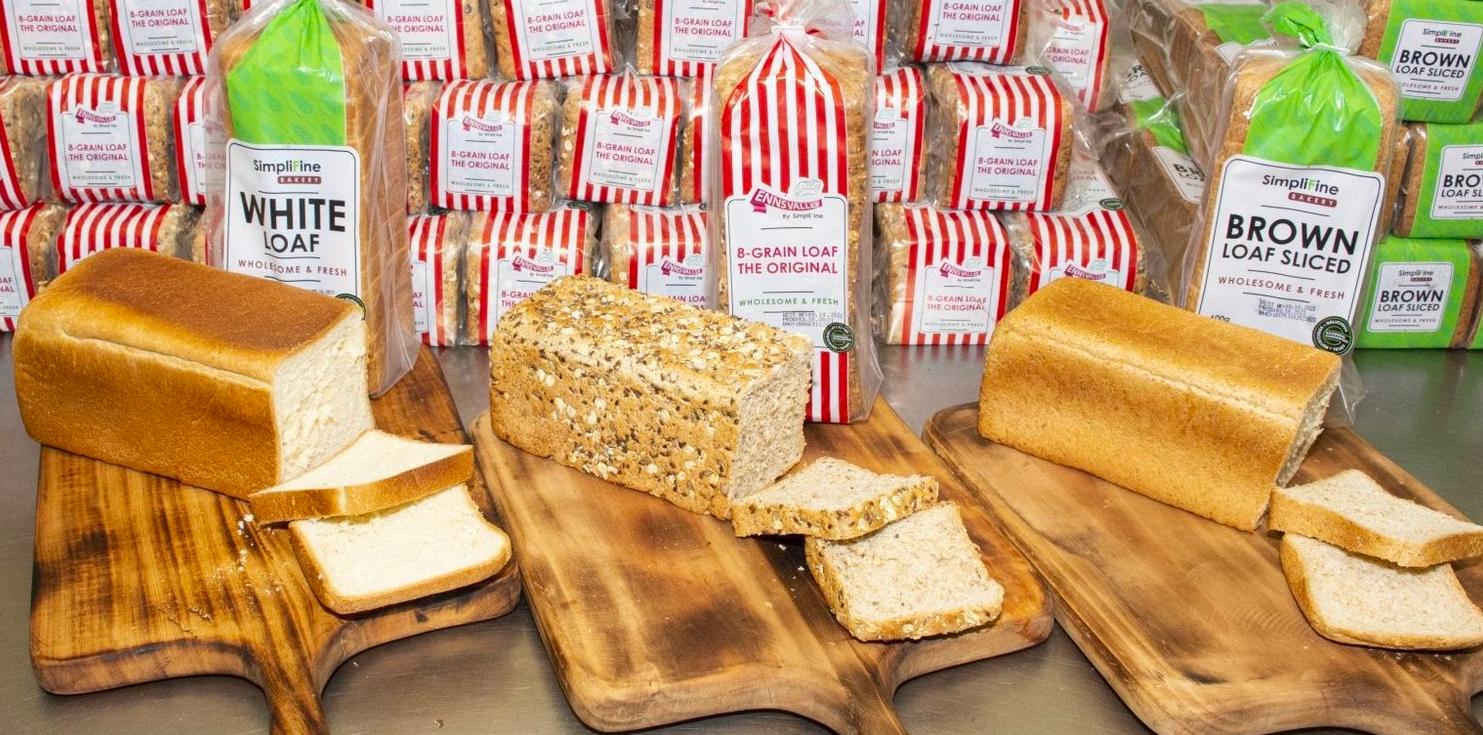
FRANCIS: I guess my last question is what kind of partners are you looking for and what is the future of your business?
STEVEN: I think the most important thing is
to reflect on our values because our values talk about the type of people that we aspire to be. One of those values is imagination, people who can think of the bigger picture, people who can aspire to be something that currently this country and this industry are not. And then we’re going about relentlessness and about not giving up and finding partners that can help change the whole infrastructure and supply chain in this country so that the consumer here has got a good choice of safe quality food and it’s there all the time. Then you start going about forthrightness, forthrightness to us as a business is that when you screw up you handle it better, you don’t try to hide away from it quickly and then try to fix the issue.
So as probably the most forthright person in the business, that’s one of the attributes we welcome, and it's about having that common language, a partnership that says, “you know, let’s see where the journey ends”. Thus we’ve identified some key partners now, we’ve even financed their businesses as well…because we’re offering 18-month contracts to farmers. You know if they can see that we’ve got favorable payment plans, it’s very easy for them to go to the bank and say, “look we’ve got an 8-month contract with an off-date schedule with SimpliFine.” That enables them to get financing to buy the seeds and all the fertilizers to prune the plants effectively. That’s what we’re looking for, so it’s about partnership and trust.
FSA
FOODSAFETYAFRICA.NET OCTOBER 2022 | FOOD SAFETY AFRICA MAGAZINE 57
IN TERMS OF THE WHOLE SUPPLY CHAIN, THERE SHOULD BE NO COMPROMISE IN THIS COUNTRY, THERE’S NO COMPROMISE IN NEW ZEALAND, DUBAI, AND WHERE I’M FROM. KENYANS HAVE ACCEPTED COMPROMISE AND THAT SHOULDN’T BE THE CASE.
GETTING QUALITY FROM THE WORD GO
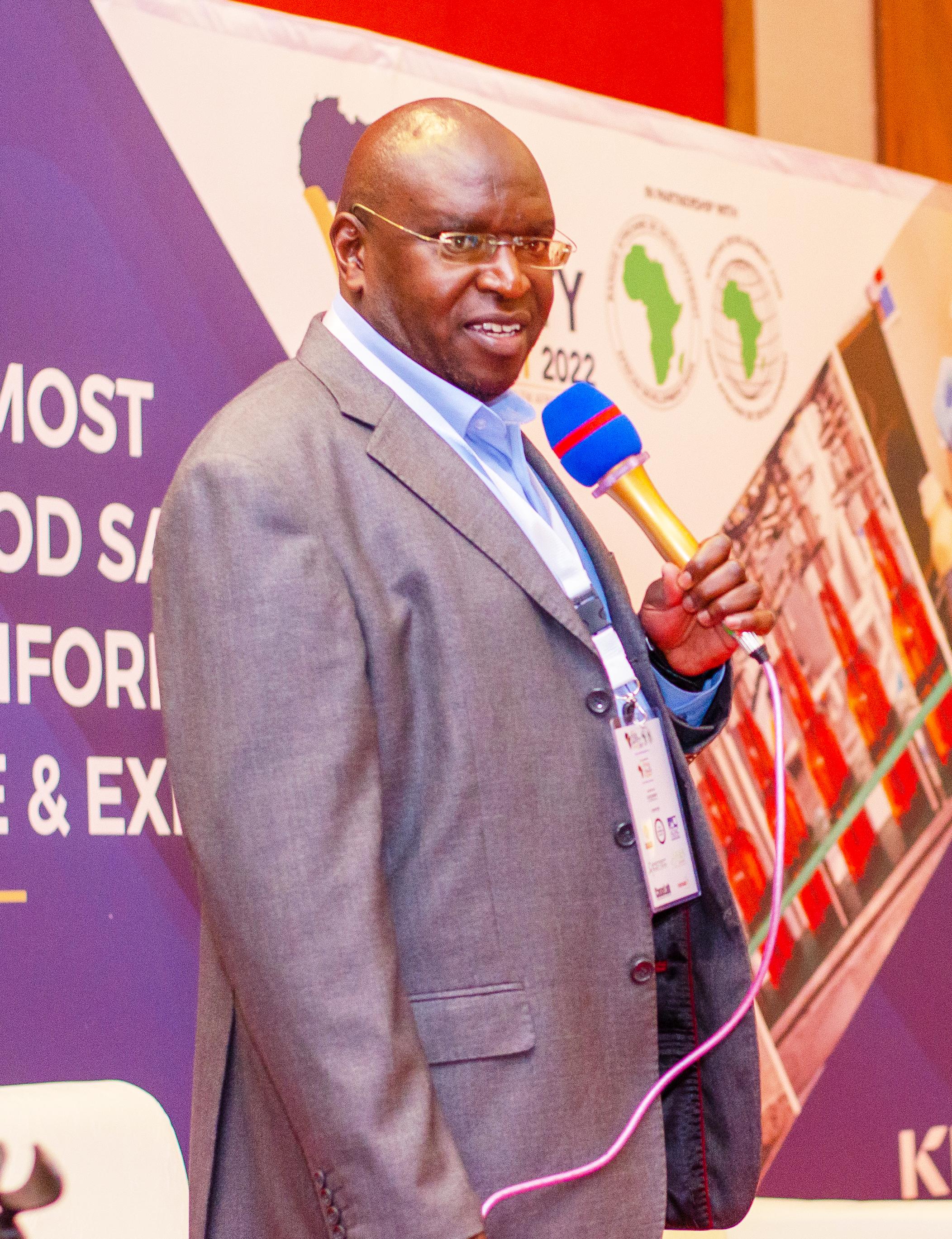 An interview with Laban Kabiru, Manufacturing and Logistics Director at Bio Food Products Ltd
An interview with Laban Kabiru, Manufacturing and Logistics Director at Bio Food Products Ltd
Francis: As we continue on this digitalization and supply chain transformation journey, we kind of thought, let's get someone whom every day worries about where the truck is, if the milk will reach on time, and if by that time the pH will still be okay, the acidity will be right and if the laboratory will say that that milk has to be put in the tray. So introduce yourself.
LABAN: My name is Laban Kabiru. I work with Bio Food Products Ltd, I’m a Food Scientist by training many years ago. So I've been in the industry and worked with several businesses including Unilever, Mars, etc. Bio Food Products Ltd is a company in the dairy sector and I'm sure most of you probably know it. I had hoped I would speak when the room is still full because I literally wished to convert every person present here to take Bio yoghurt and Bio milk. And the reason is that they're the only safest, healthiest, and best-tasting products in Africa, not in Kenya in Africa. And I say safest, which means if you want aflatoxin-free milk, yoghurt, and butter, we guarantee that. I don't think there's anyone else who can guarantee that. If you want antibioticfree dairy products, we guarantee that and this is because we control the whole process all the way from the farm. I think the model is very close to what I have heard from Kwik Basket. So, we work only with contracted farmers whom we train on hygiene and we test the total plate count (TPC) of milk before we process it.
We actually pay our farmers based on the quality they deliver. So they know if you deliver TPC below this level this is the amount you get, you get an additional two bob. If you have a low level of aflatoxin, you get this bonus, etc. If the cooler is at the expected temperature, you get this bonus, what we term a 'quality-based bonus', and that helps us to get quality from the word go.
If you start with a raw material of bad quality and you have very good processing, irrespective of what controls you have, you can't change the poor quality into good quality, it will be compromised. So we control our whole end of the chain and that's how we are able to assure you of the cleanest, healthiest, and best products. Our fresh milk, for example, has a shelf life of 16 days when refrigerated as opposed to other brands which last 3 days. So that's how you know getting very clean milk from the farm, maintaining a cold chain in the whole process, having very good hygiene levels during processing, and controlling
the cold chain all the way to delivery helps to keep the quality that high with zero preservatives.
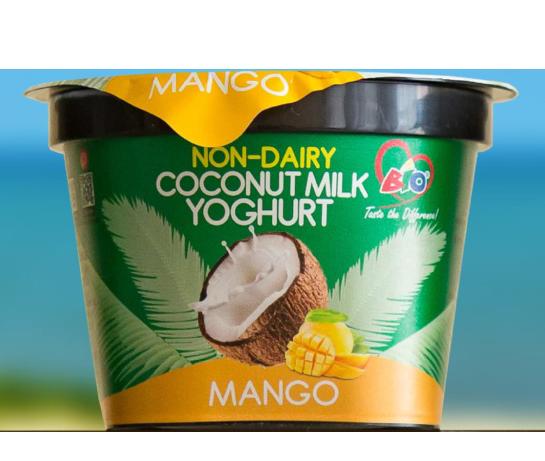




FRANCIS: Now, Laban, when we started, I talked about COVID. And just when we’re getting used to it, Russia and Ukraine war came. So we’ve faced lots of disruptions, maybe if you could just put it into perspective, how far has that affected your operations to find good quantity and good quality milk?

LABAN: It's been very rough since 2020, and I know it's not just about the food industry, it's everyone. Businesses suffered, demand went down because, you know, outlets were closed, we had the shutdown. And you can imagine you're having a business, which deals with perishable products, like fresh milk. And cows don't care whether there's COVID or not, and you have contracted farmers. So if you're expected to get 50,000 litres of milk, whether you are selling or not, that milk will still come. If you cancel the contract, then what does the farmer do? So COVID really disrupted the business, it disrupted how we operate and, you know, when it was just looking like it's going to recover, then we landed at Russia, Ukraine war. With that now, we're just trying to recover and the impact has been manifold.
One is the demands. It’s just this year that we started going back to the pre-COVID demand volumes, so the demand went down. So you can imagine you have done your three- or five-year strategy of where you want your business to go, and then all of a sudden, your strategy goes
By Catherine Odhiambo
SOME OF THE COMPANY'S PRODUCTS
FOODSAFETYAFRICA.NET OCTOBER 2022 | FOOD SAFETY AFRICA MAGAZINE 59
EXECUTIVE INTERVIEW| Laban Kabiru
to zero. So I think one of the learnings that we have picked there is businesses need to be very versatile. We need to be very flexible, we can no longer operate with the three- or five-year strategy. You have to be able to be flexible enough to know exactly if this is not working, then what is working.
I’m sure that during the last three years a lot of businesses even here in Kenya closed shop. The difference between those who have closed shop and those who have thrived is basically how each of the businesses managed to manage their supply chain. How agile was a supply chain, for example, if you're buying a certain ingredient from Russia, and now you can't import from Russia, then what happens? So you only have two options. One is that you stop producing that product. And if it's the main product for you, then you close shop or two, you have to think out of the box and say, ‘is there an alternative supplier? Is there an alternative ingredient that can deliver almost similar performance? And then you move to that.
FRANCIS: Have you been forced in any way to change suppliers, go down on your requirements in some cases like packaging, oils coming from outside? Have you had to change things in that kind of aspect?
LABAN: So we used to buy some packaging materials from Russia, for example. And just before last year's war, we were also looking internally because the cost of fuel has gone up,
fuel is a big cost for our business. Our profitability went down, so we started saying, can we localize some of the packagings, for example? Just three months after going local, the Russia-Ukraine war started. If we hadn’t made that decision it means we would have run out of packaging. And for you to change some of these packagings to buy molds, takes like three, four months. So that means we would have been out of the market in very key products.
I think we have looked at it from alternative suppliers, not just from a supplier perspective, but even regionally, and geographically. If you're just buying all your things from Germany, for example, if something happens, then what do you do? For people who are also using imports, for example, shipping times changed. If you used to import something that used to take one month to get to Kenya, from Europe, we realized at some point it was taking three, or four months, hence your current stock-keeping target no longer now holds water. So you have to have more working capital and you have to really have very robust planning, because otherwise if you plan for one month you run out.
FRANCIS: If you look at the whole supply chain, of course, we had closures, some farmers could not deliver milk. Are there some changes you’ve had to make in terms of the supply chain to assure quality, either coming into your factory or going into the market?
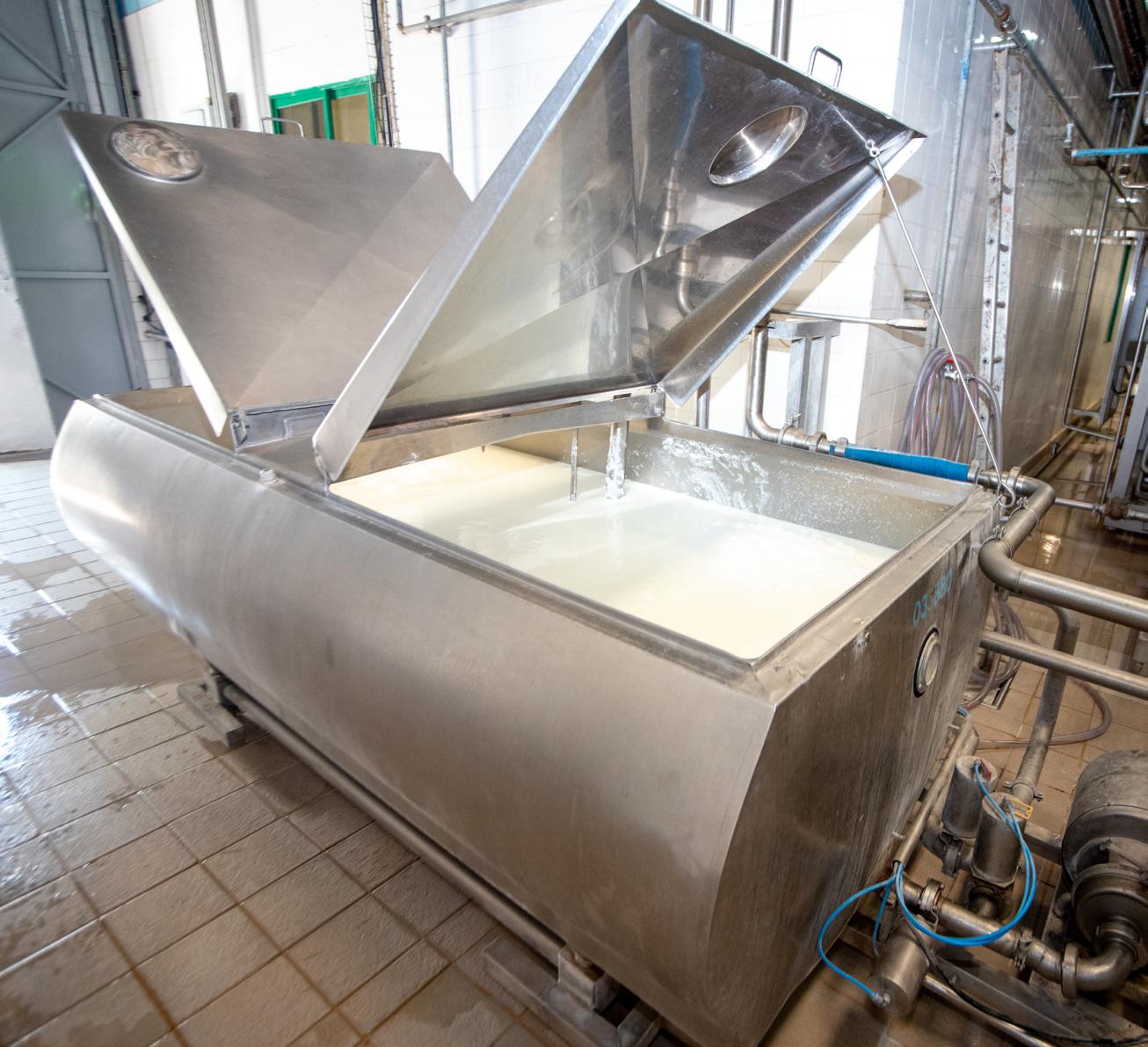
LABAN: Yes, yes, we had to do that. So as I mentioned, one is to assure quality and food safety, which is the backbone of our business. And two is to do that at an efficient level because the cost is going up so you have to really reduce your cost. And remember, we are in times where for example, we don't have maize, I mean unga now is being subsidized to 200 shillings, that doesn't just affect Unga, it affects the cost of feeds. Some of these feeds also have aflatoxins and I've already just given you a guarantee that we offer toxinfree products, with very, very minimal levels of aflatoxins. That tells you that our farmers had very big challenges, they couldn't make business. So we had to offer the farmers a higher buying price for them to keep delivering this quality. Internally, we have to look at how to get more efficient and remove waste, which is something that we are still going through. Look internally, do you have an optimized headcount, do you have losses, how efficient is your factory, etc?
For quality in logistics and supply chain, we had to invest in trackers for the vehicles, and sensors for temperatures. So when a vehicle
OCTOBER 2022 | FOOD SAFETY AFRICA MAGAZINE FOODSAFETYAFRICA.NET 60
WITH THE DISRUPTIONS IN THE SUPPLY CHAIN, WE HAD TO OFFER FARMERS A HIGHER BUYING PRICE FOR THEM TO KEEP DELIVERING QUALITY.
EXECUTIVE INTERVIEW| Laban Kabiru
MILK COOLER
goes to the farm, because we're now collecting from more farms to get the same amount of milk, you have to know where the truck is, and the temperature of the milk. When you're doing deliveries now, we are able to know exactly at what point is that vehicle and the temperature of the products across the chain. So we have more robust systems, of course, it means the challenges in COVID have made our supply chain more robust and more efficient. So even beyond the current recession, it means we’ll emerge out of it better, and therefore, the COVID and the RussiaUkraine war become like a blessing, making us see opportunities that we couldn't see before.
FRANCIS: So now Laban, one of the tough things I experienced the few days I was in manufacturing is that you have demand, you have borders, sales guys, flashy, loud characters on your back saying 'we want the product today'. But the fact is either you're not getting enough raw material in, or what is coming in is not meeting your requirements. How tough is that balancing act; a demand that is high, supplies that are low, and also poor quality because of drought?
LABAN: Yeah, its tough. I mean, every business wants to sell, you want to grow. And you can imagine, people want your product, but you don't have it, you don't have enough. So it's a really tough scenario to be in. We have been there. I think the learning we have also picked from there is stronger relationships and partnerships with our suppliers, including the farmers. We work with them, helping them to plan long term rather than short term so that when you have a drought of one season, it doesn't also affect supply. We are now having more robust relationships and we are almost fully back. But I think the silver in the cloud is we are having strong relationships now with our suppliers. Whatever was an assumption before now is no longer an assumption.
We don't use any preservatives to keep the milk fresher for longer, it's just the process. I have my head of Research & Development (R&D) here, she can confirm whether I’m right or wrong. We just ensure that the milk comes fresh. And we don't buy milk from small farmers, because we can’t manage the quality. So we deal with the big farmers who are having like 500 litres a day. So most times than not they’re actually milking using milking machines and not by hand. The milk then goes to the cooler directly, which means there's no handling basically. As such the hygiene level is very high. This milk instantly moves from the cow to a cooler at a temperature of four degrees celcius, so it's clean, and it's cold. It is then


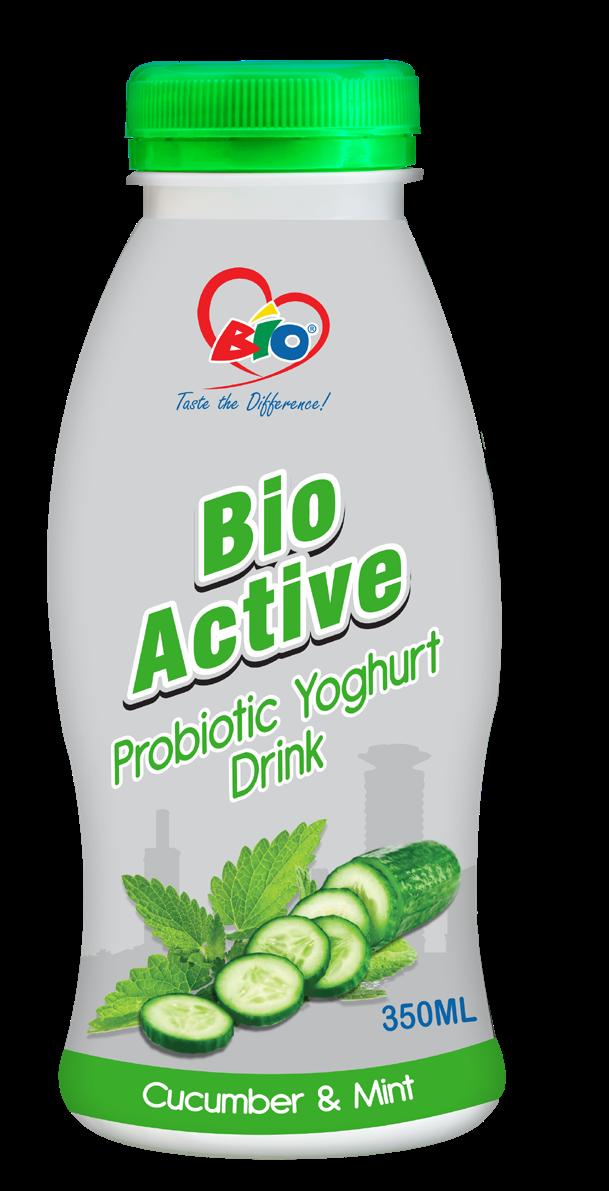
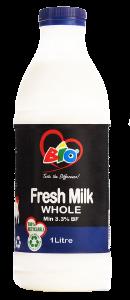
transported in a very insulated vehicle straight to the factory. The process is very stringent. The factory is ISO 22000 certified, and the whole cold chain is not broken all the way up to the outlets. Of course, the processing itself also is a closed system so it's an automatic system. So you’re ensuring that where you have a Critical Control Point (CCP), which is pasteurization temperature, it is achieved. That robust food safety system, the OPRPs, and the hygiene level are on point. Of course, there's the machine packing in a sterile way. And we actually give 16 days but that milk even in 20 days will still be okay.
FRANCIS: Okay, my last question is that of the cold chain. Let’s talk about the portion of the small-scale retailer in terms of maintaining your integrity through the whole supply chain system. Lots of our outlets don’t have cold chain systems. Does that mean that there are instances when you actually don't sell to them? How do you ensure that the final consumer gets a quality product?
LABAN: So for now, we are actually only dealing with modern trade because they have a robust Cold Chain system. So we are not in general trade right now. However, we also have a long-life milk product that does not require refrigeration, and that can actually go to retail without quality issues.
FOODSAFETYAFRICA.NET OCTOBER 2022 | FOOD SAFETY AFRICA MAGAZINE 61
FACTORY IS
CERTIFIED, AND
FSA
THE
ISO 22000
THE WHOLE COLD CHAIN IS NOT BROKEN ALL THE WAY UP TO THE OUTLETS. SOME OF THE COMPANY'S PRODUCTS
Kenya Dairy Board keen on ensuring the safety of milk across the country’s supply
chain: Margaret Kibogy Managing Director,
KDB
By Catherine Odhiambo
They call me the ‘Prefect’ of the dairy sector. It really gives me a lot of pleasure to be here today, to be part of great minds that have come together to discuss issues of food, which are, of course, areas of safety and quality. We look at the areas of milk quality and safety in the dairy sector of Kenya. We are glad that the organizers of this event have again, invited KDB to be part of this agenda.
We take pride in celebrating some of the transformations and developments in the dairy sector toward achieving food security through the provision of quality and safe dairy produce. I’m sure all of us this morning, as we were taking our tea or coffee, you enjoyed the milk that is coming from our farmers. It’s not coming from anywhere else but within the country. We are happy that we are able to give you quality and safe milk in this country.
Around the world, as you are aware, it is estimated that
600 million people suffer from foodborne diseases. 1 in 10 people fall sick after eating contaminated food each year, sometimes resulting in death, and loss of healthy lives. We want to reduce that impact through the discussions that we're going to have in these three days, we'll be able to come up with interventions to look at that. Access to safe food is key to sustaining life, promoting good health, and enhancing trade and food security.
At the country level, access to safe food is fundamental and it is a right under the constitution of Kenya. It is stated in articles 43 and 46 of the constitution of Kenya 2010. Various initiatives have been developed at the national level and of course at the county level to address the food safety issues including, the development of the National Safety Policy and various policies like the bill that is coming up that aims at establishing an integrated farm-to-fork food safety system that will ensure the protection of public safety and food
OCTOBER 2022 | FOOD SAFETY AFRICA MAGAZINE FOODSAFETYAFRICA.NET 62
OPINION | Margaret Kibogy
trade consistency, and of course, international trade and agreements, for example, WTO rules and SPS agreements.
The government has taken up other initiatives such as participating in World Food Safety Days, which was celebrated just last month on the seventh. And we actively
The National Dairy master plan 2010-2030 further gives the industry a Guided Action Plan for transforming the sector and achieving its full potential through improved feed quality and availability, better dairy management, and feeding, availability, and distribution of milk cooling facilities , production of long-life dairy products and expansion of the export market. When you look at the dairy industry, it is thriving, and the annual production is growing. We are now at 5.6 billion litres, 4 billion coming from cows and the other coming from camel and goat milk. We have developed standards for both cow and camel milk and are working on goat milk standards.
GROWING CONSUMPTION RATE CALLS FOR INCREASED PRODUCTION
participate as a Board to draw attention and mobilize action for preventing and managing foodborne risk, improving human health, and enhancing training. Other initiatives of course include participation in the FAO/WHO international standard setting, the Codex, and SPS committees.
LIBERALIZATION OF THE DAIRY SECTOR CREATES SAFETY LOOPS
The development of the dairy industry spanned over the last century, has witnessed a myriad of changes. If you read the history of the dairy sector, it was controlled by white settlers all the way from the 1900s to the 1990s when it was liberalized. With the liberalization also came quality and safety challenges because more players have since been allowed to take part in milk marketing. This has led to the sale of raw milk in the urban and peri-urban centers in a haphazard manner, due to a lack of sometimes alternative market for the milk, posing a risk to consumer’s health through the spread of zoonotic diseases. The government has in turn formulated policies and strategies to ensure the sustainability of the sector is achieved while promoting the production of safe milk and milk products.
The Dairy Development Policy session paper outlines strategies to streamline the informal market. It lists improved cooling, grading, infrastructure, and enhanced private sector investment in processing value addition as some of the ways to enhance the safety and quality of milk and milk products. When we look at storage, the government, with the partnership of the private sector has been able to install over 350 coolers across the country to enhance the issues of milk quality.
We have 4.2 million cattle and this agricultural sub-sector contributes 14% of the agriculture. It contributes 22.4% of the national GDP, according to the economic survey 2022. It gives direct employment to over 500,000 people and indirectly to 700,000 people. It’s also a source of income and livelihood for over 2 million small-scale dairy farmers across the country. Kenya currently produces 12% of the 49 billion liters produced in Africa, and approximately 0.65% of the global production, which is about 906 billion liters. We are the highest consumers of milk in the region with consumption continuously growing at a rate of 10%. That's why if you live in Kenya, you saw that when we had a drought, we didn't have milk in the month of March, and April, because the consumption is high. When we experience climate issues or drought, sometimes we're not able to meet the local demand. As such we are working together with the national and county government to be able to expand and accelerate the production of milk.
When you go to the investment in the dairy sector, investment in new processing and marketing techniques in the last decades has really grown, leading to an increase in the

FOODSAFETYAFRICA.NET OCTOBER 2022 | FOOD SAFETY AFRICA MAGAZINE 63
AROUND THE WORLD, IT IS ESTIMATED THAT 600 MILLION PEOPLE SUFFER FROM FOODBORNE DISEASES. 1 IN 10 PEOPLE FALL SICK AFTER EATING CONTAMINATED FOOD EACH YEAR, SOMETIMES RESULTING IN DEATH, AND LOSS OF HEALTHY LIVES.
average daily milk index to the formal sector from 417000 litres per day in 2001 to an average of 3 million litres per day, last year. The growth has been seven times in terms of processing, meaning we've been able to move milk from informal to formal. Much still needs to be done to ensure that we move 100% of milk from the informal to the formal sector, because we know the demand from the middle class is growing. We have 40 milk processing plants in the country, 141 milk dairies, and 1471 milk bars and dispensers. There's been growth and an increase in total milk intakes handled by the formal sector, from 648 million litres in 2016 to 802 million litres in 2022. This is a growth of about 200 million litres of milk moving from the informal to the formal market.
DECENTRALIZING REGULATORY ROLE TO ACHIEVE SAFE AND QUALITY MILK

Coming back to the quality and food safety agenda for the Africa Food Safety Summit, I am delighted to share with you some of the transformational strategies the Kenya Dairy Board (KDB) has put in place to ensure we achieve quality and safe milk in the country. You are all aware that KDB is a government regulatory agency established by an act of parliament, ‘The Dairy Industry Act CAP 336’. The Act provides for the control of the dairy industry and its products. To achieve this, the


Board requires a robust and modern solutions-oriented legal and regulatory framework that is responsive to the stakeholders' needs while protecting the health of milk consumers.
produce safety, and organization of the dairy industry through registration, and issuance of regulatory permits, among others. The Dairy Produce Safety regulation in particular gives the requirements for hygienic handling of milk and milk products and necessary controls to reduce milk contamination from production to distribution. This regulation in specific gives requirements for dairy farms, milk collection centres, milk bars, milk processing cottages, and many dairies to deliver quality and safe dairy produce.
KEY NUMBERS
The Dairy Produce Traceability & Recalls Regulations aims at enhancing the safety of dairy products and providing a mechanism for tracing the recall of dairy produce. This provides for mandatory requirements for suppliers of information and labeling of dairy produce. The Dairy Industry Regulations will direct the efforts of achieving quality and safe dairy products to business operators, unlike in the past when the government bore the greatest responsibility.
NEW LAB ENHANCES TESTING CAPACITY
The Board has established a wellequipped and modern dairy regulatory
Consumer protection is a constitutional right under article 46 of the constitution of Kenya. It gives the consumers the right to food of reasonable quality and to information necessary for them to gain full benefits from goods and services. The Board has been on the frontline in driving reforms in the dairy sector through a review of the Dairy Industry Act and its regulations, with the successful gazettement of the Dairy Regulations 2021 which are now operational.
The 2021 regulations address several issues including the allocation of dairy regulatory roles between the County and National Government, dairy

OCTOBER 2022 | FOOD SAFETY AFRICA MAGAZINE FOODSAFETYAFRICA.NET 64
OPINION | Margaret Kibogy
TOTAL MILK INTAKES HANDLED BY THE FORMAL SECTOR 802 Million
MADAM KIBOGY HAVING A CHAT WITH FW AFRICA FOUNDER, FRANCIS JUMA
laboratory with well-trained personnel to provide milk sampling and testing services. The laboratory has the capacity to carry out chemical, physical and microbiological testing of milk and milk products. It supports the monitoring and surveillance of the safety and quality of dairy produce thus identifying areas of corrective action and improvement. Enhanced surveillance has been done, and through the lab, there has been a reduction in safety and quality issues for marketed dairy produce. The business operators are keen not to be found non-compliant since that is an area, we are very strict on.
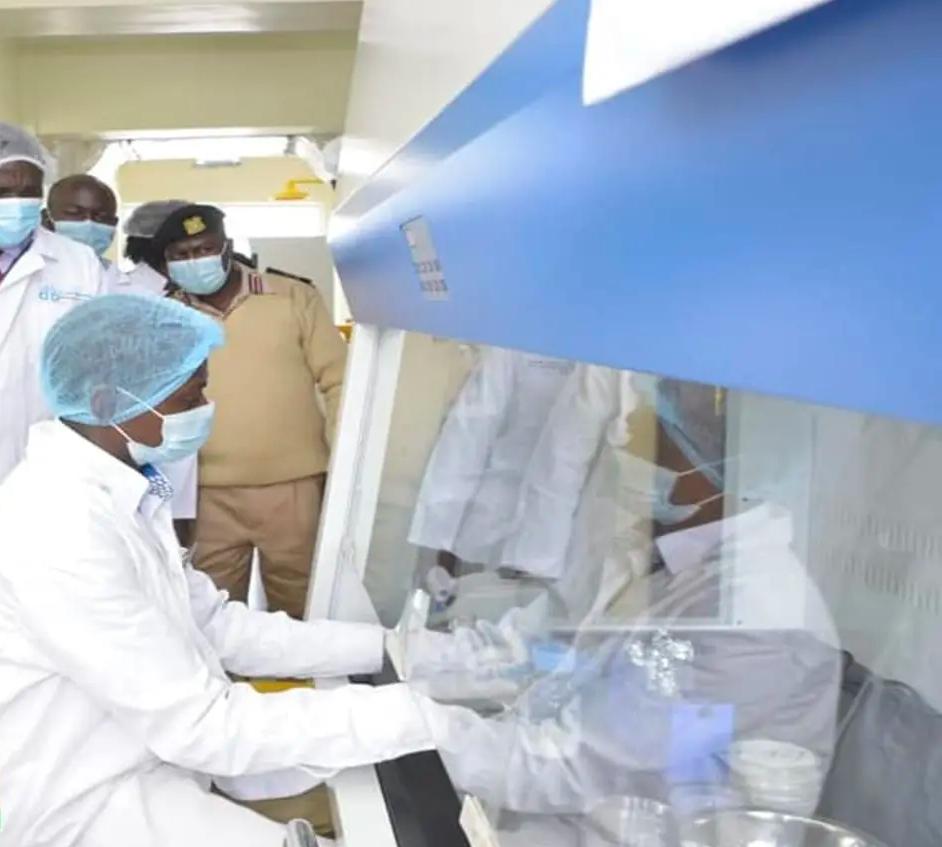
THE JOURNEY TOWARD NET ZERO
As we continue talking about food safety and quality, we need to reflect on the issues of climate change because it directly affects our sector. We’re part of the Paris Climate Agreement, where we are supposed to reduce greenhouse gas emissions by 32%. When you look at the figures 90% of emissions come from agriculture with the dairy industry being responsible for 20% of emissions. We are very concerned, and we are looking at documenting to be able to look at strategies on how to mitigate these gas emissions and be part of the world that is looking at that. As Dairy Board, we are part of the pathways to net zero and we've come up with activities toward the reduction of those emissions. In fact, when you look at our strategic plan for 2022-2027, we have expanded that scope to be able to address the issues of sustainability and climate change.
We have 4.2 million cows, which of course have a lot of impact on our climate. When you look at the productivity per cow, it’s still very low at seven liters per cow. Meaning we have very many animals, but production is very, very
low. We're looking at areas of increasing dairy productivity through improved feeding and ensuring that we have available and quality feed because poor quality feed affects the quality
of milk and milk products. We want to enhance access to public land so that we can be able to produce quality feed and make it available for our farmers so that they don't suffer during drought. We are looking at renewable clean energy in cooling, processing, storage, transportation, and distribution. We also have activities around the management of manure through the construction of biogas plants. When you look at the installed biogas plants that we have in the country, and the number of farmers, it’s still very, very low. We have about 188 and we have an estimated 2 million farmers. If we can be able to increase that, we'll be able to manage issues of methane emissions, and of course, improve on environmental issues.
CONSUMER AWARENESS KEY TO ENSURING MILK SAFETY
A well-informed consumer on issues of milk safety and quality will make an informed choice. As a Board, we continue educating our consumers and we have a lot of programs designated for that. We do participate in activities to be able to increase awareness and strengthen our consumers to be able to make the right choice. Food safety at the national level can be addressed through many strategies and we are looking at three strategies; strengthening food controls, assessing the risks which are both chemical and microbiological risks so that we can be able to mitigate and come up with urgent interventions; we also look at the 5 basics of food safety. We continue coming up with those strategies and various initiatives to address the challenges of food safety and quality. I want to assure all of you of our commitment as a Board to be part of the wider community looking for solutions for food safety. I wish to also thank the organizers of this Summit for wanting to have much more interactions to be able to address the solutions together. Thank you very much for giving us this opportunity and I want to wish you good deliberation. We look forward to the outcomes and how KDB can be a part of the solutions.”
FOODSAFETYAFRICA.NET OCTOBER 2022 | FOOD SAFETY AFRICA MAGAZINE 65
THE BOARD HAS ESTABLISHED A WELL-EQUIPPED AND MODERN DAIRY REGULATORY LABORATORY WITH WELLTRAINED PERSONNEL TO PROVIDE MILK SAMPLING AND TESTING SERVICES.
FSA
KDB LAUNCHING THE DAIRY LAB
Venturing into the food industry: Tips from leading industry professionals in Kenya
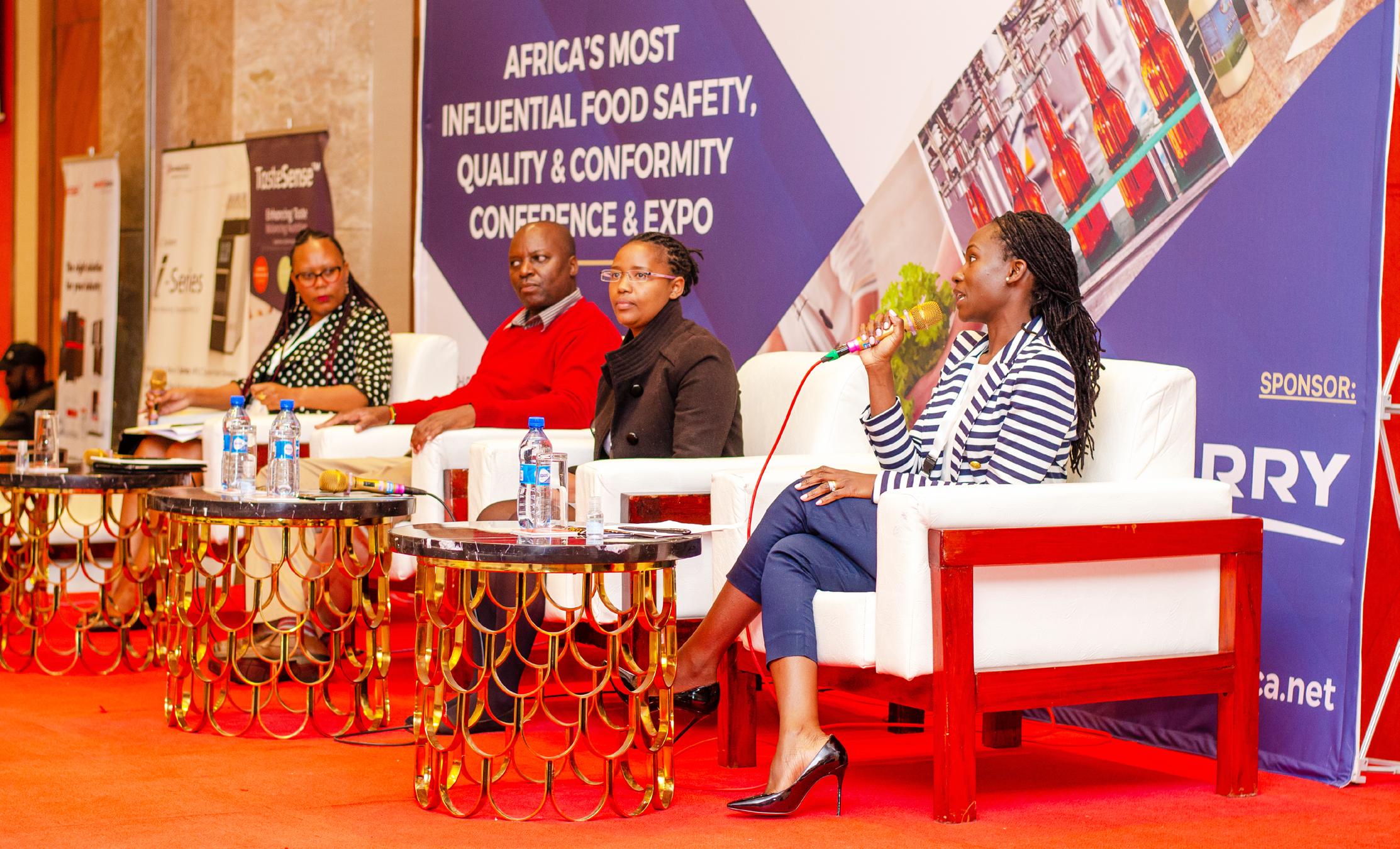 By Catherine Odhiambo
By Catherine Odhiambo
The chance for career advancement is the top perk that millennials and many other employees look for in a job. Unfortunately, a lot of growth-oriented occupations are a bait and switch. The hiring process is frequently the last time your career development is mentioned at work. So how does a fresh graduate pick up the pieces and rise from being green into an industry veteran…Virginia Nyoro, the Director FW Africa, leads a panel of food industry professionals as they share their career journeys right from the start at the AFMASS Youth Summit to inspire the youth on the value of hard work, tenacity and how to get the best out of their potential.
Linda Capwell – Regional Innovations Manager, Eastern & Southern Africa, Upfield, kicked off the discussions with some interesting revelations on how she made use of her long holidays and rose from selling scratch cards to become
a sought-after Brand Manager. Turns out the job she took as a way to kill time would later curve her career path.
“I've always considered myself an introvert, but I found it very interesting how I got the courage to basically approach anybody on the street, in the office, to buy a scratch card, to buy a line,” she said.
PASSION UNLEASHES CREATIVITY
Just like Linda, Keziah Wachuka - Head of Research & Development - Bio Food Products Limited, started her career while still on campus. She shared with the audience how her passion led her to take a step back from her highly esteemed position as a Food Safety & Quality Manager to a low position in Product Development. It is that one move that has seen us now relish the Bio probiotic yoghurt, Greek yoghurt, and Coconut yoghurt; courtesy of a lady who was bold enough to break away from the status quo.
OCTOBER 2022 | FOOD SAFETY AFRICA MAGAZINE FOODSAFETYAFRICA.NET 66
OPINION | Career Growth
“Mine has always been passion. When you are new to the industry, I know the remuneration can be low, but your passion will drive you. And before you realize it, you're going to be where you want to be,” she stated.
The panelists underscored the need for the older generation to help create a path for the youngins in the universities.
“Many people come out of high
school or university without really knowing what they want to do and it’s simply because a lot has changed in our markets nowadays. The traditional courses that are now being taught are not really what is applicable currently,” Linda opined.
She also urged the youth to take initiative in their areas of interest saying, “If you feel there's an area or a career you want to progress into, I think it needs to come in from you fast, then project it outward and then look for people who can actually help you map out your career.”
MENTORING THE NEWBIES
We definitely cannot talk about career growth without mentioning the role mentors have to play in that, but besides the common terms, the panelists introduced a not-so-familiar term along these streets, ‘sponsors’. While a mentor basically talks to you about how to navigate your career, sponsors talk about you to powerful people when you aren’t in the room hence moving you up the career ladder. Mentors can be anywhere in any organization but sponsors are restricted to one’s current organization.
“Then keep in mind that careers are no longer linear. Have a roadmap of
what you want to do, but leave room for any unique possibilities that may arise during your career. Allow them to come in because they eventually actually end up helping you in your professional life. I believe there's absolutely no skill you will ever gain that will not help you,” said Linda emphasizing that we shouldn’t look at career growth in terms of a ladder.
Early career grads, in Keziah's opinion, should adopt a can-do mindset and seize any available attachment or internship opportunities, regardless of compensation.
"Take advantage of the opportunity to give it your best as soon as the door is opened for you, and you enter. Learn more about the company than simply what is going on in the lab. Don't just stay there. You'll probably discover an interest from it that you didn't even know you have,” she said.
Willis Mitula – Head, Governance & Technical - Kenya Breweries Ltd, backed the other panelists’ view on being cross-functional.
“Within other departments, be cross-functional in problem-solving, in meetings, in engagement. It builds you up to broaden the directions in which you can move. But more importantly, it will somehow give you an edge
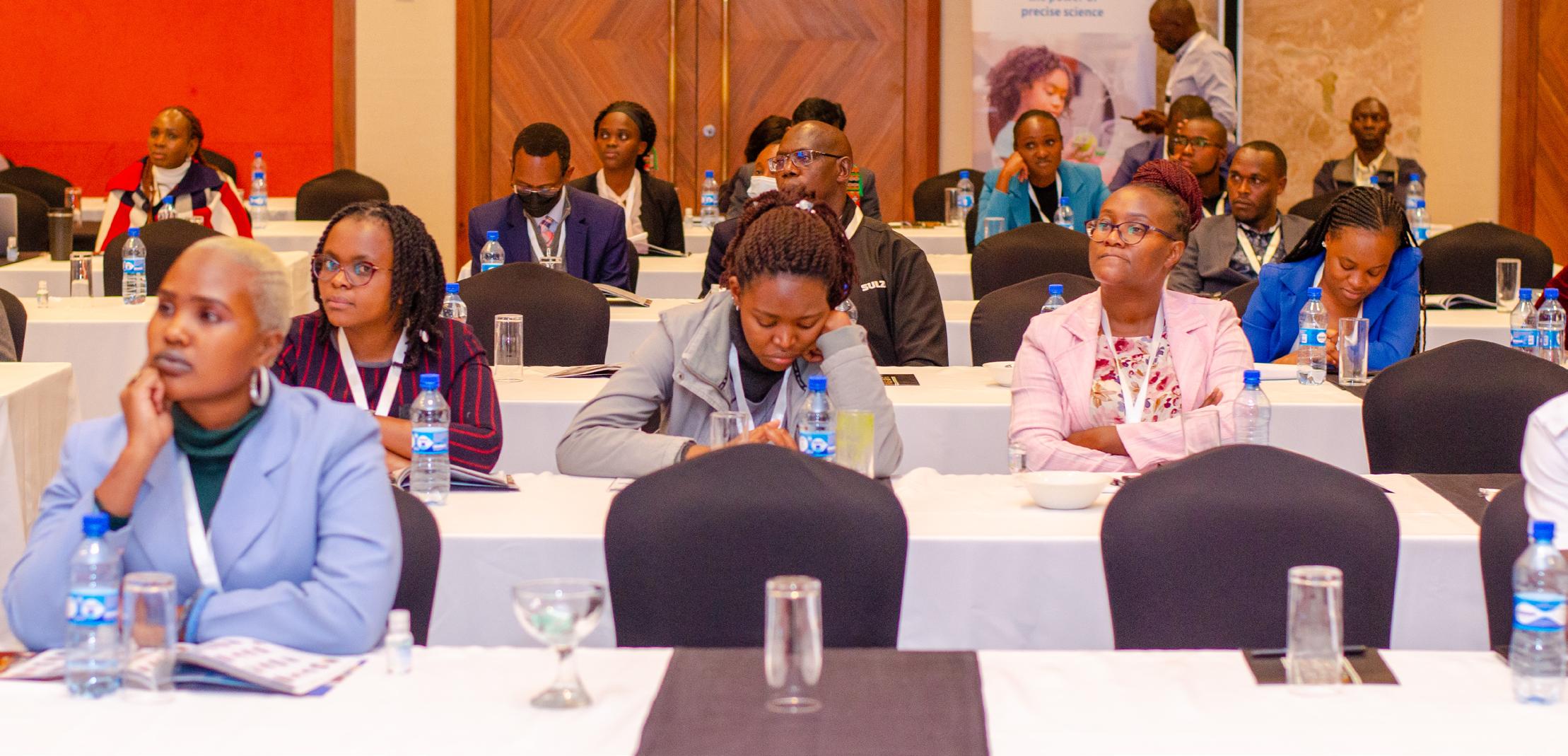
FOODSAFETYAFRICA.NET OCTOBER 2022 | FOOD SAFETY AFRICA MAGAZINE 67
THEN KEEP IN MIND THAT CAREERS ARE NO LONGER LINEAR. HAVE A ROADMAP OF WHAT YOU WANT TO DO, BUT LEAVE ROOM FOR ANY UNIQUE POSSIBILITIES THAT MAY ARISE DURING YOUR CAREER.
KEENLY LISTENING TO AN ONGOING DISCUSSION
Linda Capwell – Regional Innovations Manager, Eastern & Southern Africa, Upfield
DELEGATES
when you start working with or managing teams that don’t necessarily share your profession,” he said.
He added, “So for example, in my case, my current role as Head of Governance, I lead people who are experts in different things. And I cannot be an expert in everything. So as you grow and start leading, people just get to know that you
will not be the expert in what they do, but you will be able to find a way in which what they do helps the business grow in certain directions.”
When questioned about some of the most important qualities that have contributed to his success in his current position, Willis singled out passion and resilience.
“Even if you have challenges, make sure you see it through. By the time you are giving up the baton, someone else can take it and move with it. If there's no one to move with it, just viciously work with it. So that's what I can tell them,” he said.
Keziah exhorted the youths to continue nourishing their minds with knowledge in order to stay current on market trends.
"When you work in this field, you can't stop reading because things are constantly changing. Don't wait until you start working to join sites like LinkedIn, which provide a wealth of information through industry-specific group conversations,” she said.
CAPACITY BUILDING; HELPING THE YOUTH TO HELP THEMSELVES

On the capacity building front, Dr. George Abong’ – Senior Lecturer, at the University of Nairobi, endorsed the food science programs available at various levels in the University of Nairobi, stating that about 85% of their courses incorporate experiential learning.
“That just works to mold the students to be able to fit in in the world,” he said.
OCTOBER 2022 | FOOD SAFETY AFRICA MAGAZINE FOODSAFETYAFRICA.NET 68
WHEN YOU WORK IN THIS FIELD, YOU CAN'T STOP READING BECAUSE THINGS ARE CONSTANTLY CHANGING. DON'T WAIT UNTIL YOU START WORKING TO JOIN SITES LIKE LINKEDIN, WHICH PROVIDE A WEALTH OF INFORMATION THROUGH INDUSTRY-SPECIFIC GROUP CONVERSATIONS.
Bio Food Products
OPINION | Career Growth DELEGATE CONTRIBUTING TO A DISCUSSION
Keziah Wachuka - Head of Research & Development -
Limited
As the Chairman of the professional body, the Food Science and Technology Platform of Kenya (FoSTeP-K), he highlighted how the platform contributes to capacity building through training and linking up students with internship opportunities.
On his part, Dr. John MuoriaLecturer, JKUAT, and Chairman, Kenya Institute of Food Science & Technology, remarked that despite having highly capable students, the country lacks enough opportunities to accommodate them.
“But I would tell you like I told my students, you go over there and get aggressive, see everybody you can see, ask for every business card and every email till you get it. So I do believe that for you to succeed, you have to have a crucible moment. There has to be some need. You have to be able to quantify your accomplishment if you truly believe that you want to succeed,” he stated.
Dr. Augustine Okoruwa, FNIFST – Head of EatSafe Country Programs, GAIN Nigeria shed some light on Nigeria’s policies requiring each student to undertake a 6-month internship prior to graduation. In order to make sure that it's not just theory, he added, institutions must adapt in the
area of comprehending the distinction between theory and practice.
According to Dr. Okoruwa, pilot research facilities and units at universities could narrow the continent's skills gap.
“If we want to build capacity universities should have pilot food processing plants whereby the theories of research and development, new product development, innovation, packaging development, quality control, and regulatory affairs management can be put into practice,” he said.
“The university should be able to provide solutions not theoretical solutions but solutions that work for the industry to make money and deliver safe food,” he added, emphasizing the importance of forging relationships with the private sector.
Dr. Abong’ noted the University of Nairobi ensures that its students pass
innovative students a platform to develop their products while guiding them all through the conception to market launch.
The panelists rubberstamped the need to be affiliated with the various sector-focused professional bodies to tap into some member-exclusive opportunities.
“There is no place now where you will get ahead as a young student if you are not a member of some professional organization. If you don’t like your professional organization, look for a profession you like and become a member. So if you don’t belong somewhere, you’re just going to be a loner there and you’re not making networks,” Dr. Muoria said.
through the installed pilot plant as a means of evaluating their aptitude for problem-solving.
He stated, "We presently have a working agreement with two companies, so they take at least 10-20 students each year who go for a fullyear internship. This is really crucial.”

In addition, the University has an incubation setup where they offer
When discussing the integration of students into the commercial sector, he made the point that there needs to be a connection between the academic community, the student body, and the business community, with each side striving to play its part to the fullest.
“There has to be somebody who is not waiting for opportunities in his house. People shouldn’t just sit around in the office and hope that manna is going to fall from heaven, even manna they had to go get it from outside,” he commented.
FOODSAFETYAFRICA.NET OCTOBER 2022 | FOOD SAFETY AFRICA MAGAZINE 69
THE UNIVERSITY SHOULD BE ABLE TO PROVIDE SOLUTIONS NOT THEORETICAL SOLUTIONS BUT SOLUTIONS THAT WORK FOR THE INDUSTRY TO MAKE MONEY AND DELIVER SAFE FOOD.
FSA
Dr. Augustine Okoruwa, FNIFST – Head of EatSafe Country Programs, GAIN Nigeria
Jim Tozer
Kenchic’s Managing Director Jim Tozer on emerging food safety & quality concerns in the food & animal feed industry in Africa
By Catherine Odhiambo
Africa is not immune to some of the emerging food safety, quality, and compliance issues. From issues related to the Covid-19 pandemic, new pathogens, animal welfare issues, and antimicrobial resistance, Africa is at the center of it all.
Jim Tozer, Managing Director, Kenchic lent his voice on these issues, taking us back down memory lane from how it all began to highlighting how the East African poultry giant has risen to the occasion to combat them head-on.
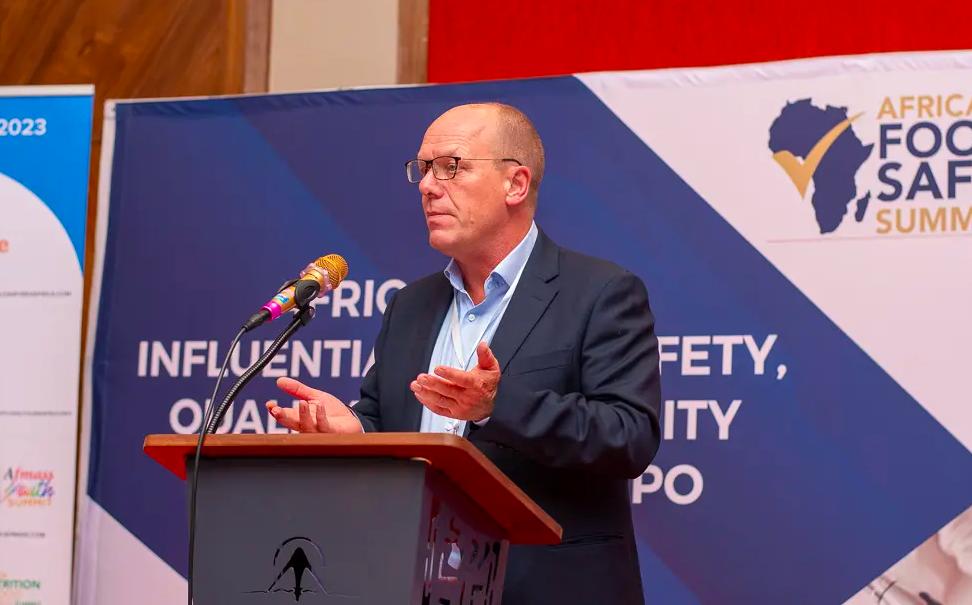
PURSUIT FOR PROFIT AT THE EXPENSE OF FOOD SAFETY
"Thinking about the future of food safety in our region takes me straight to a starting point that is certain. And that is: change will happen as we progress. Technologies are and will continue to change, circumstances will change, and ideas will change. At Kenchic, the way we are thinking is evolving, and that is affecting both food culture and business. This is led by the ideas and changing perceptions that will drive change across our industries. If we look at our first principle, the consumer has the right to fully know and understand
how the food they consume is produced and, therefore, will place demands on producers. Ultimately, it is the consumer that will drive standards in the food sector and create change. This is a very different scenario from the past, when awareness was lacking.
Consumers were not aware of food production methods and there was also a distinct lack of food safety standards. Food producers could mostly do as they pleased. The food retail industry had to accept its position as one of the main partners of these food production companies. The competition between the big food retailers was mainly
OCTOBER 2022 | FOOD SAFETY AFRICA MAGAZINE FOODSAFETYAFRICA.NET 70
OPINION
|
aimed at driving down food costs to attract consumers, and this exerted immense pressure on producers to produce at the lowest cost. This led to massive overuse of the likes of antibiotics, even if an animal was not sick because they grew faster and cost less when antibiotics were used. So, farmers started to indiscriminately use antibiotics – in feed or directly – and there was no framework, legislation, or standards to govern these practices. The impact was that some antibiotics humans needed to protect themselves became ineffective.
Another case of food safety not being a priority was when Bovine Spongiform Encephalopathy – or as we know it Mad Cow Disease – arose through feeding cattle meat and bone meal that contained BSE-infected products from a spontaneously occurring case of BSE sheep products. The scariest fact about this was that it was passed onto some humans, whose nervous systems and brains were affected just as the animals. I could go on and on about other food safety breaches, but we must understand that at the time, we were not aware of the potential outcomes. Concerns were voiced, but a lack of regulatory procedures and, to be honest naivety, allowed these production methods to continue.
CONSUMER AWARENESS DRIVES REGULATION

Food safety and health scares in developed countries from the 1980s were key to driving change. Once science understood the links between some production methods and their harmful effect on food safety and human health, the world woke up. Media jumped on the stories, which drove consumer awareness, and that in turn drove regulatory controls. The Food Standards Authority (FSA) in the United Kingdom was quickly formed, as well as similar bodies across most of the developed world.
Traceability and food production audits arose. The whole
process of farm to fork, plow to plate was born. Consumers now started to gain trust and understanding that the food they purchased was produced properly, was wholesome, and most importantly, could be trusted. This is the reason why Kenchic
adopted the farm-to-fork approach, meaning that every egg we hatch, every chicken we raise, and every cut of meat we process, is traceable. This is not only just Good Agricultural Practice (GAP), but a moral aspect arose; that of animal welfare standards. Many now believe that animals must be treated with respect concerning their natural and behavioral character. But all of this does not mean that there have not been issues, especially concerning the contraventions of GAPs.
While consumers' awareness has grown, there is still a lack of traceability in the food chain. Horse meat was found in '100%' beef minced meat, traced interestingly through DNA methods. The movement of animals from country to
FOODSAFETYAFRICA.NET OCTOBER 2022 | FOOD SAFETY AFRICA MAGAZINE 71
MANY NOW BELIEVE THAT ANIMALS MUST BE TREATED WITH RESPECT CONCERNING THEIR NATURAL AND BEHAVIORAL CHARACTER. BUT ALL OF THIS DOES NOT MEAN THAT THERE HAVE NOT BEEN ISSUES
KENCHIC LTD. LAUNCHING ITS FIRST PERI URBAN POULTRY CENTER IN KIAMBU COUNTY
country, with no audit trail, allowed traders to muddy the waters of tracing the origin of the food. That was only 10 years ago, in Europe. This aside, a standardization of food production and processing has taken place. Every primary agricultural produce, to access markets, must adhere to clear and laid down standards. This is also expected of processors and retailers.
SO WHERE ARE WE IN AFRICA?
Our region and Africa at large is a quick adopter of technology that is developed and tested elsewhere. It penetrates and is adopted quickly without its initial glitches.
Even more importantly, the continent is now developing its own technology – Africa is a quick learner. International brands – in food retailing, quick service restaurants, and hotels with private equity investors continue to invest, and with that comes their exacting international standards.
But still, there is a distinct lack of awareness by the consumer – a misinformed understanding of safe food production methods and standards. The standards are there, but they are not imposed fairly and consistently. For this to be achieved, there has to be a level playing field, which means all producers must be held to the same standards. Also, these standards need to be communicated to consumers so that they know their rights.
CHAMPIONING ANIMAL WELFARE
As the region's largest chicken producer, we have sought and achieved the highest attainable international ratings on food safety, in our capacity as a top-tier, diamond producer by global standards, according to YUM Brands, which is the group that owns KFC and Domino's Pizza. Our plant has also achieved the highest possible global food processor certification. We have an in-house laboratory, which is the only one of its kind in the region. It ensures we test our products before they go to the market to rule out antibiotic residues and microbial contamination that could cause food-borne illnesses
such as typhoid amongst others.
Our processing plant products undergo rigorous quality checks, both internally and at a state level, and they are maintained in a cold chain until the minute they land on your table, and that’s our promise to our consumers.
We ensure that all our farms and hatcheries adhere to the strictest biosecurity and animal welfare protocols laid down by reputable global organizations, such as the World Organisation for Animal Health. For
over 25 years, we have been able to audit our entire process as per international standards. Also, Kenchic believes that animal welfare is an integral component of our operations, as a good humanchicken relationship is paramount to good farm performance.
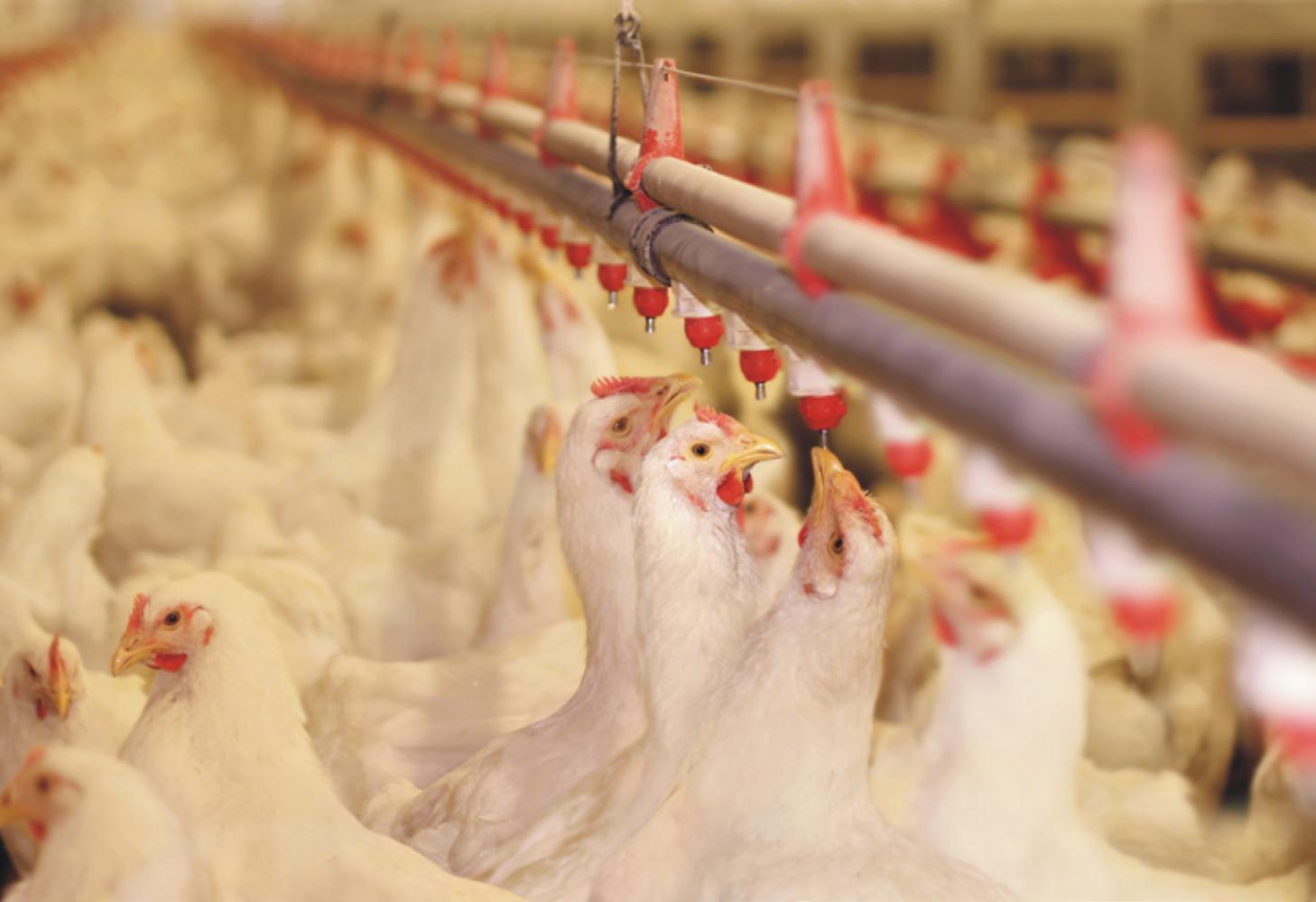
Kenchic birds enjoy world-class levels of welfare, guaranteeing the five internationally upheld animal freedoms to ensure they live healthy and contented lives. These are freedom from hunger, malnutrition, and thirst, freedom from fear and distress, freedom from thermal and physical discomfort, freedom from pain, injury, and diseases, and lastly, freedom to express their natural patterns of behavior. We believe there is a clear connection between animal welfare, food safety, productivity, and consumer preferences. We strive to ensure all our chickens are kept in the very best conditions to ensure food safety. The future for Kenchic remains to be at the forefront of food production standards, which means we will also assist and work in frameworks to develop sustainable processes with the government and like-minded companies.
The future of food safety and culture is bright as long as consumers and producers play their role in ensuring we aim for the best."
OCTOBER 2022 | FOOD SAFETY AFRICA MAGAZINE FOODSAFETYAFRICA.NET 72
OPINION
KENCHIC BELIEVES THAT ANIMAL WELFARE IS AN INTEGRAL COMPONENT OF OUR OPERATIONS, AS A GOOD HUMAN-CHICKEN RELATIONSHIP IS PARAMOUNT TO GOOD FARM PERFORMANCE.
| Jim Tozer
FSA

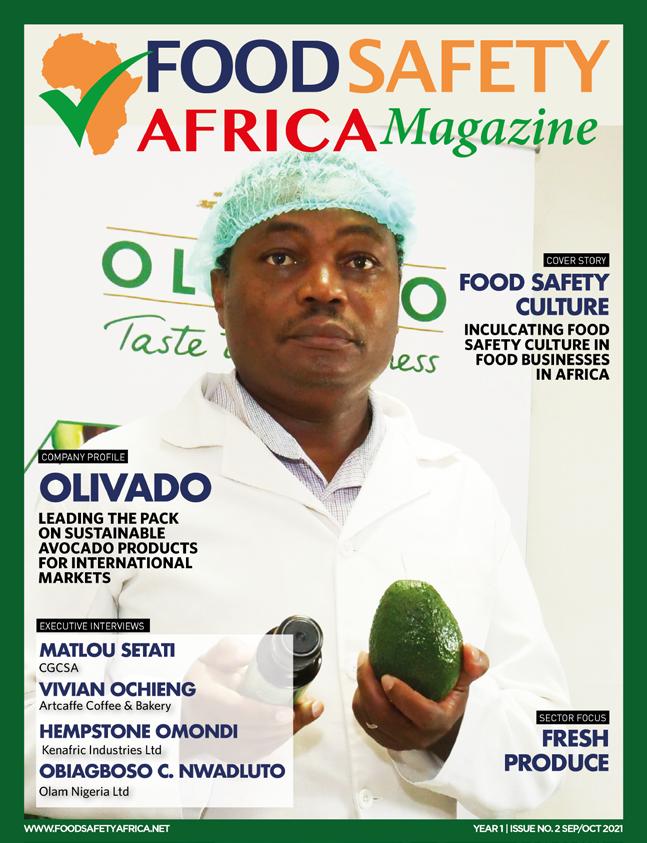


Subscribe Name: Company: P.O. Box: Post code: Town: Physical Location: Country: NOTE: An invoice will be generated once we receive this form FW AFRICA PO BOX 1874 - 00621 Village Market, Nairobi, KENYA Tel: +254 20 8155022 | Cell: +254 725 343932 Email: info@fwafrica.net Corporate Website: www.fwafrica.net Keep up to date with the food safety & quality sector Subscription form KENYA REST OF AFRICA REST OF WORLD 1 year KSh 5,900 USD 120.00 USD 200.00 2 years KSh 11,500 USD 220.00 USD 380.00 Please complete the following details Telephone: Website: Email: What best describes your main business activity (e.g. hospital, banking, consultant, packaging supplier, NGO) What best describes your job: Chairman, CEO, Director General Management Sales/Marketing Purchasing/Supply chain QA/R&D Process Management Others (specify) Applicant’s Signature & Stamp: Date: DETAILS OF SUBSCRIPTION * Food Safety Africa is published 4 times a year. Prices inclusive of airmail where applicable Would you like us to have a feature on your company? Yes Get your own personal copies Number of copies Number of years


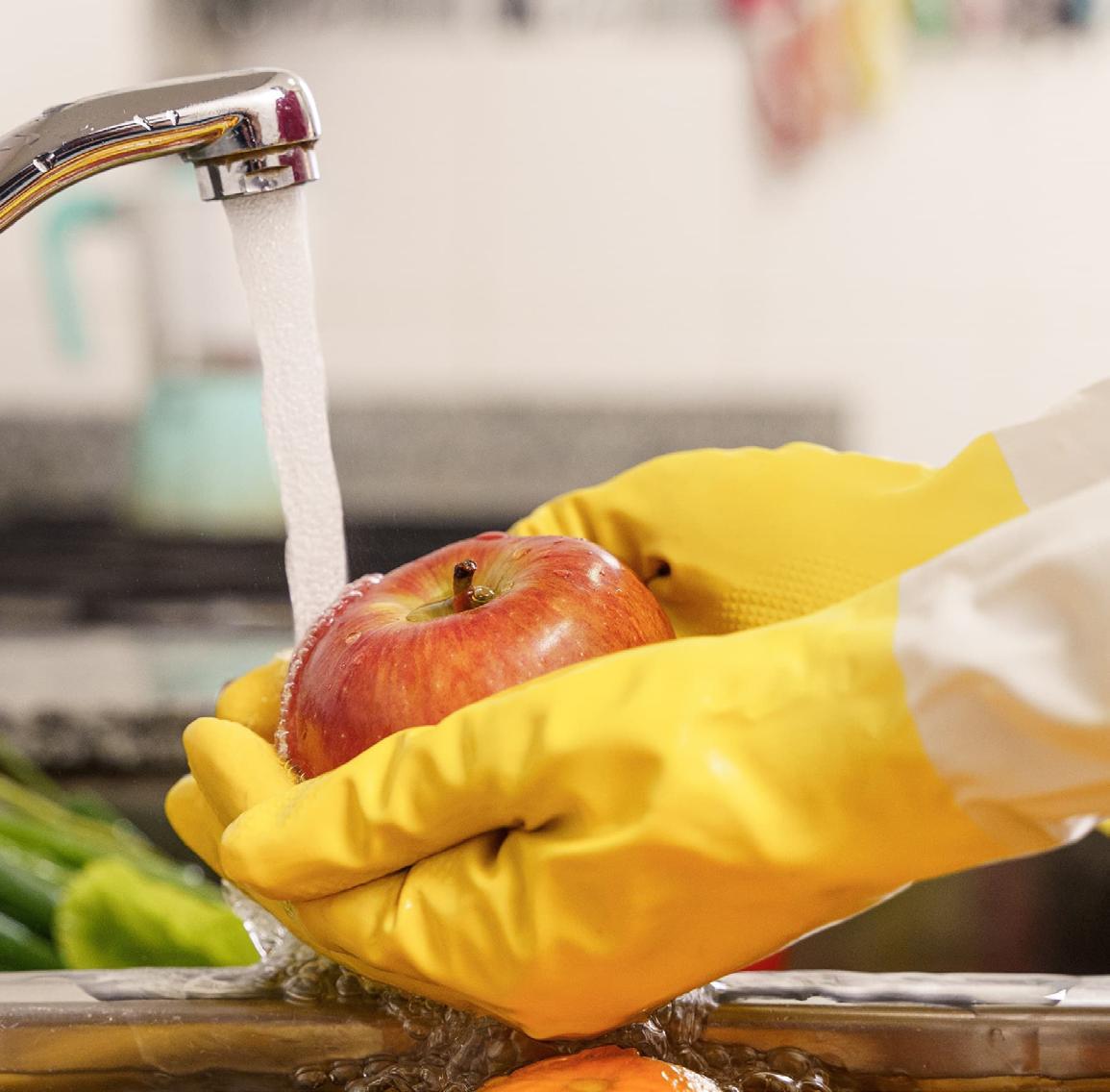



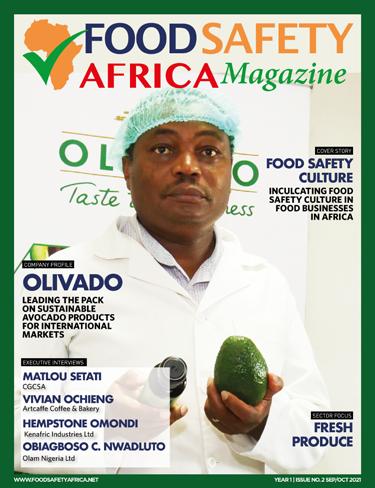



ADVERTISE IN AFRICA'S NO.1 FOOD SAFETY, QUALITY & COMPLIANCE MAGAZINE GROW YOUR BUSINESS FASTER, MORE SUSTAINABLY WHY ADVERTISE IN FOOD SAFETY AFRICA MAGAZINE • Reach the agriculture, food, retail and HORECA and beyond using one publication and website • The first and only magazine focused on food safety, quality and compliance management in Africa • The first magazine of its kind in the region available in a digital format, providing our advertisers with a worldwide audience • The best read and visited food safety, quality and compliance management Africa. AVAILABLE IN PRINT & FOR FREE ONLINE AT: WWW.FOODSAFETYAFRICA.NET








































 ASHISH PANDE Country Head, Olam Agri, Nigeria
ESSAM EL-MADDAH HR & General Secretary Director, Danone Egypt & North East Africa
JUSTIN ARCHER COO East Africa & Group Head of Sustainability, Sucafina SA
CLAUDIA CASTELLANOS Managing Director, Black Mamba
JOACHIM WESTERWELD Executive Chairman, Bio Food Products
MILLICENT A. ADOBOE Co-Founder, Achiever Foods Ghana
CAESAR ASIYO Chief Development Officer, Victory Farms
SAINT-FRANCIS TOHLANG Corporate Affairs Director, Nestle East & Southern Africa
NICO ROOZEN Honorary President, Solidaridad Network
ROZY RANA Managing Director, Dormans Coffee
GAURAV VJ CEO, 260 Brands
BRETT THOMPSON Co-Founder & CEO, Mzansi Meat
ASHISH PANDE Country Head, Olam Agri, Nigeria
ESSAM EL-MADDAH HR & General Secretary Director, Danone Egypt & North East Africa
JUSTIN ARCHER COO East Africa & Group Head of Sustainability, Sucafina SA
CLAUDIA CASTELLANOS Managing Director, Black Mamba
JOACHIM WESTERWELD Executive Chairman, Bio Food Products
MILLICENT A. ADOBOE Co-Founder, Achiever Foods Ghana
CAESAR ASIYO Chief Development Officer, Victory Farms
SAINT-FRANCIS TOHLANG Corporate Affairs Director, Nestle East & Southern Africa
NICO ROOZEN Honorary President, Solidaridad Network
ROZY RANA Managing Director, Dormans Coffee
GAURAV VJ CEO, 260 Brands
BRETT THOMPSON Co-Founder & CEO, Mzansi Meat

















































































































































































 By Catherine Odhiambo
By Catherine Odhiambo








 An interview with Laban Kabiru, Manufacturing and Logistics Director at Bio Food Products Ltd
An interview with Laban Kabiru, Manufacturing and Logistics Director at Bio Food Products Ltd















 By Catherine Odhiambo
By Catherine Odhiambo




















